
COMPRESSED AIR, WHAT’S YOUR POISON? CALL 1800 800 878 OR VISIT CAPS.COM.AU TECHNICALLY OIL-FREE OR OIL-FLOODED 100% OIL-FREE NOVEMBER 2022
There are many ways you can achieve the quality of oil-free air critical to comply with relevant standards required for food and beverage manufacturing.
The food and beverage industry requires clean, dry compressed air across multiple facets of food & beverage production with varying levels of defined standards to ensure mitigation of contamination. There are multiple ways to achieve this, and CAPS is perfectly positioned to achieve our customer’s goals.

Many manufacturers use oil-lubricated compressors, which then utilise several air treatments processes downstream to clean and dry the air. This is one way, another way is to go oil-free at the point of compressing the air, which involves different compressor technology. Whichever way you go we can help.
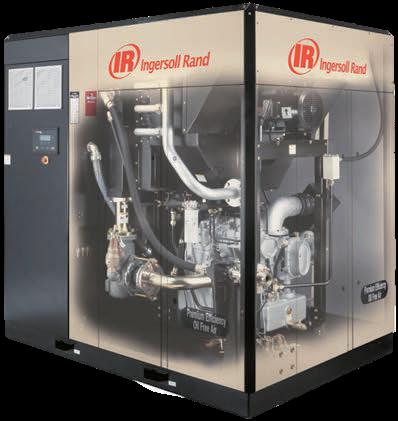
This is often a balance between capital investment, overall efficiency and risk mitigation. Using a true- oil-free compressor, which despite its additional capital cost, the long-term benefits associated with less ancillary equipment and servicing combined with the significant reduction of risk, could be a smart investment.
LET US DESIGN THE RIGHT SYSTEM FOR YOU
CAPS, being privately owned, can search the work for the best OEM equipment available and are not tied to specific manufacturers. This is why we have been able to partner with world renowned brands such as Ingersoll Rand who lead the world in efficiency and reliability.
CAPS Australia has 42 years of experience as an Australian owned business designing and supplying bespoke compressed air systems customised for each customer’s specific requirement. With an ISO accredited in-house engineering and manufacturing division, we make sure we provide the equipment to not only meet their needs but exceed them.
caps.com.au
CAPS AUSTRALIA, YOUR COMPLETE SOLUTION FOR THE FOOD & BEVERAGE INDUSTRY 1800 800 878 CALL 1800 800 878 OR VISIT CAPS.COM.AU

NOVEMBER 2022 PLUS: Temperature Control | Plant and Machinery | Automation Australian Vintage celebrates our best regions
CEO: John Murphy
COO: Christine Clancy
Group Managing Editor (Northern): Syed Shah
Editor: Adam McCleery
Ph: (02) 9439 7227 adam.mccleery@primecreative.com.au
Design Production Manager: Michelle Weston michelle.weston@primecreative.com.au
Art Director: Blake Storey
Designers: Kerry Pert, Tom Anderson, Louis Romero
Sales/Advertising: Stephanie Suzuki Ph: +61 422 046 711 stephanie.suzuki@primecreative.com.au
Production Coordinator: Janine Clements Ph: (02) 9439 7227 janine.clements@primecreative.com.au
Subscriptions AUS NZ O/S 1 year subscription 99 109 119 2 year subscription 189 199 209
For subscriptions enquiries please email subscriptions@primecreative.com.au
It’s like they say, adapt or die
Copyright
Food & Beverage Industry News is owned by Prime Creative Media and published by John Murphy. All material in Food & Beverage Industry News is copyright and no part may be reproduced or copied in any form or by any means (graphic, electronic or mechanical including information and retrieval systems) without written permission of the publisher. The Editor welcomes contributions but reserves the right to accept or reject any material. While every effort has been made to ensure the accuracy of information, Prime Creative Media will not accept responsibility for errors or omissions or for any consequences arising from reliance on information published.
The opinions expressed in Food & Beverage Industry News are not necessarily the opinions of, or endorsed by the publisher unless otherwise stated.
© Copyright Prime Creative Media, 2019
Articles
All articles submitted for publication become the property of the publisher. The Editor reserves the right to adjust any article to conform with the magazine format.
Head Office 379 Docklands Drive Docklands VIC 3008
Ph: +61 3 9690 8766
enquiries@primecreative.com.au http://www.primecreative.com.au
Sydney Office Suite 303, 1-9 Chandos Street Saint Leonards NSW 2065, Australia Ph: (02) 9439 7227
Printed by: Manark Printing 28 Dingley Ave Dandenong VIC 3175 Ph: (03) 9794 8337
 Editor: Adam McCleery
Editor: Adam McCleery

Sustainability will always remain a key focus area in every aspect of food and beverage manufacturing. Being more sustainable leads to a string of benefits for any manufacturer or producer, including lower overheads and in most cases better product output.
Plant and machinery are an area of food and beverage manufacturing where some of the largest gains can be made with the easiest, all be it the largest, investments. And companies which produce machinery and construct facilities for food and beverage manufacturers which we have spoken to at FBIN have all said the same thing, sustainability and efficiency is critical.
The net zero target of 2050, laid out by the United Nations, has laid out a plan for emissions to be reduced by 45 per cent in 2030, before reaching net zero in 2050.
We all eat and we all drink, and as such food and beverage manufacturing is never going any-where. While this creates a stable investment for some, it also means emphasis in sustainable practices and meeting net zero for manufacturers and producers is critical.
As one of the pillar industries of civilisation, food and beverage manufacturing takes on an important role in helping lead the way in meeting net zero.
As we near 2030, many of the initial targets set out in net zero target plans, both from the United Nations and others, will need to be met. At the very least it will give us insight into how we are tracking as a society.
Because of this, the food and beverage industry is currently undergoing rapid advancements and changes to traditional practices, but the good news is all the data is as expected, positive.
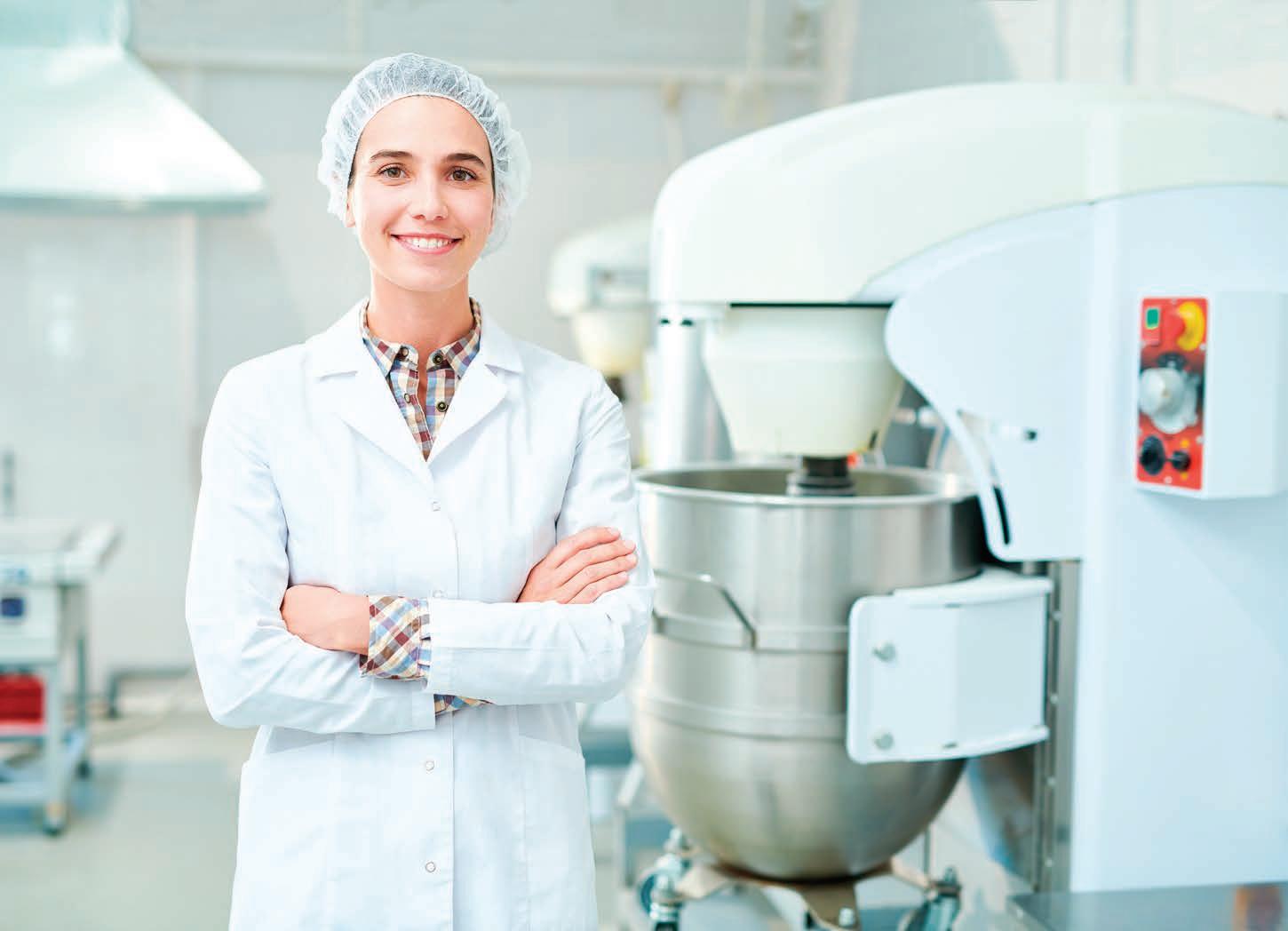
While there is no getting around the capital costs of overhauling processes or changing out certain segments as part of an ongoing change, the reduction in overheads means a return on investment is all but assured, it is only a matter of calculating the length
of time it will take.
T he future is coming no matter what, and as outlined by an ESG report in this edition, SMEs that fail to recognise the importance of becoming more sustainable, as quickly as possible, risk falling behind the pack.
The general conclusion is that as governmental investment and regulatory action increases, along with consumers are putting greater importance on sustainable manufacturing, SMEs must adapt or risk losing lucrative contracts in the future.
Future proofing is spoken of in the industry often, this is one aspect of future proofing that is of paramount importance. If you lose out to more sustainable competitors, due to a range of factors like those outlined above, then the need to future proof is likely to evaporate with time.
To truly future proof as an SME, the report outlines, is to keep up with current trends around sustainable and efficient manufacturing practices along with meeting consumer demands, including with changing tastes.
The very nature of rapid change also means greater software innovation which is already proving fruitful for the industry.
As an added benefit, many of the innovative new machines, from packaging to filling and processing, come with added adaptability, due in no small part to the innovative new software.
This is leading to an easier path to diversifying a product range and helping manufacturers and producers move into new segments of the market in an easier way.
These are all positive signs that the increased importance on sustainability, from a global perspective, will change the face of food and beverage manufacturing, future proofing it even further.
Until next month. Happy reading!
WELCOME 4 Food &Beverage Industry News | November 2022 | www.foodmag.com.au


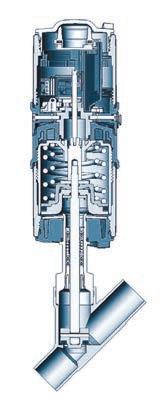
Request a quote Save on installation costs > up to 40% Improve ongoing operating costs > up to 20% Flexibility of production processes > 100% * these figures are based on average figures, individual results may vary. ELEMENT on/off control valves Compact, easily integrated and made for decentral automation applications. Slick, intelligent devices fulfil the demands of hygienic processes for F&B manufacturers. F&B prefers to partner with Bürkert
20
MEET
THE MANUFACTURER AVL Wines is on a sustainability journey which has also given rise to new product ranges.
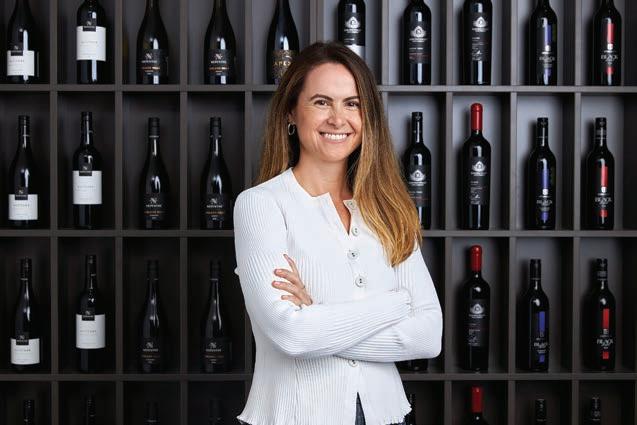
AUTOMATION Bürkert continues to provide clients with the most objective advice around digitalisation and automation opportunities.
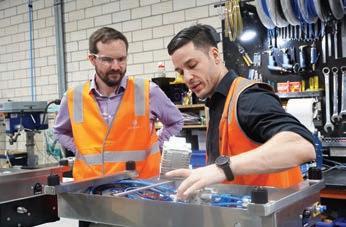
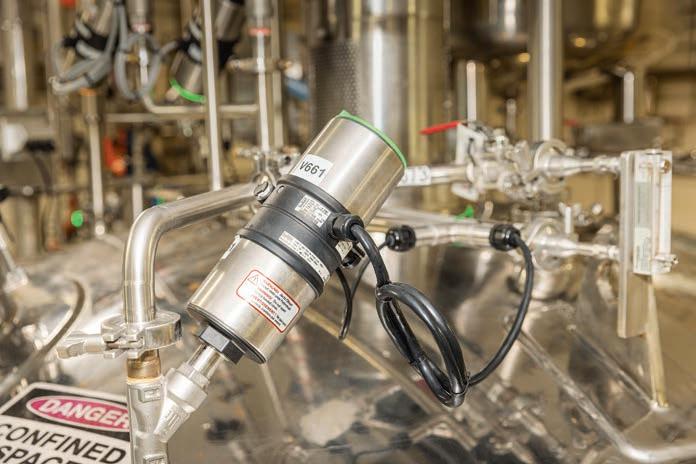
TEMPERATURE CONTROL The Paul Brady Building Group specialises in temperaturecontrolled environments and enclosures for the food and beverage industry.
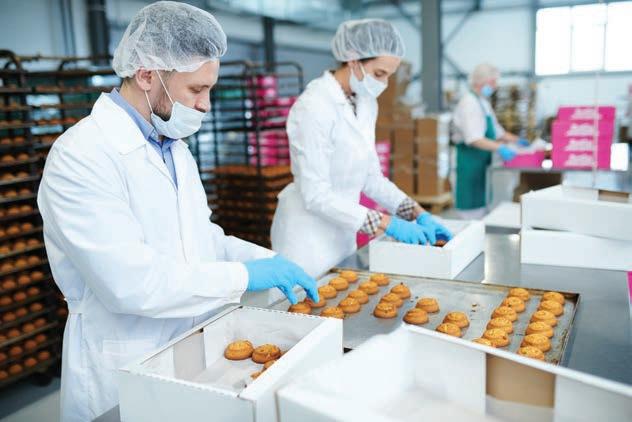
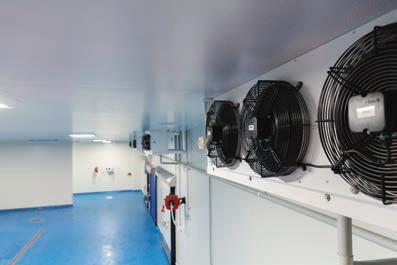
PROCESSING Packserv now offers full process lines and solutions after building a strong reputation for its rental and technical solutions.
IRRIGATION Growers in the Goulburn Valley are seeing positive impacts from better irrigation supply. SUSTAINABILITY Among Krones’ suite of offerings is the Dynafill, which combines filling and crowning on a single function unit.
CONTENTS
08 NEWS
26
28 INSTRUMENTATION The John Sample Group prides itself on providing the simplest and most effective instrumentation solutions.
38
40 AIP 42 AFCCC 43 MARKETWATCH 44 NEW PRODUCTS 18 36 24 30 28 6 Food &Beverage Industry News | November 2022 | www.foodmag.com.au
FOOD SAFETY Small to medium businesses (SMEs) that fail to prioritise sustainability risk losing lucrative contracts from governments and large businesses.
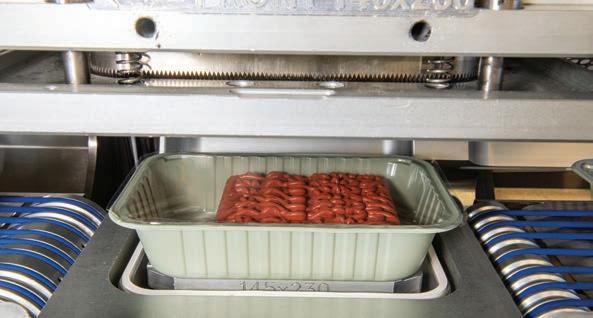
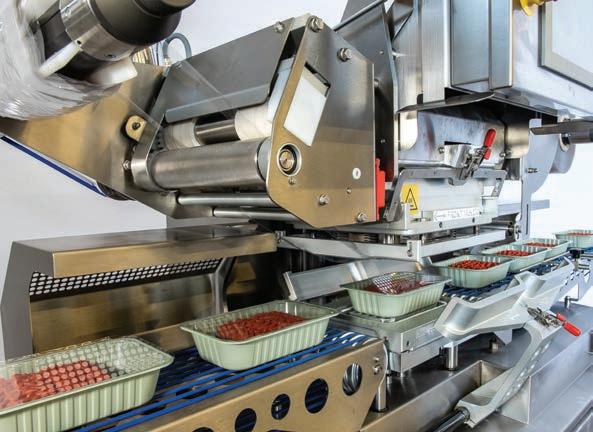




- 1• Low maintenance cost & simple operation • Advanced MAP tray-sealing technology • Competitive price - automatic tray sealer at the operating cost of a semi-automatic tray sealer • Small footprint at just 1.6mt • NO compromise on quality & product shelf-life • No air, water or vacuum pumps required • Suitable for small to medium productions • Only tray sealer in its class that can be fed from a conveyor SELECT EQUIP are the exclusive distributors of the G.Mondini Cigno. Get in touch to learn more. LET’S TALK! 1800 101 122 sales@selectequip.com.au selectequip.com.au Automatic Tray Sealer at the price of a semi-automatic just launched. CIGNO: Brand new compact tray sealer for small to medium productions Only sealer of its kind that requires no tools for changeover, small footprint, easy wash down, advanced MAP tray-sealing technology, only tray sealer in its class that can be fed from a conveyor and no compromise on quality & shelf-life Introducing... The CIGNO
World leader in tray sealing technology,
world class technology at a competitive price It’s an automatic tray sealer
operating cost of a semi-automatic tray sealer
Benefit from award-winning tray technology
G.Mondini’s brand-new release the ‘Cigno’ is
at the
Bundaberg Brewed Drinks is Queensland’s exporter of the year
Bundaberg Brewed Drinks has been named 2022 Queensland Exporter of the Year, at the Premier of Queensland Export Awards Gala, after also winning the Agribusiness, Food and Beverages category.
Queensland Premier Annastacia Palaszczuk said Bundaberg Brewed Drinks had impressed judges with their significant export success, product quality and continual range development.
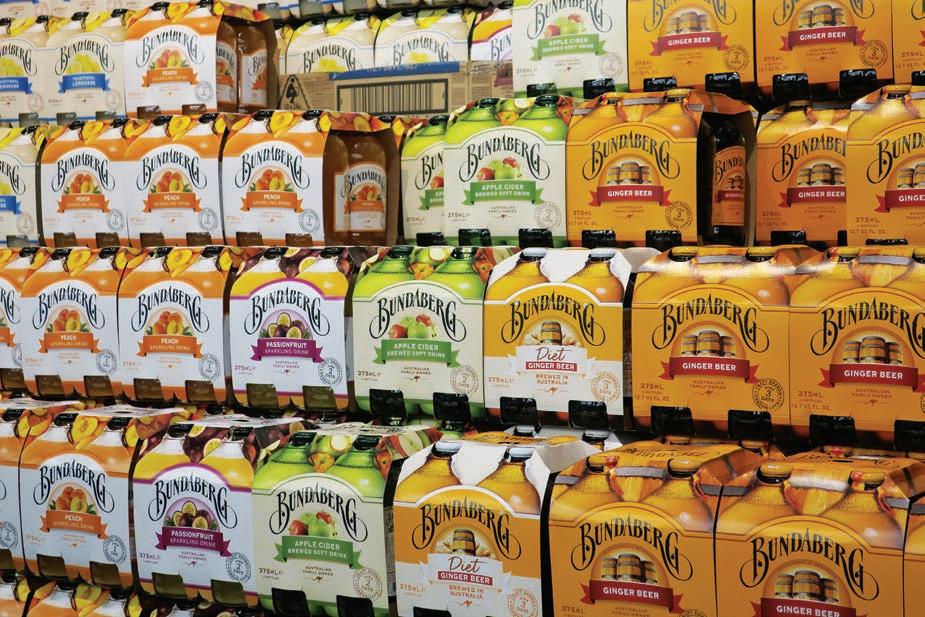
“Companies like Bundaberg Brewed Drinks represent the tenacity and commitment of original Queensland family businesses, showing that products from any of our regions can grow their worldwide demand,” said Palaszczuk.
“This year I’m struck by the increasing mix of established and newly developed Queensland goods and services with successful export outcomes. The judges are always challenged by the high standard of nominations. Queensland can be very proud of each of the 2022 finalists,” she added.
A lso congratulating Bundaberg Brewed Drinks, treasurer and minister for trade and investment Cameron Dick
to develop export excellence across a diverse array of industries that take the lead on the international stage. The quality of the goods and services produced by the nominees in each award category confirms that strategy is working.”
iconic representation of the region. Today they export to over 60 countries. Returning for their 32nd year, the Premier of Queensland Export Awards recognise the businesses behind Queensland’s $100 billion export industry and elevate category winners
StrangeLove partners with Asahi Beverages
Asahi Beverages has acquired growing premium beverages company StrangeLove, which was founded in Byron Bay in 2013.
The adult soft drink, premium mixer and mineral water business was founded by James Bruce and Stafford Fox, focusing on eclectic, sophisticated flavours and local ingredients.
With products such as Tonic No. 8, Lo-Cal Yuzu, Double Ginger, and a range of premium Sparkling Waters, StrangeLove has more than doubled
in volume and revenue in the last two years to become one of Australia’s fastest-growing beverage companies.
“It is clear Australians want more sophisticated and lower-sugar soft drinks, which has fuelled demand for StrangeLove’s amazing products in recent years,” said Robert Iervasi, Asahi Beverages Group CEO.
“We are really excited about the impact that StrangeLove is going to have in restaurants, cafes, hotels and pubs.
“We expect StrangeLove to really
shake things up in the on-premise premium mixer and adult soft drink space, with a high-quality, Australianmade brand.”
Asahi Beverages’ investment in the adult soft drinks and premium mixers market comes as consumers increasingly prefer better-for-you beverages.
These categories are driving growth in Australia’s $2.8 billion soft drink market (groceries & convenience), with premium mixer sales increasing by 40 per cent in the past three years
best of the state’s exporters.
Winners in the State’s 13 award categories qualify as finalists representing Queensland in the national Australian Export Awards to be held on 24 November in Canberra, staged by Austrade. F
and adult soft drink sales up by 65 per cent off a small base.
“This deal represents an amazing opportunity to speed up StrangeLove’s mission to revolutionise the adult soft drink market with more imaginative and high-quality beverages,” said StrangeLove co-founder James Bruce.
“Asahi Beverages will help grow StrangeLove in a way we couldn’t on our own,” added Bruce.
Bruce also said the StrangeLove management team will remain in their roles at the business. F
NEWS 8 Food &Beverage Industry News | November 2022 | www.foodmag.com.au
Editorial credit: IZWAN IS / Shutterstock.com
Winners in the state’s 13 award categories qualify as finalists representing Queensland in the national Australian Export Awards.
Kombucha manufacturing centre to bring more jobs to Victoria
The Victorian state government is backing more manufacturing jobs in Melbourne by supporting Remedy Drinks‘ new, stateof-the-art kombucha manufacturing centre in Dandenong.
Minister for Industry Support and Recovery Ben Carroll visited Australia’s largest kombucha maker Remedy Drinks’ $43 million centre in Dandenong which has created 87 new jobs.
The company has combined all its operations, including research and development, manufacturing, warehousing and distribution operations, into the new 18,000 square metre site.
“We’re proud to support local manufacturers with global ambitions like Remedy because their continued
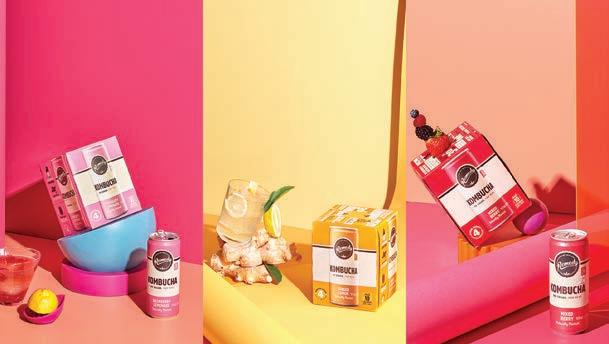
growth means more jobs for Victorians,” Caroll said.
“Remedy’s investment in new equipment and technologies in Victoria is testament to the fact that Victoria is the home of manufacturing in Australia.”
With fermented tea drinks growing in popularity around the world, the move will boost the company’s production and exports to the United States, Canada, United Kingdom and Asia.
Remedy Drinks produces one of the world’s only kombucha drinks that can be stored at room temperature without needing refrigeration, reducing energy use and transport costs.
Victoria has the largest food and drinks manufacturing sector in Australia, valued at about $38 billion
The $43 million centre in Dandenong has already created 87 new jobs.
and employing about 72,000 people.
The state government is backing the state’s advanced manufacturers to grow and innovate through initiatives including the Manufacturing and Industry Development Fund, which supports businesses to invest in new technology and equipment and
stimulate job creation across the state.
As part of the Victorian Budget 2022/23, the government is also investing $120 million in the Victorian Industry Fund to boost local manufacturing and support the growth of businesses in key sectors like health, food production, technology and defence. F
Ultra-fast plant enzyme could advance cereal production
Researchers from the University of Adelaide have uncovered previously unknown properties in a plant enzyme that could lead to advances in cereal production, medical, and pharmaceutical industries.
enzymes are an environmentally friendly and cost-effective alternative to current methods.
Waite Research Institute.
“This was achieved by examining the binding behaviour of sugars in the
was inaccessible before,” said Hrmova.
“This means we could potentially improve the properties of the enzyme that are critical to germination and the way the roots grow, leading to higher barley yields, which is crucial in cereal production.”
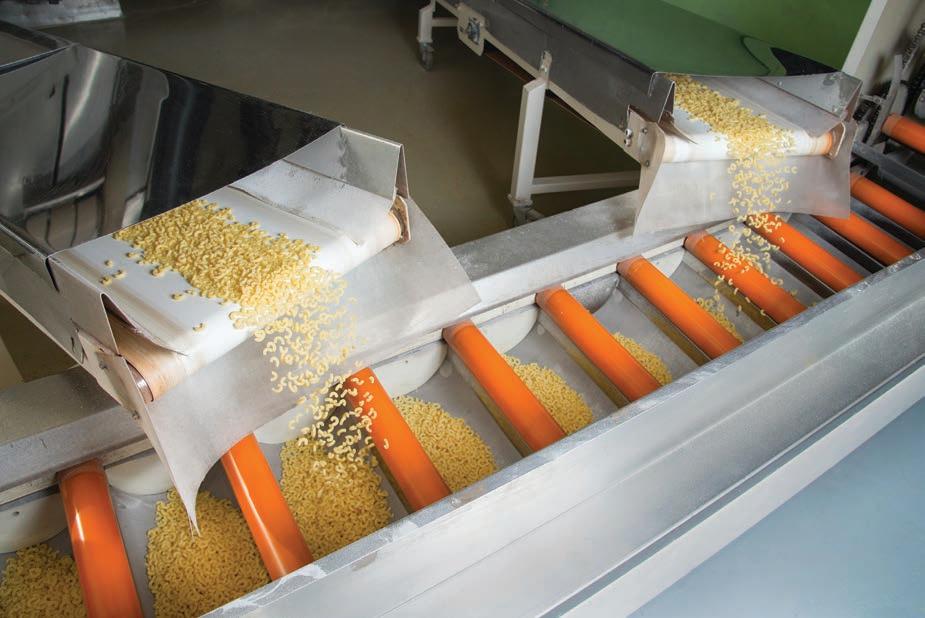
Enzymes are essential to life. They significantly increase the rate of a chemical reaction without undergoing any permanent chemical change themselves. But when enzymes convert, the substances with which an enzyme operates move in and out from the enzyme at high speed.
This process inhibits the investigation of these interactions using standard experimental techniques – a problem that brought to light using this multidisciplinary approach.
Hrmova added that the work could lead to significant improvements in catalytic rates, stability, and product inhibition in the enzymes. F
NEWS www.foodmag.com.au | November 2022 | Food &Beverage Industry News 9
The discovery could lead to higher barley yields.
Mars appoints new chief science officer
Mars, Incorporated has announced the appointment of Dr Abigail Stevenson as its Chief Science Officer (CSO), a role that champions Mars’ involvement in global, cutting-edge scientific discovery.
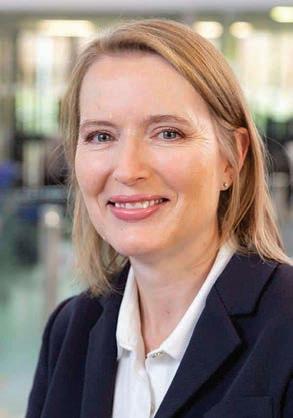
In this role, Dr Stevenson will drive external partnerships with academia, non-governmental organisations and peers; help build the pipeline of leading science and technology talent at Mars; and provide leadership of the Mars Science Leadership Team, reporting to Nici Bush, vice president of Science and Technology for Mars.
Dr Stevenson assumes the CSO
role in October and will retain her responsibilities as vice president of the Mars Advanced Research Institute (MARI), which connects Mars with emerging science and technology to spark discoveries with the potential to reinvent the future of its business.
She will also oversee the Mars Global Food Safety Center (GFSC), a state-ofthe-art research and training facility that sits at the heart of a global network of partners and collaborators tackling the most significant food safety challenges facing the planet today.
“As the world around us continues to evolve, I am excited to be driving
discoveries that have the potential to impact not only the future of our business, but also to improve the lives of people and pets around the world,” said Dr Stevenson.
“I’m fortunate to be surrounded by some of the best and brightest scientists, researchers and professionals across the globe, and I’m looking forward to continuing our important work together.”
In her career at Mars, Dr Stevenson has overseen significant research outputs, delivering innovative solutions to longstanding food industry challenges.
She has served in multiple roles
Growing the Australian vegetable industry
he Australian vegetable industry has grown significantly by taking advantage of changes in consumer

“Growing the Australian vegetable industry by diversifying products and improving quality report shows that vegetable industry growth has significantly outpaced the overall agricultural sector over the past five decades,” said ABARES executive director, Dr Jared Greenville.
“The vegetable sector has seen growth through a shift toward higher value products and improvements in the quality and convenience of what is provided,” Dr Greenville said.
Over the period from 1969-70 to 2020-21, the nominal value of vegetable production increased by
with the Waltham Petcare Science Institute, including head of Science Communications and Engagement; and was director of the Mars GFSC from 2017 to 2020 before assuming the role of vice president of MARI. F
From 1969-70 to 2020-21, the nominal value of vegetable production increased by $4.7 billion.
Improvements in product mix and quality contributed nearly 60 per cent of that growth while general vegetable price inflation contributed 35 per cent and increased volumes 5 per cent,” said
Rising incomes and changing
tastes have shifted consumer demand towards higher quality, wider variety and improved convenience, with only a moderate increase in volumes.
“We are not eating greater quantities of vegetables, rather we are eating a wider range of higher quality vegetables,” said Dr Greenville.
The improvement in quality has come from a variety of sources, including improved packaging, greater consistency, more ready to eat products and greater year-round availability.
“An important experience of the vegetable sector has been the on-farm value created by effectively responding to changes in consumer preferences and the role that close relationships along supply chains have played,” added Dr Greenville.
“While the experience of the vegetable sector may not be fully applicable everywhere, it seems likely that for a wide range of products in major export markets a capacity to differentiate based on quality attributes will be increasingly important as consumer incomes increase and tastes evolve.” F
NEWS 10 Food &Beverage Industry News | November 2022 | www.foodmag.com.au
Dr Stevenson assumes the CSO role in October.
Seaweedbased wrapper provides fast-food packaging solution
Flinders University materials researchers and German biomaterials developer one•fıve are using seaweed extracts to develop nextgeneration biopolymer coating materials that could solve packaging waste dilemmas for the fast-food industry.
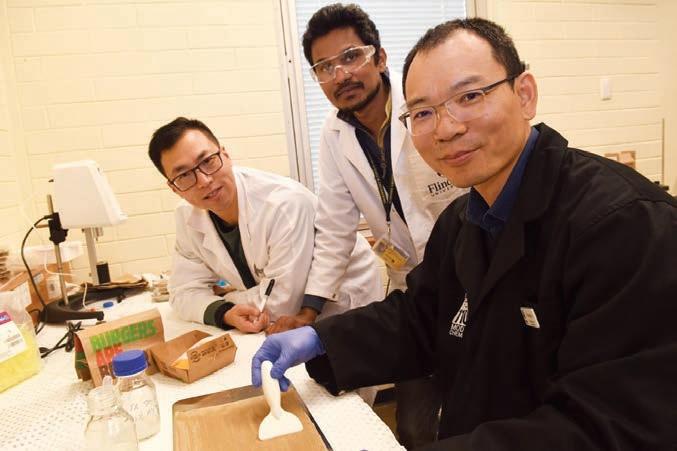
The new non-pollutive biomaterials are designed to replace conventional fossil-based plastic coatings used in grease-resistant fast-food packaging.

Grease-resistant paper is typically coated with plastic and other environmentally harmful chemicals, such as polyfluoroalkyl substances (PFASs), but the new prototype coating meets the functional requirements of conventional greaseresistant packaging materials while also presenting an environmentally circular solution.
The result represents a landmark achievement in creating a next-generation sustainable and ecologically responsible biopolymer.
This development – which took extracts from certain seaweeds, added modifications and formed degradable bioplastic films – has been led by Dr Zhongfan Jia, lead researcher from the Flinders Institute for Nanoscale Science and Technology and research colleague Peng Su in association with the Flinders Centre for Marine Bioproducts Development.
Biomass for the new coating formulation is made from natural polymers extracted from seaweeds that are native to the South Australian coastline – which provided a key reason why the Flinders University researchers studied it for more broad scientific application.
These extracts are transformed through a proprietary processing methodology to produce functional biopolymer sheets that can be cut or coated onto various surfaces, depending on the application. F

NEWS
The new non-pollutive biomaterials are designed to replace conventional fossil-based plastic coatings
Krones Pacific Pty Ltd, Tel: +61 2 9647 0200, E-mail: info@krones.net.au
Food & Beverage Industry News, 150 x 195 mm, Digitalisation M, CC-en91-AZ181 10/22
Coles and Bulla join forces to raise funds for food relief
Coles and Bulla have collaborated to raise funds from the sale of ice cream to help SecondBite provide the equivalent of up to one million meals for Australians facing food insecurity.
From September 28 until October 25, Coles and Bulla will donate 20 cents – the equivalent of one meal according to SecondBite – from every individual and bulk pack or tub of Bulla ice cream and Murray Street ice cream sold at Coles supermarkets.
SecondBite work with food growers, manufacturers and retailers to rescue surplus and unsold edible food that would otherwise be wasted in landfill and distribute it to local charities and non-profits around the country.
SecondBite CEO Steve Clifford welcomed the new initiative by Bulla
and Coles to raise funds at a time when many people in the community are struggling.
“This donation will really impact our ability to increase capacity, get more trucks on the road collecting food and ultimately feed more Aussies in need,” said Clifford.
Coles chief executive commercial and express Leah Weckert said Coles was pleased to join forces with two longstanding partners to introduce a new ice cream initiative.
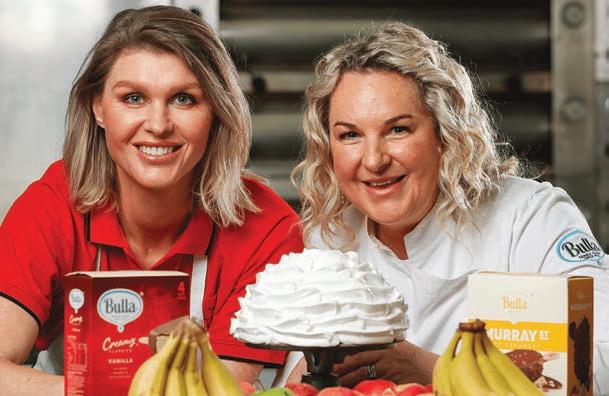
“We know Australians love ice cream and they also want to help people in need. Through this new fundraising campaign, customers can enjoy a delicious Bulla ice cream while also helping others,” she said.
Bulla director and fifth generation founding family member James Downey said the 112-year-old business continued
to have strong family values as it has grown over the past several decades.
“We are privileged to partner with SecondBite in conjunction with Coles to support their work rescuing and
New food waste initiative to target food insecurity
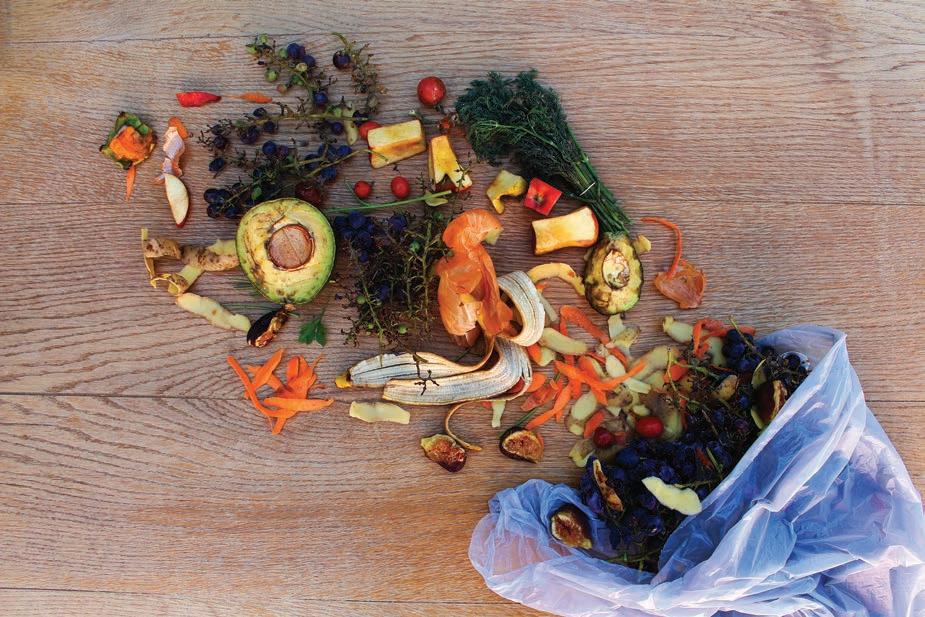
Australian businesses and the Australian government can help strengthen food rescue, help feed food insecure Australians, and minimise environmental impacts of food waste, according to Stop Food Waste Australia‘s Sector Action Plan.
has been co-designed and developed
with Australia’s four biggest food rescue charities – Foodbank, OzHarvest, SecondBite and FareShare.
The plan outlines key interventions in research, policy, business
Australians.
Food rescue plays a critical role in Australia meeting its stated target of halving food waste by 2030 while also helping address the growing need for
redistributing good food to those in need right across Australia. SecondBite supports over 1,100 community food programs while at the same time reducing waste to landfill,” said Downey. F
meals for millions of food insecure Australians.
The Sector Action Plan aims to increase surplus food captured for redistribution, highlighting key initiatives for both the food rescue sector and policy-makers, primary producers, manufacturers, retailers, transport and logistics organisations and other associated parties.
Stop Food Waste Australia CEO Dr Steven Lapidge said the value of Australia’s food rescue sector cannot be understated.
“Food rescue is a unique approach to reducing food waste because it also has the fundamental co-benefit of reducing food insecurity.
“Australians continue to waste more than 7.6 million tonnes of food every year – 70 per cent of which is edible. At the same time, one in six Australian adults haven’t had enough to eat in the last year, and 1.2 million Australian children have gone hungry.” F
NEWS 12
More than 7.6 million tonnes of food is wasted in Australia every year.
SecondBite supports community food programs and helps reduce food waste.
CGA
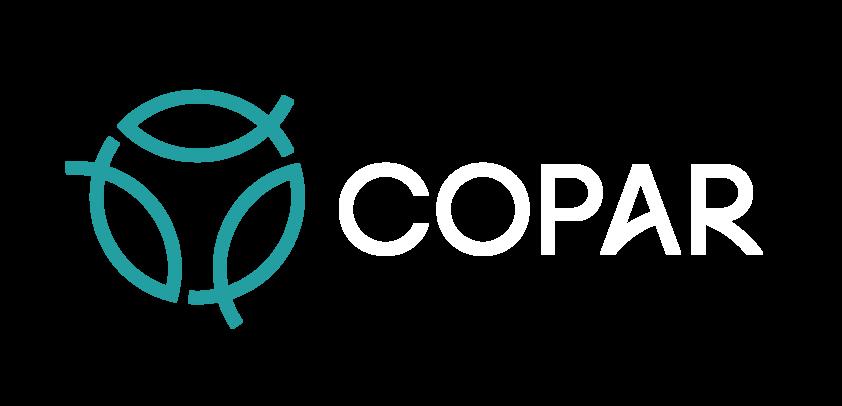
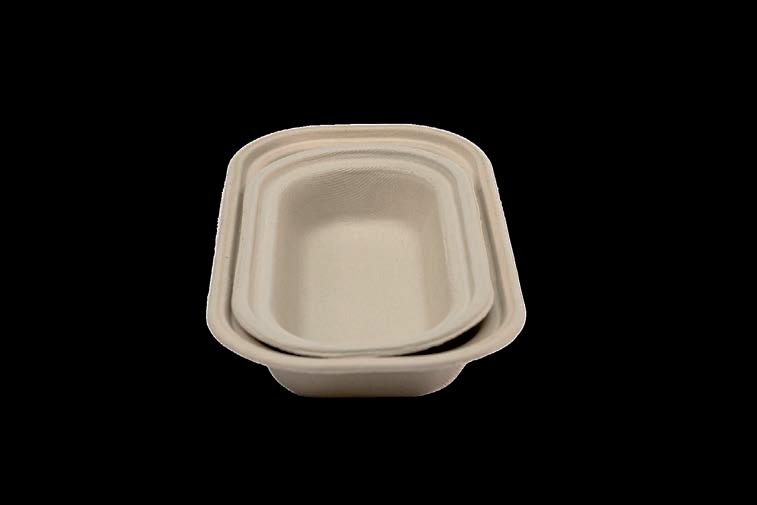
Victoria partner for pilot project on traceability

Cherry Growers Australia (CGA) and Agriculture Victoria will partner to lead an innovative cherry supply chain traceability pilot for on-farm traceability and high-value export markets.
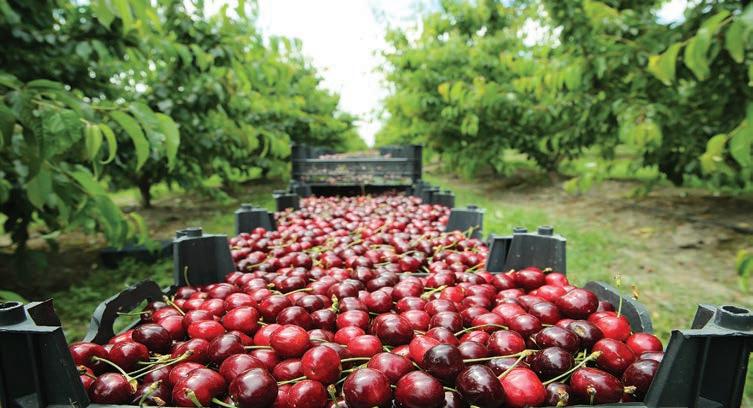
The project is funded through Agriculture Victoria from its Transforming Traceability program, a $11.7 million commitment to invest in the state’s traceability systems across the agri-food supply chain.
Over 2 years from 2022 to 2024, this pilot will build and protect exports by developing automated and integrated traceability systems that track the product journey from on-farm harvest through to customers. These systems will have the ability to identify products back to a carton or consignment level.
This pilot program will be conducted through a large Victorian producer and exporter, CherryHill Orchards. CherryHill will integrate the developing hardware and software technologies into their supply chain to apply this leading traceability technology to their premium cherry brands.
While on-farm traceability is well
developed in the cherry industry, it may be a paper-based system and usually ends when cherries enter export countries, preventing Australian producers from tracing their produce and leveraging the value of their brands.
GS1 traceability standards will be incorporated into the pilot, enhancing the international compatibility of these supply chains for global exports and domestic markets.
Dialog Information Technology, the technology provider for the project, will link up CherryHill’s ERP fresh produce system with two technologies – RFID farm and packing scanning and GS1 Digital Link for supply chain tracking and consumer engagement.
RAMP will provide inventory management software and RFID technology to enhance on-farm traceability.
The Australian cherry industry has a total value of $189 million and exports worth $79.5 million. At its peak, Victorian cherry growers exported almost 2,000 tonnes to over 30 countries annually at a value of $30.8 million. F
www.foodmag.com.au | November 2022 | Food &Beverage Industry News 13 NEWS
AUSTRALIAN-MADE COMPOSTABLE PACKAGING WWW.COPAR.ECO sales@copar.eco +61255656770 MADE FROM AUSTRALIAN AGRO WASTE, FOR YOUR FOOD PACKAGING SCAN THE QR CODE AND REGISTER YOUR INTEREST NOW TO GET EXCLUSIVE ACCESS TO OUR SAMPLES FOOD | FRESH PRODUCE | MEAT PACKAGING COMING SOON IN 2023
and Agriculture
The Australian cherry industry has a total value of $189 million and exports worth $79.5 million.
Lenard’s appoints new regional sales manager
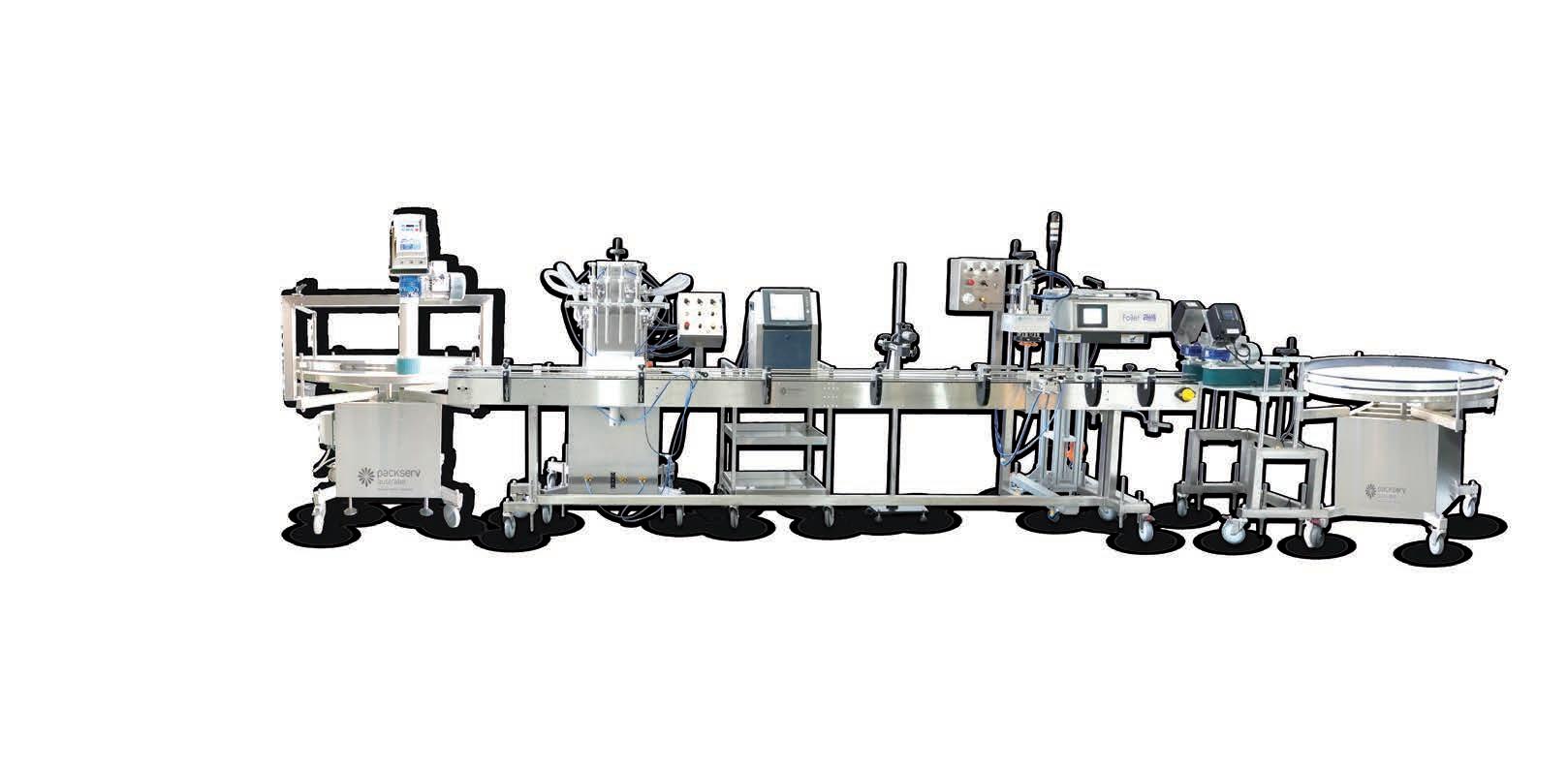
Steve Smith, formerly of Coles, Woolworths, Metcash and IGA, has been appointed the Regional Sales Manager for New South Wales, Victoria and Tasmania at well-known Australian poultry company, Lenard’s.
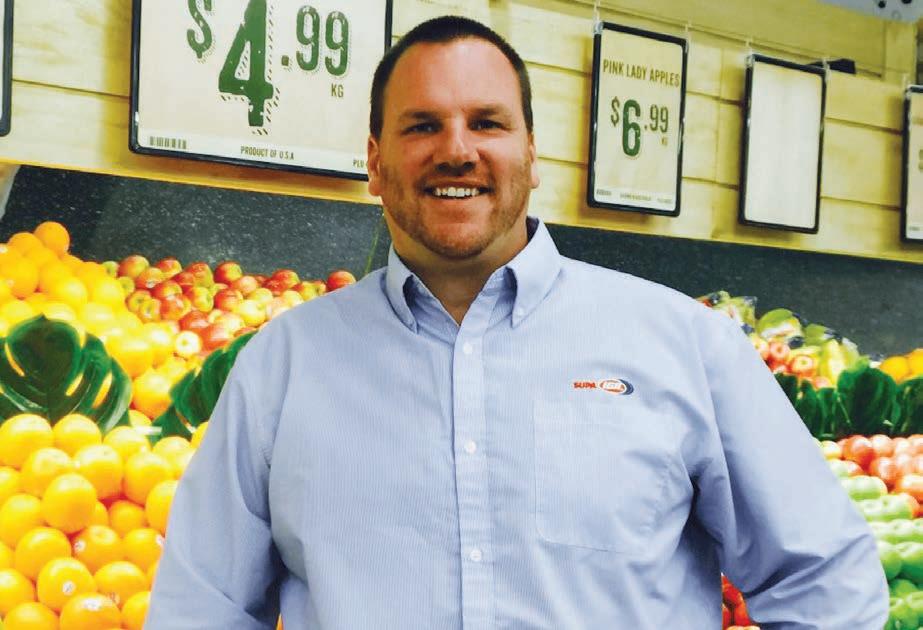
Lenard’s chief executive officer, Harry Rumpler said they were excited to have Smith on board as the regional sales manager.
“Steve has worked for Metcash, and as a retailer so his experience will be a huge benefit to Lenard’s. [His] understanding of the independent sector will ensure our continued growth as we roll out our distribution and product strategies. We see Steve’s relationships with retailers as a key to our success,” said Rumpler.
On his new appointment, Smith commented, “Lenard’s is just a sensational product with great packaging, well-priced, extremely tasty and the fact it’s frozen-thawback means it’s easy for retailers to manage.
“Being a former store owner, I it’s a win/win.”
Hemp Foods Australia secures national distribution with Coles
Hemp Foods Australia, a subsidiary of Elixinol Wellness, has secured distribution in more than 800 Coles stores nationwide for its Functional Seed Mix range.
The newly developed range will be stocked in the health food aisle of Coles supermarkets and combines hemp seeds with other fruit, nut and seed formulations to deliver specific health benefits. The range includes a Protein Boost Seed Mix, Antioxidant Seed Mix, Gut Health Support Seed Mix, and Omega Seed Mix.
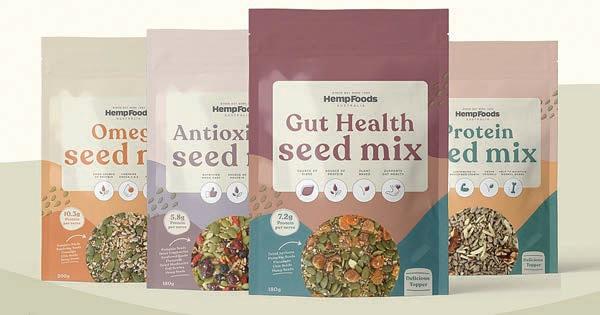
The Coles partnership is another important step in Hemp Foods Australia’s retail distribution strategy and follows a deal with Woolworths late last
year to stock its certified organic Hemp Gold Seed Oil in more than 100 stores.
“To secure national distribution with Coles for our new Seed Mix range is an exciting progression for Hemp Foods Australia and means that our brand can now be found on the shelves of Australia’s two largest supermarket chains,” said Felipe Favaro, general manager, Hemp Foods Australia.
“While we have been working hard on driving our e-commerce strategy, we also recognise the importance of bricks-andmortar sales, and we are definitely seeing more interest from supermarkets to stock our products as the mainstream appeal of hemp continues to grow,” Favaro added.
Hemp Foods Australia also expanded its partnership with Costco following
more than $3 billion by 2030.
the success of HFA’s Australian Hemp Seeds product.
Australia is being heralded as a plant-based protein powerhouse of the future, with a new report by the
the Commonwealth Scientific and Industrial Research Organisation (CSIRO) predicting that the sector could be worth between $3 billion and $9 billion by 2030. F
NEWS 14 Food &Beverage Industry News | November 2022 | www.foodmag.com.au
locally sourced ingredients.
classics they know and love.
Steve Smith, brings experience from Coles, Woolworths, Metcash and IGA.
The plant-based protein market is predicted to be worth
C M Y CM MY CY CMY K



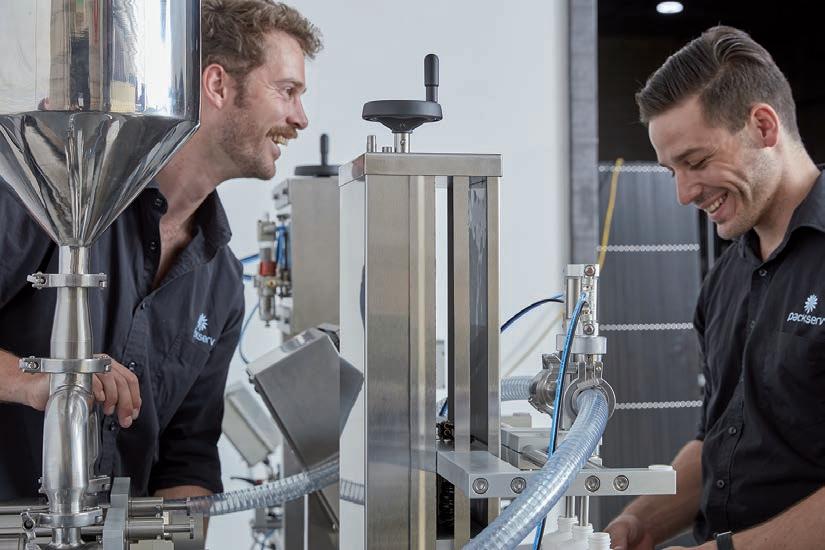
Refresco acquires Australian manufacturer Tru Blu Beverages
Refresco Group will expand into Australia as it enters into an agreement to acquire Tru Blu Beverages, one of Australia’s leading manufacturers of non-alcoholic beverages.
The acquisition of Tru Blu Beverages expands Refresco’s addressable market and provides opportunities to leverage Refresco’s size and scale, as well as its
track record of successfully integrating companies.

Tru Blu Beverages is a privatelyowned beverage manufacturer focused on providing non-alcoholic beverages to Australia’s largest retailers and brand owners. Tru Blu Beverages employs over 400 staff and has three manufacturing
and Perth, supported by a distribution network with warehouses in all major Australian capital cities.
Tru Blu Beverages fits into Refresco’s business model, with its wide range of beverage solutions for retailer brands and global, national and emerging brands. In addition, Refresco’s strategic ESG
accelerate its efforts of minimising the environmental impact of manufacturing processes, packaging and transport.
Refresco CEO Hans Roelofs said the acquisition is a testament to their proven ‘Buy & Build’ strategy.
“We now operate over 70 manufacturing sites globally, with just about half of those located across North America and the rest throughout Europe, offering a full range of beverage solutions to a broad customer base,” he said.
Peter Brooks, CEO of Tru Blu Beverages said, “By joining Refresco, our customers, suppliers and employees will be able to benefit from the Company’s broad capabilities, experience and expertise.
Refresco now operates over 70 manufacturing sites globally.
“Tru Blu Beverages’ leading capabilities and blue-chip customer base gives Refresco a solid entrance into the Australian market. We look forward to building an even stronger platform together.” F
Vgarden expands to Queensland
Vin Brisbane, as part of an ongoing relationship with Australia-based Cale and Daughters, which owns multiple vegan brands.
The two companies have worked together for two years to build plantbased food distribution in Australia. The new factory is scheduled for completion in 2023 and will employ 50 staff.
“Once fully established, our new facility will allow us to use locally sourced materials with a smaller carbon footprint,” said Ben Dotan, head of Innovation and Engagements at Vgarden.
“We will also investigate the possibility of exporting our products from Australia to the APAC region.”
lan Adut, CEO, Vgarden Israel said, “We are extremely proud of the partnership we have forged with Cale
delicious, nutritious foods.”
Vgarden develops, manufactures and distributes a range of products in Israel, including dairy-free cheese and spreads, vegan pastries, meat and fish alternatives, and lactose-free food.
The company is a supplier to major food chains, including Burger King and Pizza Hut. Vgarden is already a supplier to Woolworths in Australia.
Australia is a major producer of grains, pulses and legumes. With an advanced agri-research sector, Australia is poised to become a global leader in plant-based proteins.
The Commonwealth Scientific and Industrial Research Organisation (CSIRO) has estimated that Australia’s $140 million plant-based protein sector could grow to $9 billion by 2030.
Australia is the world’s third fastestgrowing market for plant-based foods.

NEWS 16 Food &Beverage Industry News | November 2022 | www.foodmag.com.au
Australia is the world’s third fastestgrowing market for plant-based foods.
Peters Ice Cream has partnered with Australian fresh produce company, Montague, to create Rescue Pops – Plums Up, a frozen fruit sorbet stick made from rescued and repurposed Montague plums that were destined for landfill.
Rescue Pops – Plums Up sorbet sticks are naturally gluten-free, plantbased with no artificial colours or flavours and contain only 56 calories per serving.
Woolworths supermarkets have partnered with Peters and Montague to bring Rescue Pops – Plums Up to market, and will be exclusively ranging this product nationally from October in an eight-pack.

In Australia, 7.6 million tonnes of food waste ends up in landfill each year, equalling about 312 kilos per person. Much of this waste is perfectly edible but rejected due to minor blemishes and imperfections.
Stone fruits like plums are one
of the most common fruits to end up in landfill as they are prone to bruising, are highly perishable and have limited opportunities for juicing or repurposing.
According to Peters Ice Cream country head, Emma-Jane Collins, it is important for Australia’s most prominent food brands to highlight and address the issue of food waste.
According to Scott Montague, managing director of Montague, the partnership with Peters Ice Cream connected two companies with similar commitments to long-term sustainability and a keen environmental focus.
“Aligning with Peters is an exceptional opportunity for us to lead by example as we embed sustainability into every aspect of our operations,” he said.
Peters Ice Cream will also assist in closing the loop on food waste by funding 200,000 meals for Australians in need through Foodbank. F
Sorbet sticks made from repurposed plums Country managers for Japan and Korea announced
Australian Grape & Wine and Wine Australia have welcomed minister for Trade and Tourism Don Farrell’s announcement of two dedicated country managers for Australian wine in Tokyo and Seoul.
Farrell announced the appointment of Rosemary Macdonald and Suzie Chung as wine country managers for Wine Australia for Japan and Korea, respectively. They were introduced at in-market ceremonies attended by key members of the wine trade.
Japan and South Korea are two key destinations for Australian wine, currently sitting at the eighth and eleventh position for largest export markets by value respectively, and both have opportunities for growth.
“The Wine Country Manager
initiative will help Australian wine exporters diversify their markets. This is an exciting new opportunity for the industry, bringing together exporters, importers, wine experts and buyers to increase sales of Australian wine in supermarkets, restaurants and homes across Korea and Japan,” Farrell said in a media statement.
Australian Grape & Wine chief executive Tony Battaglene said he was delighted at the appointments, which are funded through the Australian Government’s Agricultural Trade and Market Access Cooperation (ATMAC) Program.

“Ms MacDonald and Ms Chung will be vitally important resources in two key markets that have been pinpointed for growth of Australian wine exports,” Battaglene said.
investment to assist in the wine sector’s strategic and long-term efforts in Japan and South Korea.” F
NEWS www.foodmag.com.au | November 2022 | Food &Beverage Industry News 17
“The Australian Government recognises the challenges facing exporters and has provided this
Peters Ice Cream, will also fund 200,000 meals.
Rosemary Macdonald and Suzie Chung as wine country managers for Wine Australia for Japan and Korea.
Carman’s announces acquisition of Fruit Wise
ustralian cereal and snack manufacturer Carman’s has announced the addition of the family-owned snacking brand, Fruit Wise, to the Carman’s family.
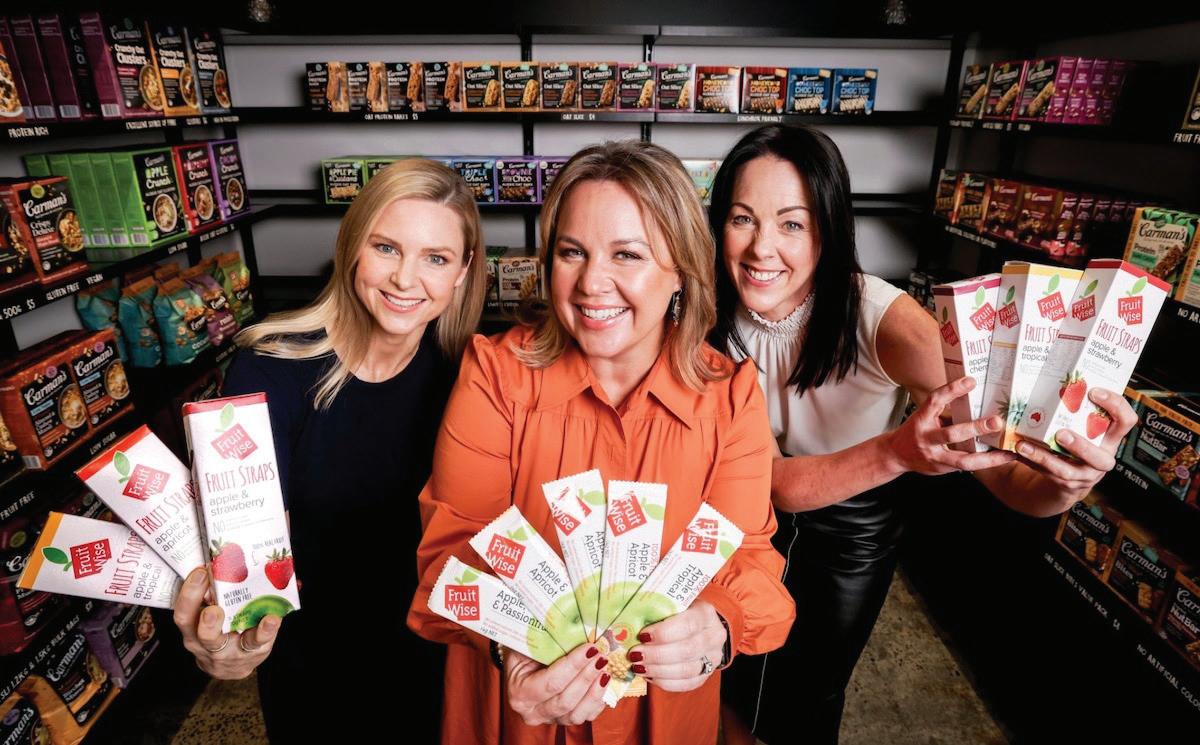
Carman’s has said the joining of the two businesses is a very exciting venture for their team, as it brings together a shared passion for delicious and quality
“My kids have loved Fruit Wise fruit straps for over 15 years, so much so they were the number one school lunch box request! Given how much we all loved the product, I decided to pick up the phone to see if there was any opportunity to work together.”
It’s truly a moment that I’m so proud of and I just can’t wait to watch Carman’s continue to grow.” said Carman’s founder Carolyn Creswell.
Managing director of Fruit Wise Bridget Beal said, “After speaking with Carolyn we knew straight away that this was the right move for Fruit Wise.”
“We’ve been family owned for 15 years, so wanted to make sure we were passing over the reins to someone just like Carolyn, who shared the same outlook about delicious and healthy snacking and looking after Aussie families. We can’t wait to watch Fruit Wise grow under the care of Carman’s!” Beal added.
The purchase comes after a year of negotiations.
“After a year of discussions, our unparalleled similarities and outlook on healthy snacking helped us finalise what is now Carman’s first ever acquisition.
Australian owned and made product is something Creswell holds close, which is why Fruit Wise will remain in its original home in Adelaide Hills. F
Nestlé launches NESCAFÉ Plan 2030
NESCAFÉ, Nestlé’s largest coffee brand, outlined its extensive plan to help make coffee farming more sustainable: the NESCAFÉ Plan 2030.
The brand is working with coffee farmers to help them transition to regenerative agriculture while accelerating its decade of work under the NESCAFÉ Plan.
The brand is investing over A$1.57 billion by 2030 in the NESCAFÉ Plan 2030.
T his investment builds on the existing NESCAFÉ Plan as the brand expands its sustainability work. It is supported by Nestlé’s regenerative agriculture financing following the Group’s commitment to accelerate the transition to a regenerative food system and ambition to achieve zero net greenhouse gas emissions.
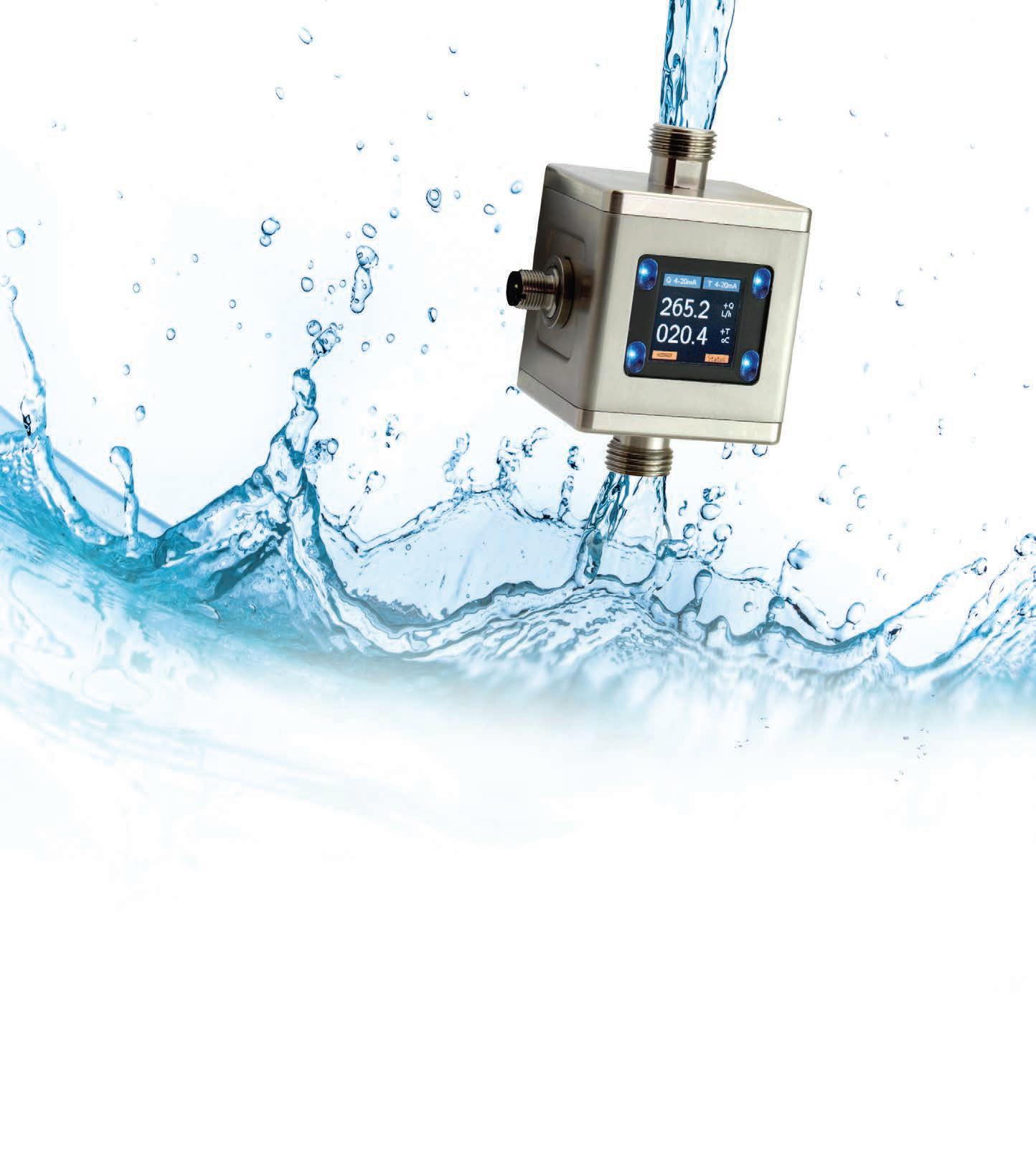
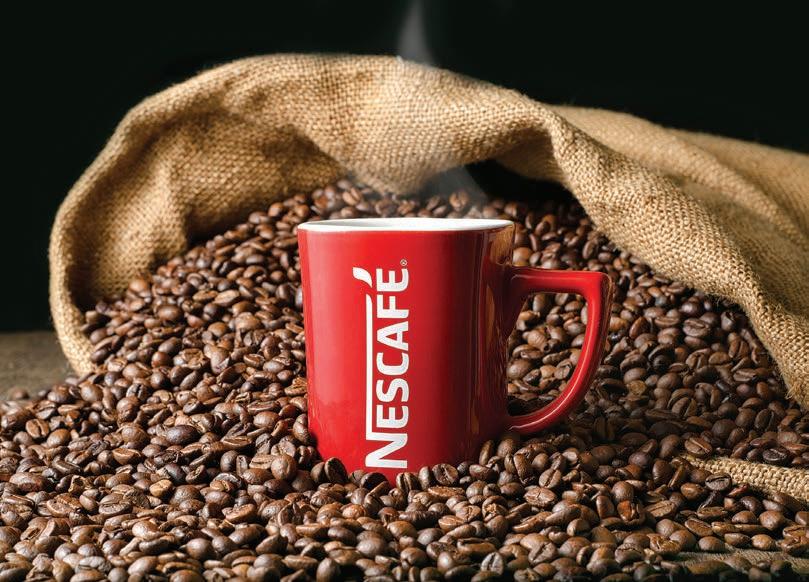
Regenerative agriculture is a key part of Nestlé’s Zero Net road because
it contributes to drawing down carbon dioxide from the atmosphere and reducing greenhouse gas emissions. The coffee brand aims to contribute to Nestlé’s Zero Net commitment to halve greenhouse gas emissions by 2030 and reach zero net greenhouse gas emissions by 2050.
From farm to factory, the NESCAFÉ Plan 2030 will also build upon the brand’s actions in Australia to reach net zero greenhouse gas emissions by 2050.
In 2021, the NESCAFÉ factory in Queensland Australia transitioned to 100 per cent renewable electricity. Additionally, 100 per cent of the coffee beans roasted and blended at the NESCAFÉ factory in Queensland are sustainably grown.
Within its Australian and New Zealand operations, the brand is on track to have 100 percent of its coffee responsibly sourced by the end of 2023.
NEWS 18 Food &Beverage Industry News | November 2022 | www.foodmag.com.au
The NESCAFÉ Plan 2030 will build upon the brand’s actions to reach net zero by 2050.
Accurate Measurement of
Kobold Instrumentation is one of the leading international instrumentation engineering manufacturers specialising in monitoring, measuring and regulating all aspects of liquid and gas applications when it comes Food & Beverage applications. Irrespective of the requirement, or the process Kobold Instrumentation will have a product to suit.
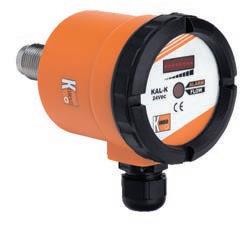
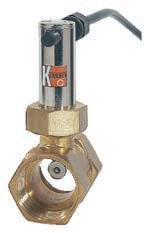

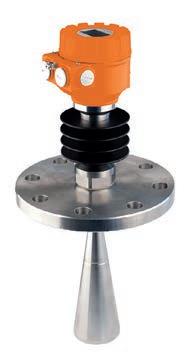
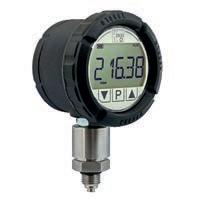
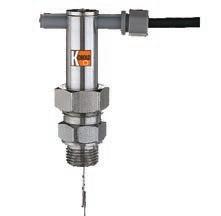
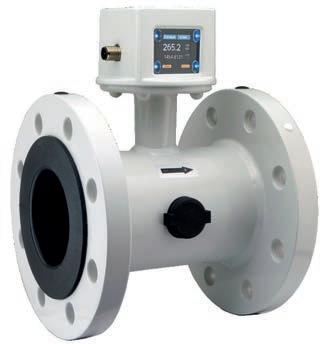
Our strength comes from high-quality distribution partners who manage installation, service, technical support & training nationwide.

Flow, Pressure, Level
& Temperature
Trusted German Engineering & Manufacturing Lubrication Management | Flow Management | Fire Suppression JSG Industrial Systems | jsgindustrial.com | 1300 277 454 Quality Engineered Systems
Adaptability is a critical aspect to modern manufacturing growth
Australian Vintage Limited, or AVL Wines, has become a clear example of how a producer in the food and beverage space can benefit from diversifying product offerings while moving towards a Net-Zero target.
Adam McCleery writes.
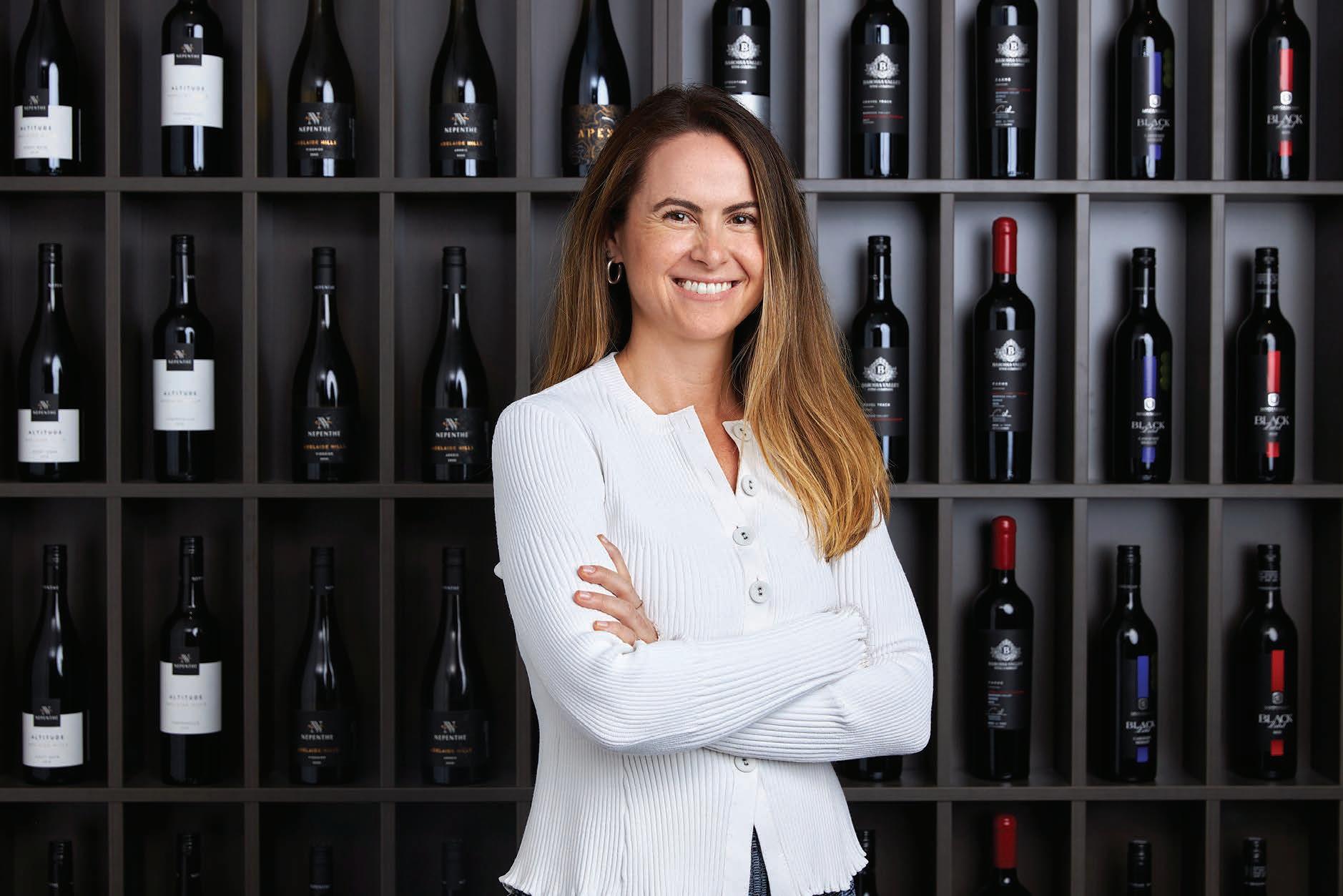
MEET THE MANUFACTURER 20 Food&Beverage Industry News | November 2022 | www.foodmag.com.au
Lucy Nash, AVL Wines head of sustainability, said the company prides itself on promoting Australia’s best wine regions.
Australian Vintage owns prominent wine brands across Australia including McGuigan Wines, Tempus Two, Barossa Valley Wine Company, and Nepenthe.
Australian Vintage head of sustainability, Lucy Nash, said the product portfolio of the company afforded Australian Vintage the ability to engage with consumers of all tastes across Australia, New Zealand, and the United Kingdom.
“The brands allow us to celebrate these beautiful wine regions around Australia while also bottling those and taking them to consumers across Australia and internationally,” she said.

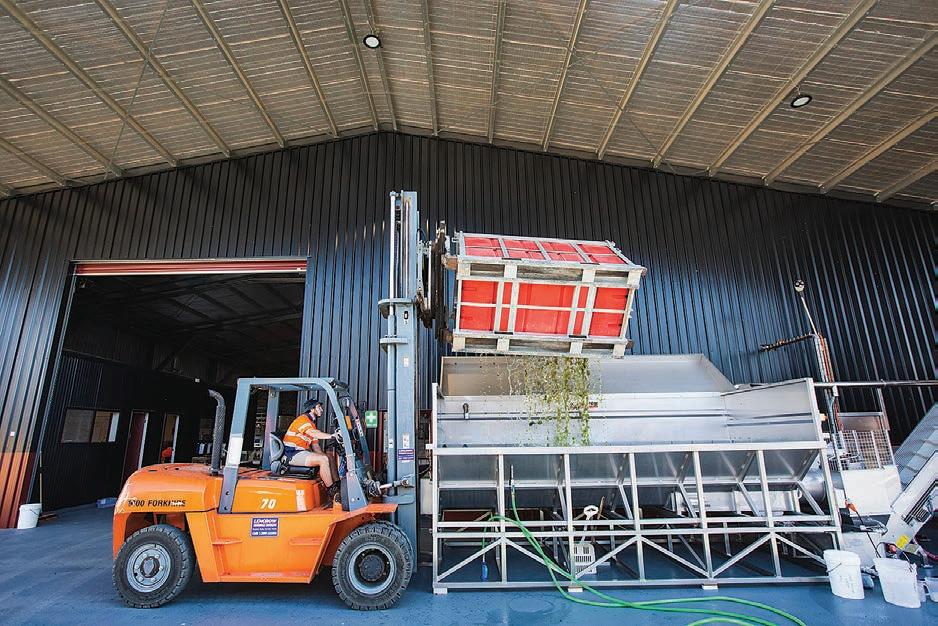
Nash added that company exports a significant amount of product to the United Kingdom.
“We currently export our McGuigan Wines and Tempus Two brands and while these both have cellar doors in the Hunter Valley region, they both celebrate the wines of Australia,” she said.
“All our wine is made at our winery in Buronga Hill, on the border of Victoria and New South Wales, it is such an incredible site and facility. The scale of it, in the River-land’s region. It is an incredible region.”
Celebrating Australian regions is one of the key focus areas for Australian Vintage, and to do that the company
builds strong networks across some of the best the country had to offer.
“We bring in fruit from our own vineyards around the country, in the Riverland, Hunter Valley, Adelaide
Hills, and Barossa Valley,” said Nash.
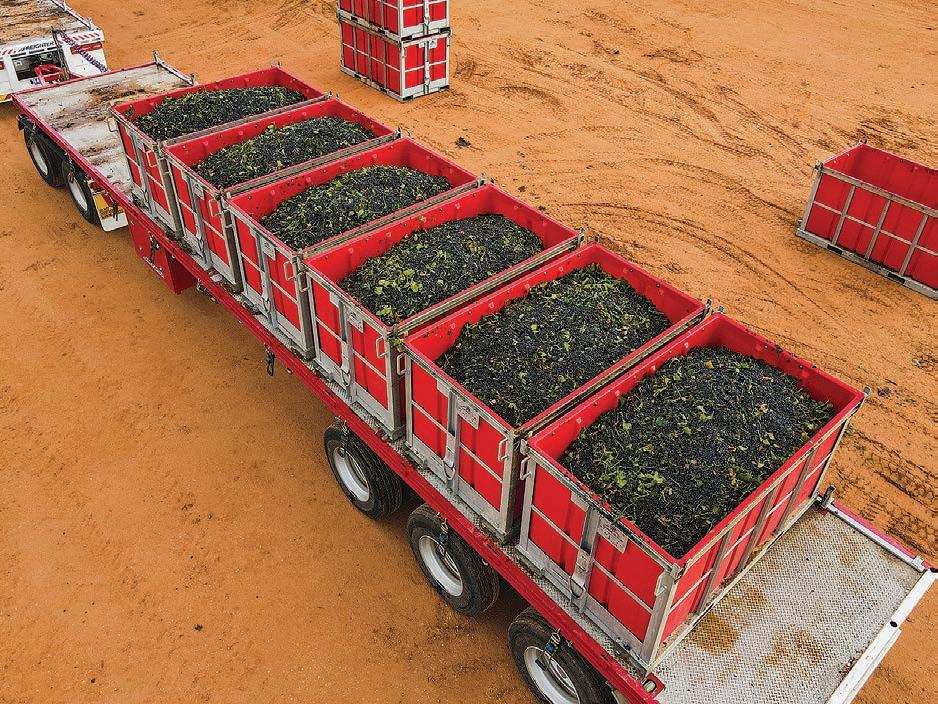
“We also have some leased vineyards and purchase from some growers. We do all three methods to allow us to access the best fruit and meet market demands.”
Today, Australian Vintage crushes approximately seven per cent of the total Australian production of wine, making it one of the largest producers of its type,
“We are seeing more expansion,” said Nash.
“We are always looking at celebrating what is inherent to these beautiful regions but also exploring new varietals, especially ones that are perhaps more adaptive to changing climate conditions and consumer taste.”
Nash said putting the consumer at the heart of everything we do is an important factor in successfully reaching the market.
Nash said the company’s emphasis on listening to the consumer helps drive its innovation.
“Consumer insight drives all our brand marketing efforts and ultimately our innovation pipe-line, looking at what varietals and regions consumers are excited about and where we can serve people by meeting them where they are,” Nash added.
Australian Vintage will continue to celebrate the heritage of the brands and regions from which they come, but Nash said innovation and looking to the future was what would ensure the continued growth of the company.
One new consumer need that Australian Vintage identified, and since capitalised, was the rise in low and no-alcohol beverages.
“We are seeing a focus currently around no and low alcohol wines in the wine space,” said Nash.
“As a result, we’ve invested significantly in technology and machinery which helps us produce
www.foodmag.com.au | November 2022 | Food &Beverage Industry News 21 MEET THE MANUFACTURER
Australian Vintage Wines also exports a large amount of product to the UK.
“Consumer insight drives all our brand marketing efforts and ultimately our innovation pipeline, looking at what varietals and regions consumers are excited about and where we can serve people by meeting them where they are.”
beautiful premium wine and then spin off the alcohol to make lower alcohol, seven per cent wine, right down to a no-alcohol wine.
“We are seeing the response to that with our McGuigan zero range and in the Tempus Two zero that is launching currently.
“We are seeing the response in our McGuigan Zero range and in the Tempus Two Lighten Up and Zero range that is launching currently.
“We are seeing huge trends around moderation in consumption of alcohol and our McGuigan Zero is in the number one selling zero-alcohol wine in both Australia and the UK.
Nash said the true innovation around no-and-low alcohol was because it catered to the changing tastes of the consumer and tailoring to different drinking occasions
“That is in the wine space, but more recently we have also moved into the drink’s category,” she added.
Leveraging its world-class assets and innovative know-how, the company
recently expanded into spirits and ready-to-drink cocktails to diversify its portfolio and de-liver products that consumers are demanding.
Developed in response to global drinks trends each brand offers a distinctive point of difference - from a world-first gin to a playful sustainable spirit and high-quality cocktail convenience.
“While moving towards a more circular model in how we produce our wine packaging and create a more sustainable consumption and business model, we are also creating high-quality gin products repurposing the alcohol that is spun off from the low and no alcohol line innovation,” said Nash.
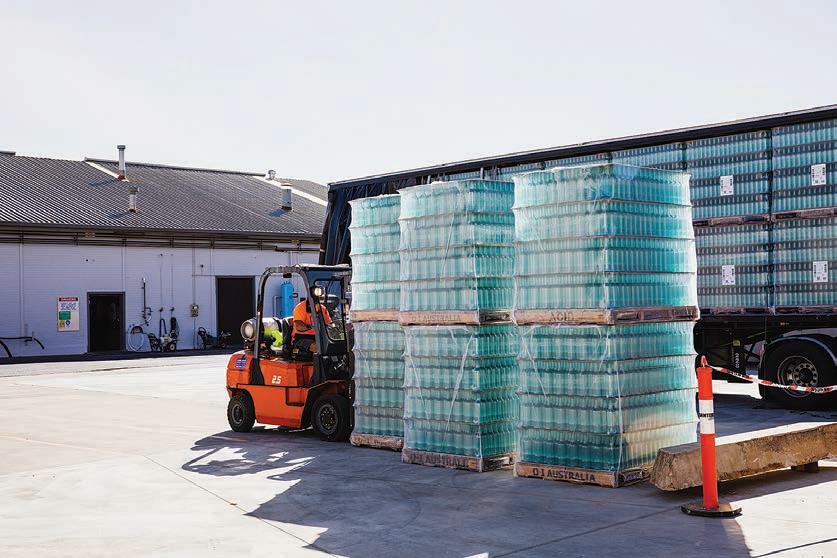

“Using a combination of traditional and non-traditional extraction and distillation methods, we just launched a beautiful gin product called Rescued Spirit Co.”
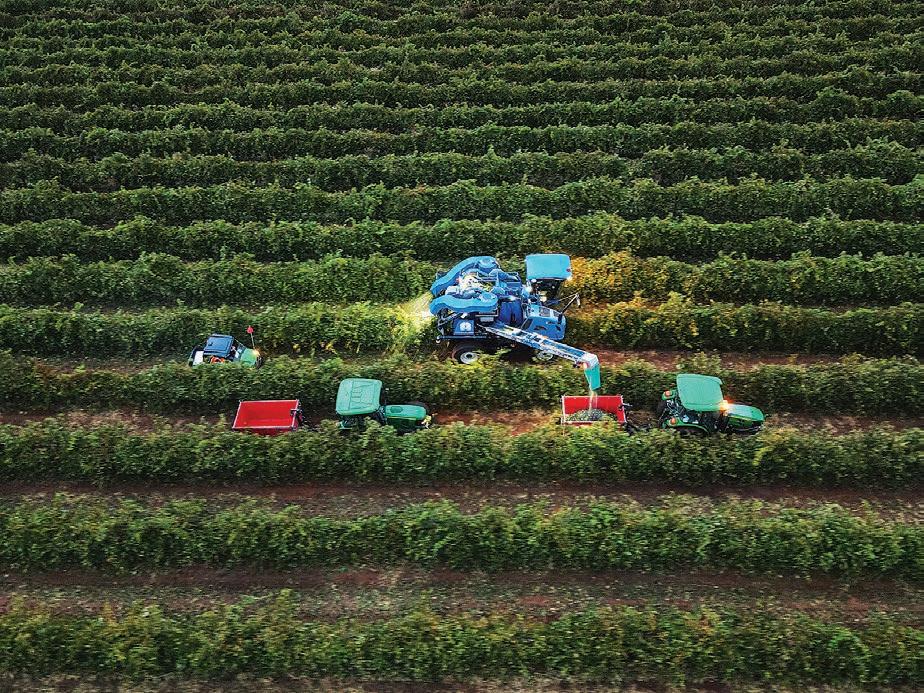
The Rescued Spirit Co range sees imperfect fruit not suitable for Australian super-markets being repurposed by Australian Vintage.
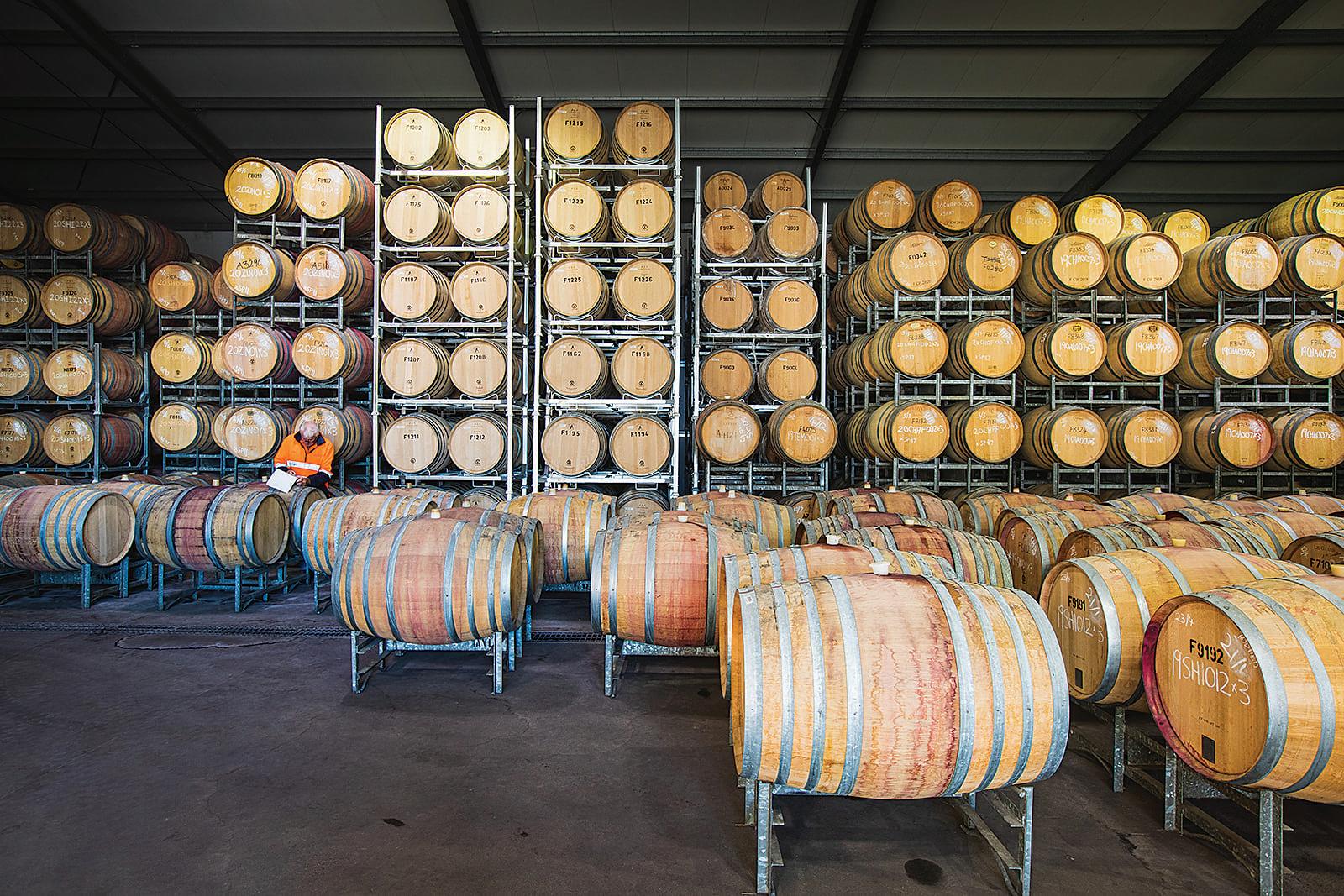
22 Food &Beverage Industry News | November 2022 | www.foodmag.com.au MEET THE MANUFACTURER
“Imperfect fruit that may not have made it into homes of people around the country, but we can utilise it to create a fresh and zesty gin blend that takes a by-product of our biggest selling line and also utilising local fruit to create something new.”
AVL Wines has vineyards across Australia’s best wine regions including the Barossa.
The company has also begun to enter the low and no-alcohol sector.
Among the brands under the AVL banner are McGuigan, Tempus Two, and Barossa Vallley.
Investment in quality machinery ensures the best possible product for AVL Wines.
“This is the first line of spirits under that brand which is exciting because it brings this ESG strategy to life and delivers on a number of those pillars,” said Nash.
The idea came about when Australian Vintage realised it had a by-product from the no and low alcohol production process which was perfectly suited to spirits, being both innovative and circular.
“We create the no and low alcohol wine, spin off the alcohol and that grape spirit is distilled with local rescued citrus fruits from the Mildura region,” said Nash.
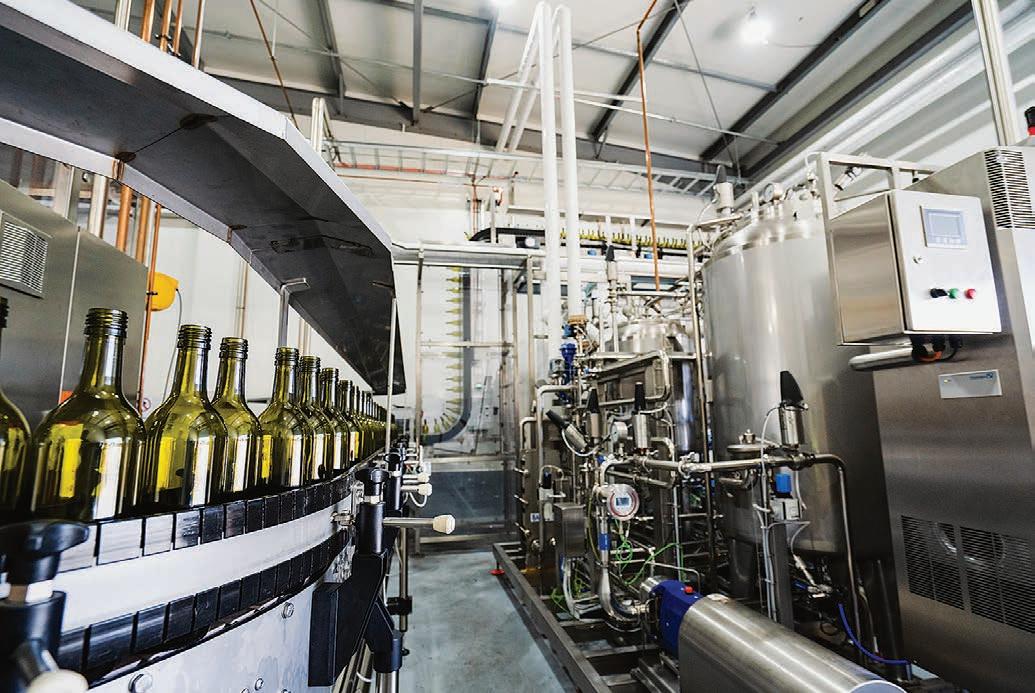

“Using imperfect fruit that may not have made it into homes of people around the country, we can create a fresh and zesty gin blend that takes a by-product of our biggest selling line and also utilises local fruit to create something new.”
Nash also sang the praises of the innovation team
“The team have been thinking quite laterally, not only about our core product but expanding into other realms to deliver on something that serves consumer demand and gives us something new to talk about with retailers and the market,” she said.
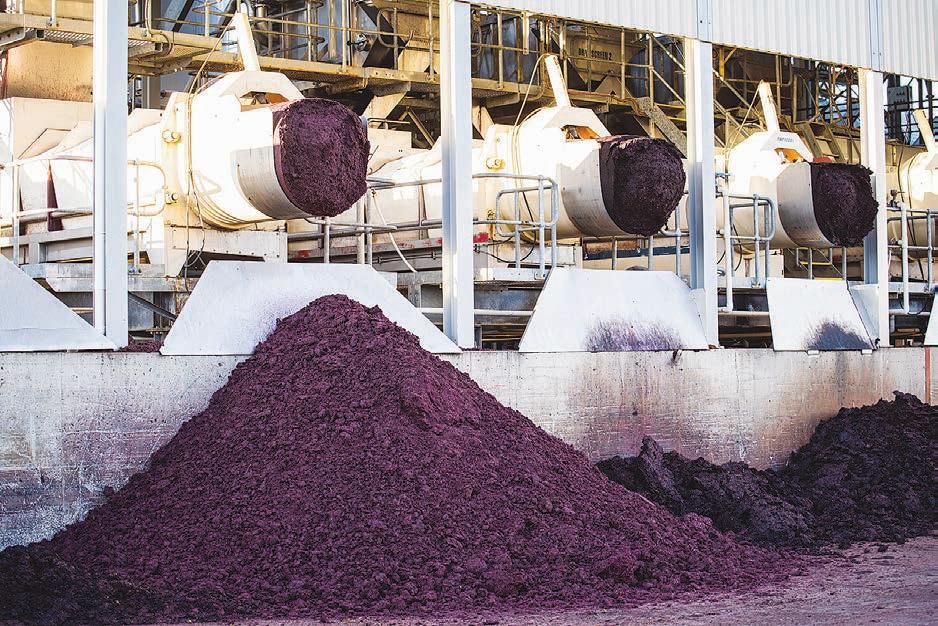
The product diversification is a big step for Australian Vintage and signals the company’s commitment to being
more sustainable in its production processes.
“This is a signal of our transition from an established wine company into one that exists for the future,” said Nash.
Australian Vintage chief executive, Craig Garvin, said the ESG journey is an important one for the company.
“Sustainability is paramount to our success in the futures,” he said.
“It’s a critical issue but also one of the biggest opportunities of our time. It’s more than a social license, it’s a value creator and a key driver for innovation.
“Consumers want to support brands and businesses that put people and planet first and we’re seeing this in the
purchasing decision of our customers.”
The first focus area of the company’s ESG framework is centred around net zero targets and Nash said the team at Australian Vintage has set out some bold goals moving forward.
“We’ve taken this global best practice around balancing environmental and social impact,”
www.foodmag.com.au | November 2022 | Food &Beverage Industry News 23 MEET THE MANUFACTURER
Product diversification is a big step for AVL Wines and signals a commitment to meeting consumer demand.
Having facilities across multiple wine regions ensures variety of product.
said Nash.
“Alongside our financial performance, and from an environmental perspective, the number one issue is around climate change and what business can do to take responsibility for our contribution to that.
“Over the past two years we have been doing a very deep assessment of our carbon emissions to find out exactly what is the footprint of our global organisation.”
From a base year of 2021 Australian Vintage has set its net zero target date for 2040.
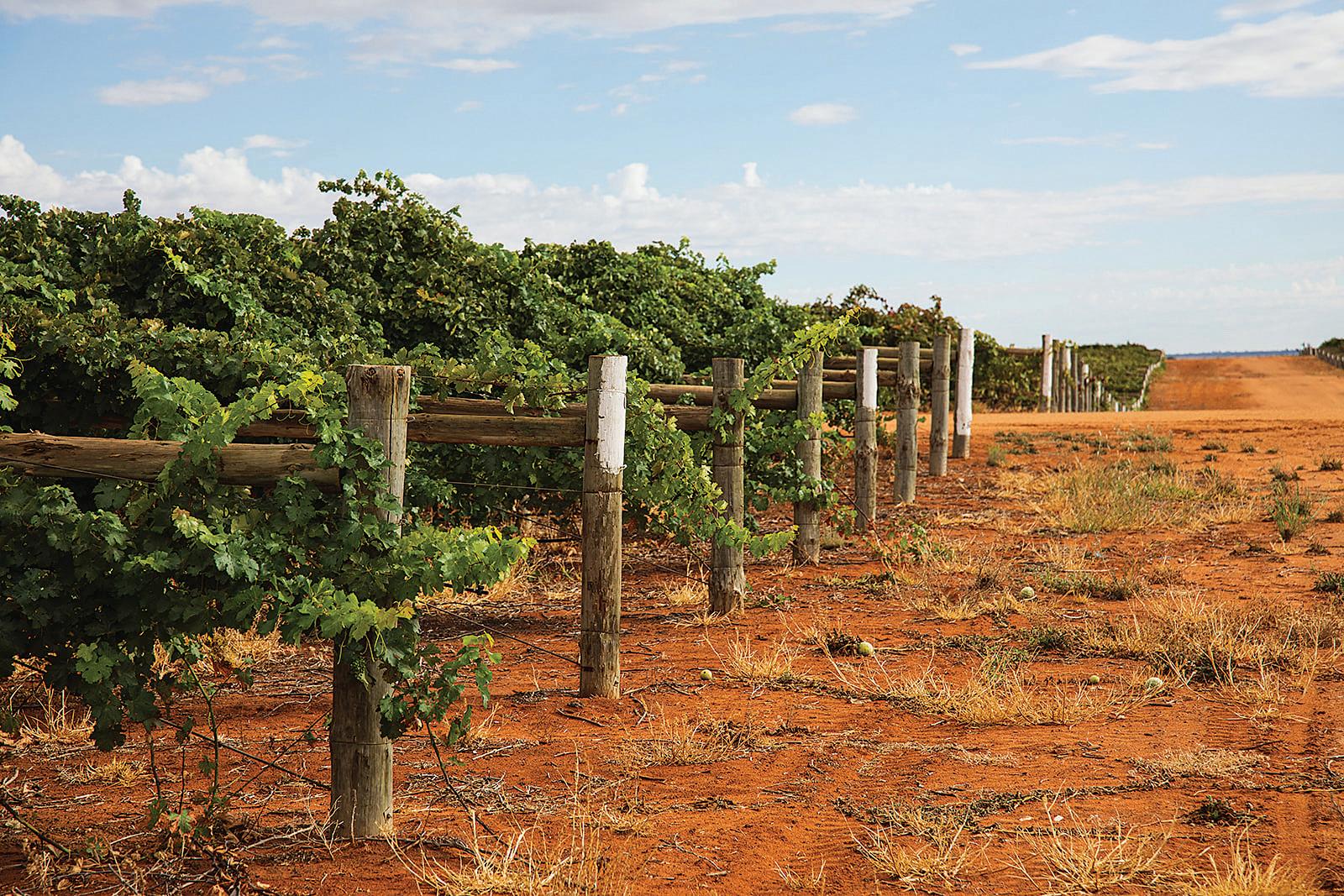
“That is ten years ahead of the UN 2050 deadline,” said Nash.
“We are really proud of the way we have framed our targets using the best practice climate science available now.”
is encompassing scopes one, two, and three for emissions across our entire supply chain.”
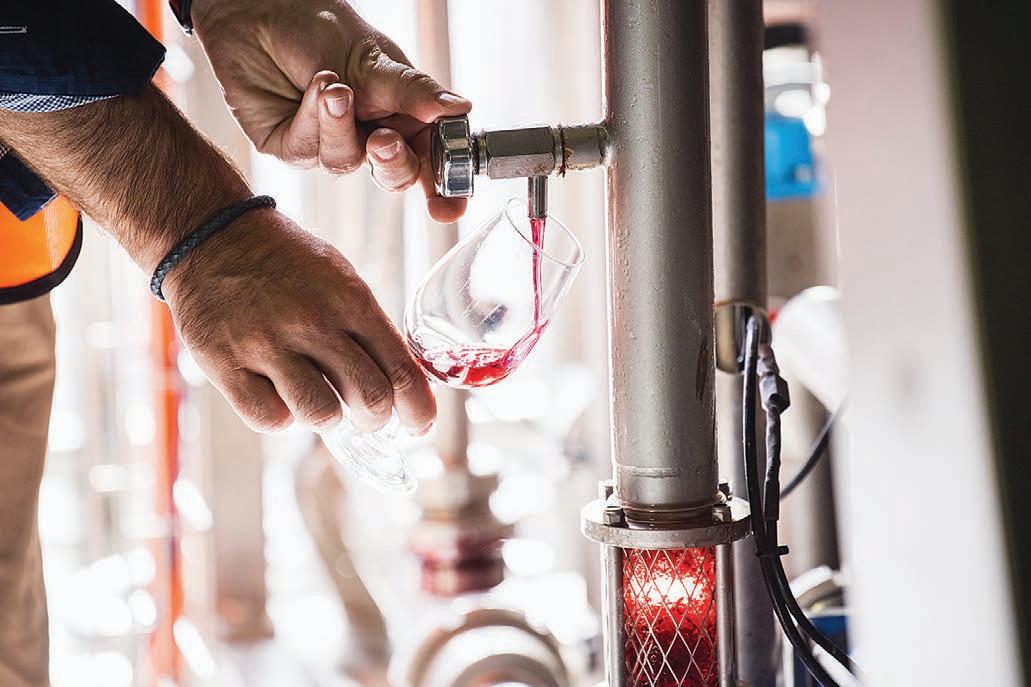
procurement strategy and how we work with partners and select like-minded business to transport our wine across the world or provide dry goods for our packaging and other materials that make up the bulk of our emissions profile.”
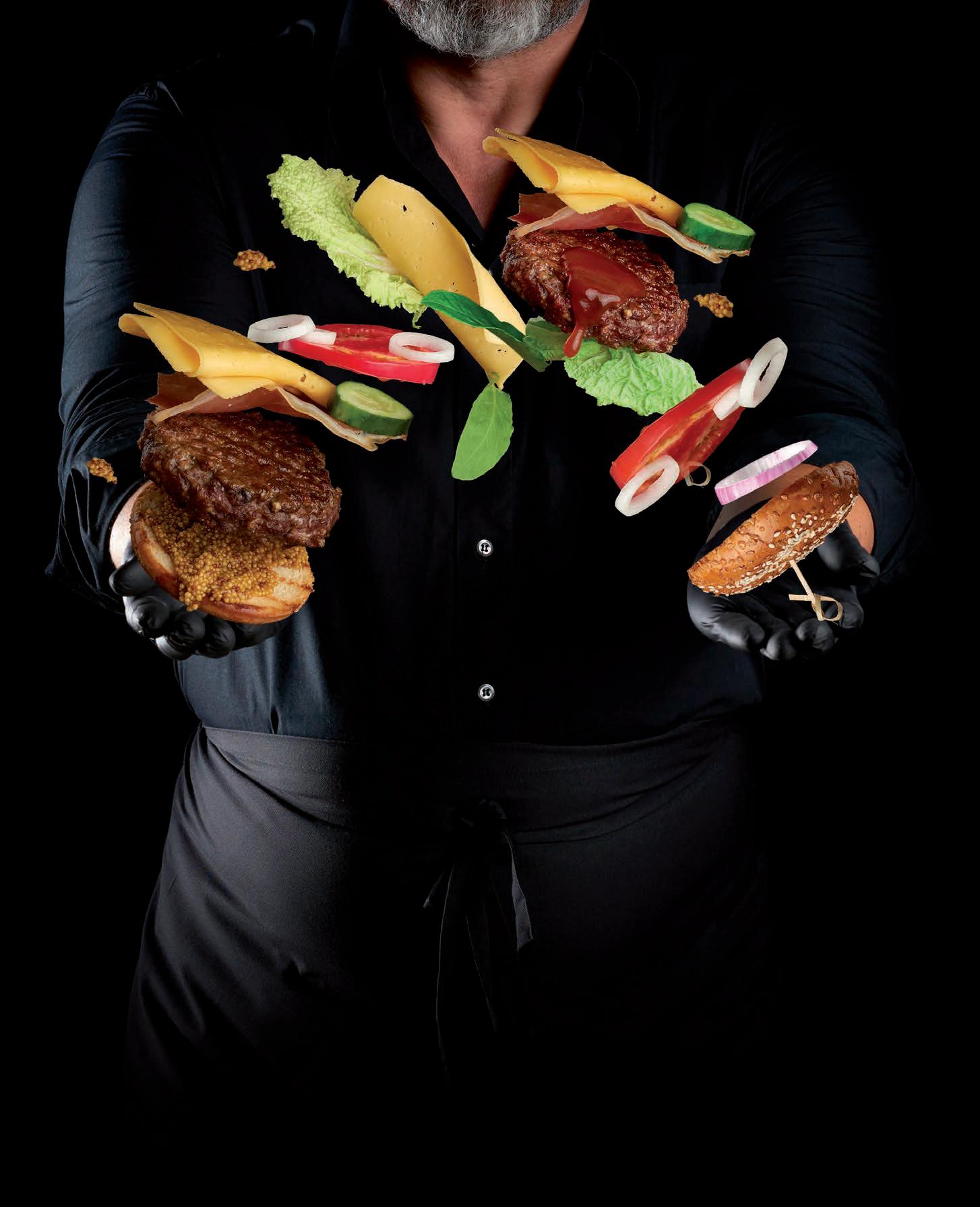
net zero target goal in mind.
2040.
“This is the kind of target that will impact our entire procurement strategy and how we work with partners and select like-minded business for things like transporting our wine across the world or providing dry goods for our packaging and other materials that make up the bulk of our emissions profile,” said Nash.
Nash also commended the entire team at Australian Vintage for the dedication and commitment being shown when it came to setting audacious new sustainability goals.
“Our team has embraced these ambitious targets because it helps us build a stronger framework for decision making around the future of the business,” she said.
“It’s not to say that everything we build follows the same model, but this consid-eration goes into every project moving forward to ensure we’re serving our com-munity alongside our footprint.”
Garvin also reiterated the future of Australian Vintage.
“We are on a journey, with an ambition to be net positive in everything we do,” he said. F
MEET THE MANUFACTURER
“Our targets are validated by the science-based target initiative and within that assessment criteria we not only have to set our longterm targets but a shortterm target to make sure we are on track to meet that.”
The company
has set new sustainability targets to meet net-zero by
AVL Wines has also embraced ambitious sustainability targets.


1300 007 224 | info@pbbg.com.au | paulbrady.com.au
We build food facilities from end-to-end and deal with everything in between.
Automate valve controls in an uncomplicated and cost-optimised way
To meet market requirements and take advantage of the opportunities offered by digitalisation, machines and systems in hygienic environments and the need for automation is ever-increasing the standards for food and beverage manufacturers
Anyone who develops, produces, and installs machines for the food industry, will therefore need forward-thinking automation concepts that help keep manufacturing costs under control whilst still providing optimal hygienic standards and meeting connectivity requirements.
“Bürkert provide their customers with the most objective advice we can and offer, the most neutral solution possible in which we reduce everything to a minimum – leaving out the things they don’t need: complexity, risk and engineering effort,” said James Emerson, national food and beverage manager for Bürkert.
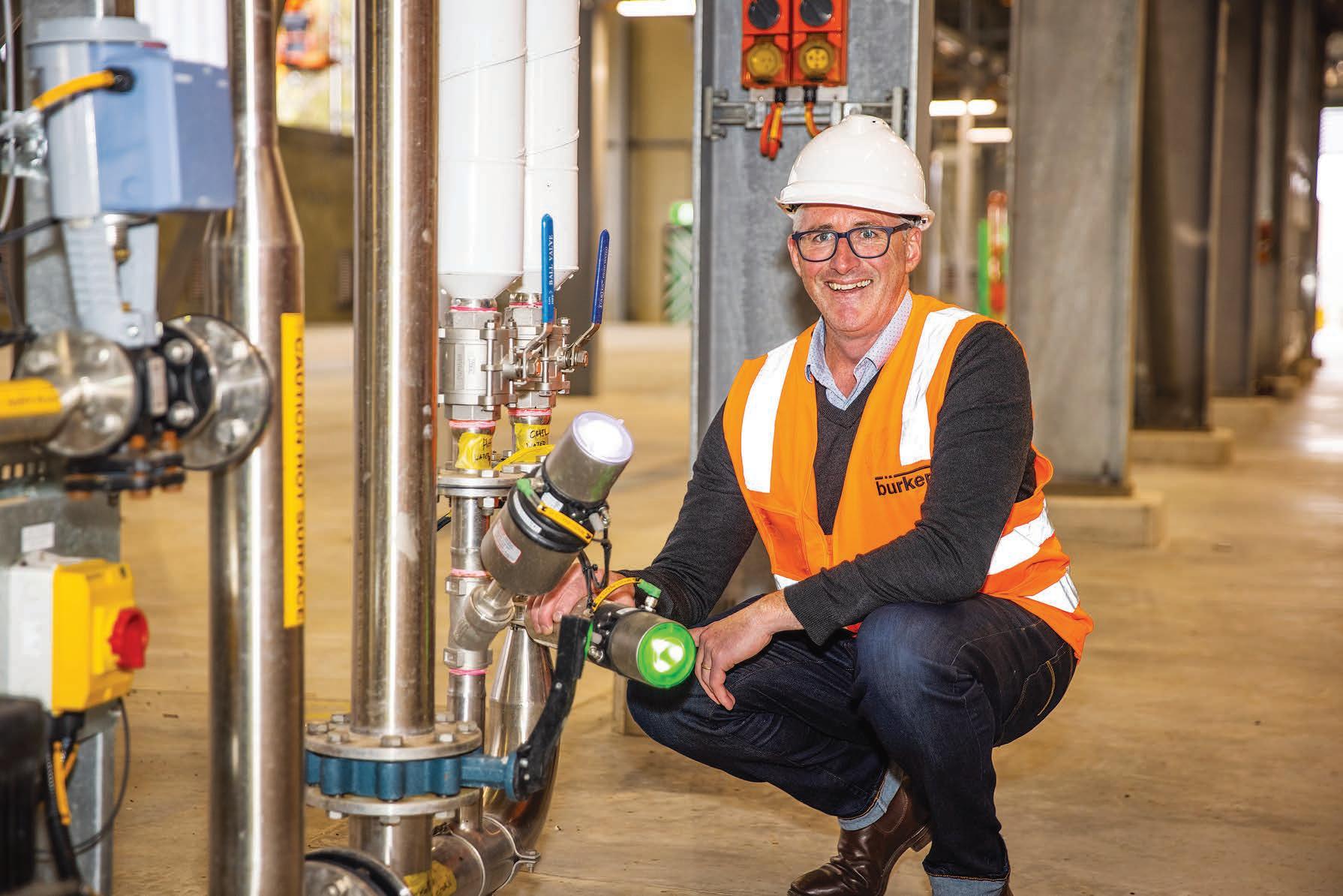
“This allows us then to support the food and beverage industry with intelligent, space-saving components and systems that can be quickly integrated,
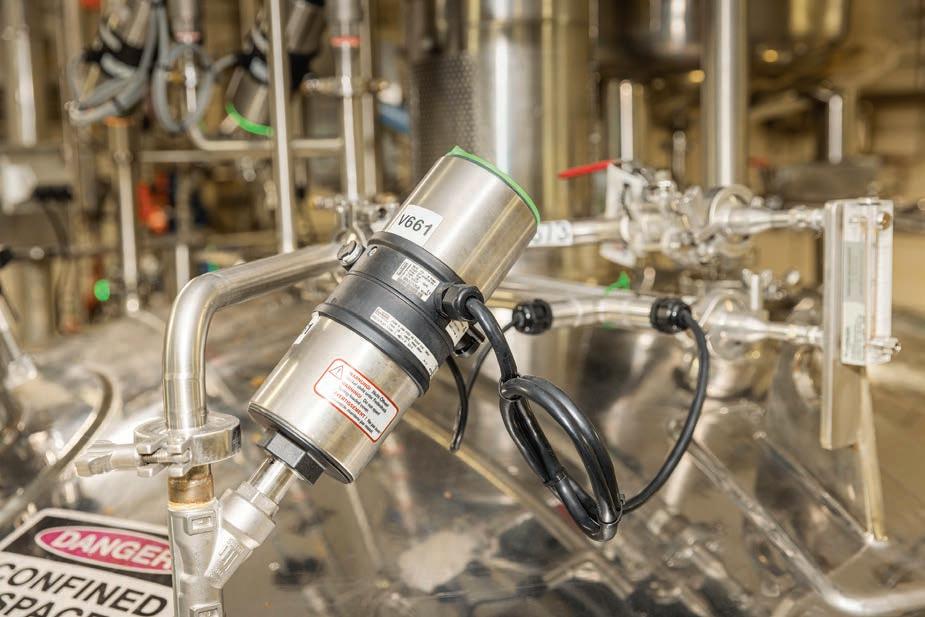
scalable for changes in demand and intelligently robust for non-stop productivity.”
Digitalisation is a great opportunity to make machines and plants safer and more maintainable.
Automation does not have to be complicated. Solutions provided with simple wiring and tubing, minimal space requirements for cables, flexible digital networking and quick start-up are available and cost effective in migrating and updating sites to meet current standards and improve efficiency.
“What is most important to our customers is ‘reduced down-time’ where tens of thousands of dollars are wasted every minute,” said Emerson.
“Transparency provided through digitalised and networked systems, such as control heads on valves, gives
operators the opportunity to have programmed maintenance mapping throughout their plant, direct feedback from each valve in the field through diagnostics and overall cost savings for better bottom line results.
“That’s how digitalisation is making a big positive impact with those who are embracing transformation.”
Challenges with traditional concepts
Discrete wiring leads to a lot of effort. The challenges become visible using the example of a filling machine for food or beverage products: Various drives, flow meters, pressure and temperature sensors are required for the process. Each device has a cable connection to a discrete port of an IO module in the control cabinet.
The wiring of the machine takes a lot of time when consumer devices such as sensors or control heads exchange their signals over numerous strands in a cable, which quickly makes the installation confusing.
Tedious, error-prone installation is common with this solution, because to connect a device, it is necessary to correctly connect all 12 strands in the cable.
Cable breaks can easily occur, which are often difficult to find. The potential for errors is high, and troubleshooting is usually extremely time-consuming. This also applies to installation and commissioning in general.
Lots of cables and lots of IO cards also mean: a lot of space is required.
Control cabinets and cable racks must be correspondingly large and require a lot of floor space. Another disadvantage is that because of the large number of cables, sudden changes in voltage can cause crosstalk from one cable to another cable laid in parallel, which disrupts the process and impairs its repeatability.
AUTOMATION 26 Food &Beverage Industry News | November 2022 | www.foodmag.com.au
Burkert provide customers with the most objective advice.
Greater security, less effort through intelligent networking
There is a better way. An intelligent networking solution reduces the number of cables to four, while only one type of IO-Link master serves all devices at the same time. All relevant data is available digitally - and significantly more parameters can be read out than in conventional solutions.
Permanent diagnostics are thus possible to ensure system availability at all times. In addition, an integrated S2 redundancy increases the availability of the system – pure safety.
Since all connectors are replaced with M12 connectors, the process of assembling electrical equipment is very fast, safe, and easy. The switch from analogue to digital devices also eliminates the need for recalibration after a certain period of operation.
Subhead: Control your system decentrally - for more productivity, improved safety and sustainability To ensure that end products are
produced with consistency and highquality, the production plant must precisely control and regulate all media at all times. Fast-switching, intelligent process valves are essential for this.
They are part of an overall concept designed and implemented as part of an objective consultation for a customised solution, just for your plant.
This results in individually planned decentralised automation solutions that ensure that the infrastructure and valve control of your systems do exactly what they are supposed to do and can be continuously monitored using numerous parameters.
How can this be achieved?
More productive thanks to intelligent control heads from Bürkert.
Decentralised automation with Bürkert means: Locally controlled process valves regulate the function of your system. The intelligence is in the control heads - a concept with many advantages. The control head
Type 8681 can also be used universally, so that process valves from different manufacturers can be easily automated with this solution.
When is decentralised automation right for you?
Consider if you need clear, flexible pneumatic control across your production facility. Would you find value in transparent processes and fast commissioning?
Could real-time, on-the-spot information for critical processes improve safety and maintenance downtime with faster reaction to mid-production faults? If these are core goals for your business, then perhaps this solution is right for you.
“Bürkert is at the forefront of decentralised control top technology with unparalleled connectivity capabilities to modern fieldbus protocols,” said Emerson.

“We’ve been assisting customers for the better part of the last decade in
upgrading, evolving, and improving their plant processes for the better.
“There is a solution for every customer, large or small and we’ve got hands on experience in helping them find the right fit for their individual challenges.”
Bürkert’s partners can take advantage of our cross-sector experience with regard to all automation concepts and fluid handling in hygienic production processes. We offer you comprehensive technical know-how as well as suitable system and product solutions for both customised and standard applications – all paired with solution-oriented consulting.
In working collectively across the food and beverage industry for more than four decades, Bürkert Australia know the challenges faced by the industry and are moving towards more sustainable, efficient solutions to help improve productivity and bottom-line results for our partners. F
www.foodmag.com.au | November 2022 | Food &Beverage Industry News 27
AUTOMATION
Burkert’s partners can take advantage of its cross-sector experience.
Reliable solutions to improve efficiency during production
Having Kobold Instrumentation’s suite of offerings included in its range of products affords JSG Industrial System the ability to offer solutions to every part of the industry. Adam McCleery writes.
The John Sample Group operates in numerous countries across the globe.
The Australian business, JSG Industrial Systems represents Kobold Australia which sells and supports the Kobold portfolio whilst lending expertise and aid across other international subsidiaries, including New Zealand, Indonesia and South Africa. It is therefore in an ideal position to help the food and beverage industry.
Instrumentation plays a critical role in so many applications and processes in food and beverage manufacturing. The companies which create and supply the technology required therefore need to be full abreast of what is going on in the industry.
Kobold’s key sales advantage is the ability to offer a full suite of instrumentation devices unrivalled in many sectors, JSG Industrial Systems is a company which requires
requirements of its clients.
“When we talk about instrumentation, that can be anything from a flow measurement device through to a level switch or a display,” said James Slowgrove, product manager – Flow & Instrumentation at JSG Industrial Systems.
“A lot of manufacturers all focus on one area; flow measurement of water or pressure monitoring in heavy industrial applications, Kobold does all of them.

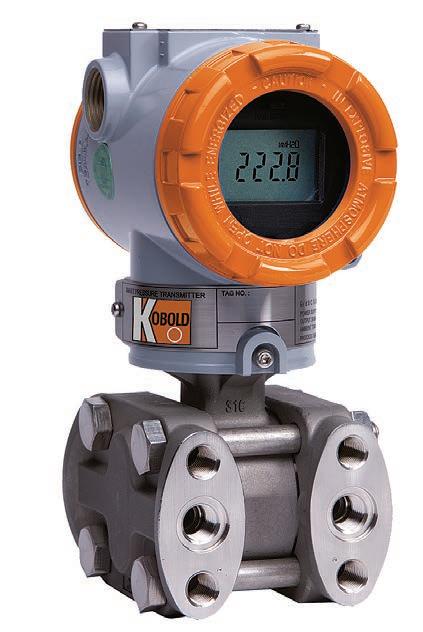
“It’s a real one stop shop for all these different instrumentation devices so their range is almost endless as a result.”
As an example, Slowgrove continued, when a client contacts JSG about instrumentation, JGS’s team provide the required expertise to not just answer any query, but also present a range of other viable, and in some cases, better solutions.
“Case in point, as the technical product manager I might have an inquiry to measure or monitor the flow
of water to a baking process,” he said.
“Another inquiry may be to fill up a silo with grain and we need to find ways to best measure the amount of grain currently being stored. They go hand in hand but at the same time are very different.”
“As a result, Kobold can provide a solution for installation A and installation B with a different range of products.”
And when it comes to plant machinery Kobold offers a wide range of possible solutions.
“If I were to look at a manufacturing processing facility that makes cordial. If you know your mixture consists of part A of cordial concentrate and part B of water,” said Slowgrove.
“If it’s all automated you will need sensors to ensure you are getting the perfect mix every time to ensure the quality of the product is maintained. If something goes wrong with the line, like running out of water or the temperature goes too high, those devices that alert you are also part of Kobold’s suite of offerings.
Another example Slowgrove gave was in reference to another customer query in 2021.
The client was looking at producing new plastic moulds and were using various renewable plastics in the material makeup.
“They needed to make sure the plastic being pumped into the container was then going to be at the right temperature with the right amount of mixture,” said Slowgrove.
“When you make plastic, you often have three components, your raw material, the catalyst, and you might have a dilution of some sort”.
“In this instance we focused on the plastic line’s raw ingredient and for them to get the correct dosage they needed to make sure the plastic was being heated and maintained at a certain temperature and level.”
Because of this Slowgrove focused immediately on the process when the
Instrumentation plays a critical role in many applications and processes.
product enters the warming chamber, as an added element of instrumentation use.
“What happens down the track, especially after it has been batched out from the storage container. How far away until it reaches the next step? 10 cm? Three metres? Have they thought about what is needed to stop the warming chamber from over-filling,” he added.
“One aspect they didn’t think about was measuring the amount of material in a tank. It wasn’t too long until we started to look at level sensors for that heating chamber, this is a bit of insight into what Kobold can do”.
“It swiftly became about the level sensor and temperature probe at the same time.”
This type of expertise and insight is something JSG prides itself on providing
INSTRUMENTATION 28 Food &Beverage Industry News | November 2022 | www.foodmag.com.au
Kobold’s key sales advantage is its full suite of intrumentation devices.
the industry.
“There are times customers will contact JSG for flow measurement devices with a certain technology in mind and we look at the application to assess if it is the best fit for the application,” said Slowgrove.
“If it isn’t then we sit down and speak with the client about why”.
“It might not meet the expectations when it comes to accuracy or hygiene. So, if the customer asked for an oval gear meter and we do some digging we might turn around and ask about pressure loss, hygiene requirements, or we might offer a magnetic flow meter to improve accuracy.”
Because of the wide range of solutions offered by Kobold, through JSG, the company can provide simple and effective solutions which result in efficiency gains and improved quality, among other benefits.
“Depending on what you’re pumping, certain other criteria might need to be met, it might be something as harmless or simple as water but something a bit more dangerous like a caustic solution,” said Slowgrove.
“That’s often used in a lot of cleaning applications, if you are running a manufacturing facility you will have tanks full of dangerous fluids.”
One example Slowgrove cited was a customer that came to JSG wanting to mitigate WHS risks and increase efficiency around the filling and monitoring of fluids in a tank.
At the time, the company had operators manually opening and closing the valves which was resulting in a level of wastage because of the very nature of manual operation in this context.
“If you have an operator manually doing a task, your accuracy will be out and that causes wastage, not to mention if they come into contact with dangerous fluids, there might be WHS risks involved also,” Slowgrove added.
“The solution here was providing them with a flow meter and a controller with specifications for a valve.


“It was a simple and basic solution but the whole purpose was to install a valve next to a flow meter and then have the wiring going to a controller where
you can measure and record.”
The result was allowing the customer to monitor the levels to an exact number.
“Once it has done so it will shut off that valve, so you get perfect, and efficient measurement of that batch,” said Slowgrove.
“For that customer, who was doing mini batches, it is a great example of how we can remove that WHS risk and improve the efficiency and made sure measurements were accurate with minimal wastage.
“That’s where automation comes into it, it is all about removing risk,
improving efficiency, with the least number of parts, and that is what Kobold do.”
Slowgrove added that in terms of meeting certifications, of which the food and beverage industry requires many, is another point of strength for Kobold.
“A large number of our products are engineered specific for a certain application,” he said.
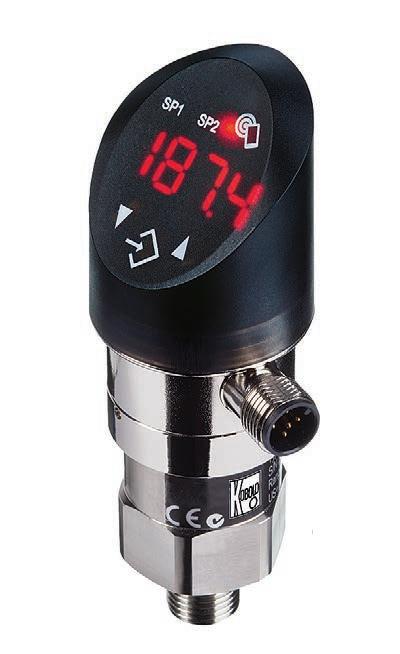
“If you are measuring milk you want to make sure your meter has the tri-clamp fittings for sanitary connections, stainless-steel wetted materials and food grade seals.
“A lot of our magnetic flow meters can be tailor made for specific food applications.”
JSG Industrial Systems always pride themselves on providing engineered solutions with their other key suppliers, and with Kobold Instrumentation products available from Germany, it only further enhances their capability to find every customer a solution. F
Because of the critical role instrumentation plays, the selection of the right devices is paramount.
INSTRUMENTATION www.foodmag.com.au | November 2022 | Food &Beverage Industry News 29
"A lot of manufacturers all focus on one area; flow measurement of water or pressure monitoring in heavy industrial applications, Kobold does all of them. It's a real one stop shop for all these different instrumentation devices so their range is almost endless as a result."
JSG Industrial Systems is the exclusive distributor of Kobold Instrumentation in Australia.
Don’t get caught out when upscaling temperature-controlled environments
When food and beverage manufacturers experience growth and need to upscale operations, a need arises for an approach to scope, design and construction that can mitigate risks. Food & Beverage Industry News reports.
Paul Brady, owner, and founder of Paul Brady Building Group has been in the food facility construction industry for over 25 years and specialises in helping food and beverage manufacturers mitigate the risks of upscaling and meeting greater production yields.
Brady said because of the growth strategy of many of PBBG’s clients, being able to help them from scratch was critical to limiting turnaround times.
“The companies we generally do work for have grown the business quickly and have an opportunity to
obtain contracts with big suppliers, but they find themselves needing to move into a new facility,” he said.
“By nature of that opportunity, a quick turnaround time is required, which creates a lot of pressure.”
“And if they have moved into an older facility, it won’t have the accreditation specific for that type of manufacturing, so in those cases we sit down and we work from scratch.”
Brady said Paul Brady Building Group mostly specialises in brownfield sites, which is a new fit out within an existing warehouse.
“We need to take many construction, compliance, and food production elements into account but we have had clients buy a warehouse or factory and find that it wasn’t suitable,” he added.
“They might be a meat producer but have bought a facility close to residential properties which creates issues around EPA.”
“We are all about mitigating the risk for our clients and helping them find the right property to grow their business so we talk to them about future growth and how it can be incorporated into today’s design.”
There are so many things to consider when upscaling and lead times can be considerable, so being prepared and planning ahead is critical, especially in food and beverage production.
As highlighted by the seafood supplier case study, PBBG understands the need for high-quality floor finishes and the best in breed building materials, including FM approved insulated panel walls and ceilings.
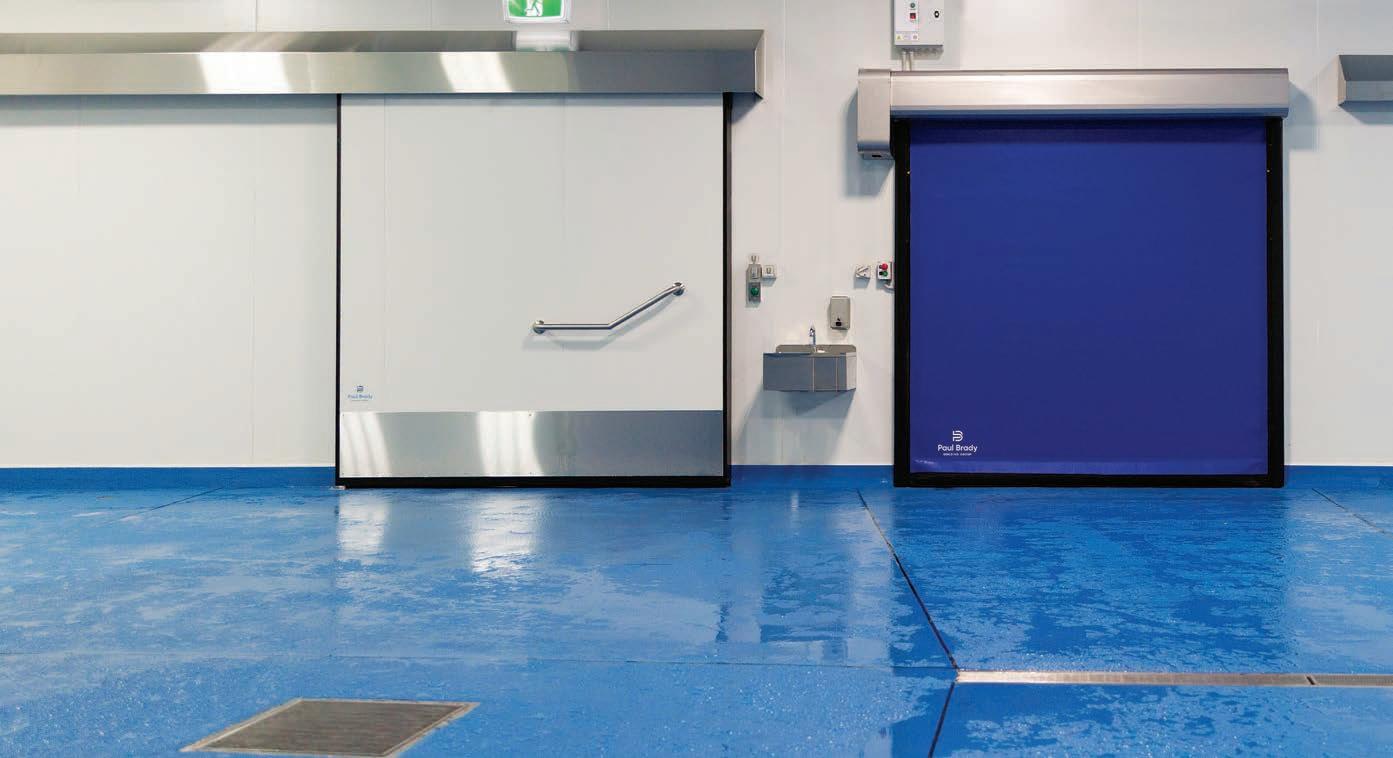
“We custom manufacture our own range of insulated door systems in house. We also have exclusive distributorships for other high quality fixtures and
Paul Brady has been in the food construction industry for over 25 years.
CONSTRUCTION 30 Food &Beverage Industry News | November 2022 | www.foodmag.com.au
Among PBBG specialities is the expert ability to fit out temperature-controlled environments.
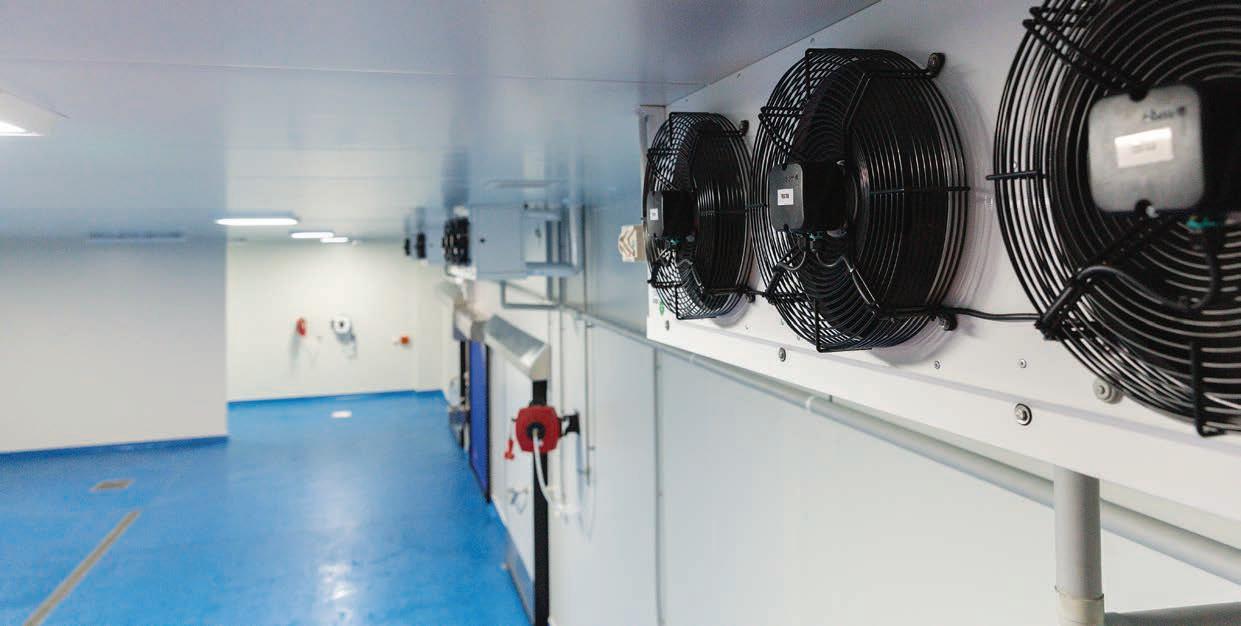

fittings that we import and insist on for our projects,” said Brady.
“We closely look at all aspects of our clients’ operations and we are able to bring into the project products/systems
that we know will work best in that environment for greater performance and longevity.”
The added focus on high-end flooring finishes has also become a
PBBG is able to help clients from the very start, helping to mitigate turnaround times.
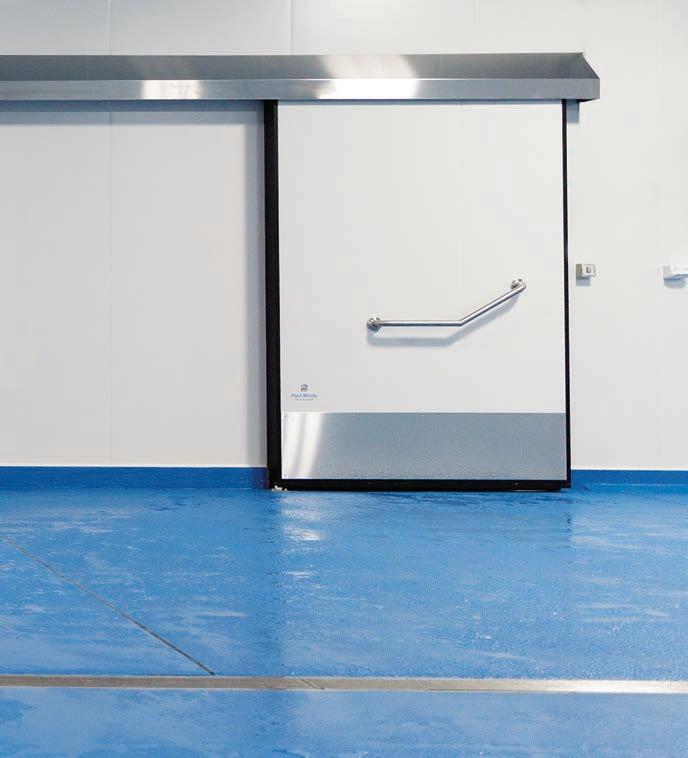
point of pride for PBBG and is one that is of supreme importance to food and beverage manufacturers.
“We see the fall out of poor-quality floor systems and finishes that aren’t up to the demands of the production areas, so we invest in researching and installing hard-wearing floor systems.
“We import some products from Europe that we incorporate into our range.”
But one of the biggest strengths of the company is the capacity to do all the insulated panel installation by its own trained and experienced staff.
“As the principal contractor we bring in quality specialists that complement our higher build quality,” said Brady.
“By identifying with the client early on what they need to be aware of, they are more likely to avoid nasty surprises down the track,” he said. F
CONSTRUCTION www.foodmag.com.au | November 2022 | Food &Beverage Industry News 31
Local solutions cut
and technical service providers for the food and beverage industry, particularly SME’s.
Nathan Wardell, Packserv Australia managing director, said the company started out as a rental and technical service provider before continually diversifying its offerings.
“We began importing, distributing, and reselling other people’s machinery about six years ago and then three years ago we started designing and building our own machinery, so now we are a full-service manufacturer. Which means we can supply complete production lines and turnkey solutions.
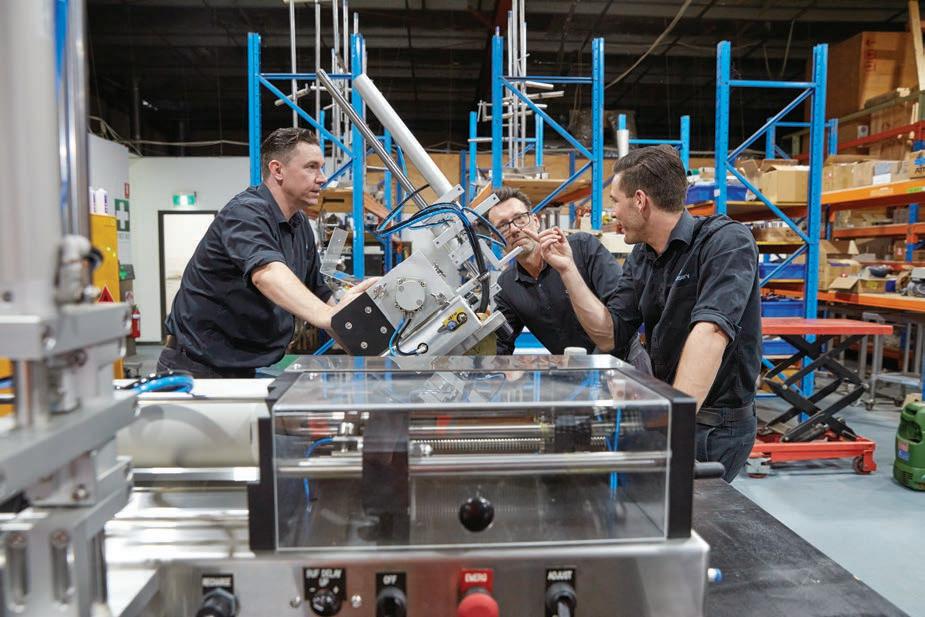

It has been a long journey, we now have in house CAD and CNC capabilities where we can take a client’s problem, draw a solution, and be holding the finished part ready to install in very little time”.
Wardell said one of the key driving factors behind the evolution of Packserv Australia was the notion that if parts can be manufactured locally, then they should be. Not just to cut back on lead times, but making your own parts also allows rapid updates around design, which is a prerequisite for innovation,
the very real and obvious environmental cost of shipping manufactured goods from one side of the world to the other, adopting, or even aspiring to, a carbon neutral model for manufacturing can only ever be disingenuous if we
rely on imported goods. International supply chains that previously appeared so strong were revealed to be more akin to international paper chains, and wet
and machinery that creates the biggest
to keep up with the ever-increasing rate of changes in food and beverage manufacturing processes.
Packserv has several technology
32 Food &Beverage Industry News | November 2022 | PROCESSING
Packserv started as a rental and technical service provider but has continued to diversify its offerings.
Packserv grew into a full-service manufacturer with the ability to supply complete production lines.
One such partnership is with UTS, where a digital platform is currently being developed that will sit beneath the machinery with massive potential for efficiency and reliability gains. Another partnership with the University of Sydney’s new Advanced Manufacturing Hub, where additive manufacturing technology is being utilised to develop parts and components using new materials and 3D printing technology.
“The technology must evolve with the materials. That is something we are conscious of and from time to time we do have to engineer machinery to suit special packaging,” said Wardell.
One of the best ways to get the message out there for companies like
Packserv Australia is with trade shows, which made a successful comeback this year.
“We exhibited at Auspack earlier in the year, our first big trade show. It was just terrific being face to face, in amongst the industry,” said Wardell.
“We had a lot of machinery on the stand and the result we got was amazing. I just could not believe the number of businesses looking for new machinery for their production facilities. The level of interest in our product range was twice our annual turnover, just from that one trade show”.
Future proofing is another area of focus for Packserv Australia, as it is
for the industry, Ken Seddon, chief operating officer explains, “you only have to look at how far the industry has come in recent decades to see the value of future proofing. If you go back to the late 90s and even the 80s a company would design or develop a product and take it to an overseas manufacturer and the machine built to suit that packaging and product,”.
“But if you wanted to make a change to any aspect of the process you had to send the equipment to be re-engineered by the manufacturer.
“I think the marketplace is moving so quickly now and manufacturers don’t really have the luxury of waiting six months for any amendments to be carried out.”
When a client sees an opportunity in the marketplace, they are usually looking to capitalise as quickly as possible, especially in the competitive SME space where Packserv operates.
“That’s the space that we play in, customers can call us with a requirement and often, because we have stock inhouse, we can have machinery on-site the same day,” said Wardell.
“We also focus on versatility and adaptability so that when you do change from one type of packaging to another type you don’t have to reengineer everything or wait months for parts.”
Wardell said the company takes great pride in being an Australian manufacturer and with it comes the advantage of being able to engineer solutions in house which over the
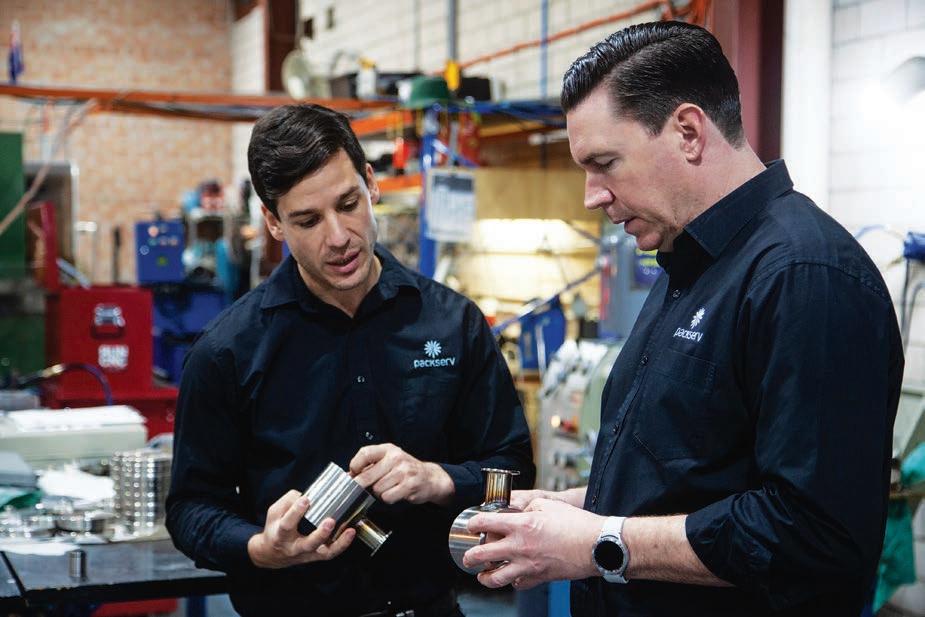
course of the last 16 years has helped the company develop a huge suite of offerings on top of its ability to provide tailor made solutions.
“It wasn’t an easy process to get to this point. We’ve had time to perfect the process and we’ve had the time to become established.”
The technical support Packserv Australia provides its clients is another jewel in an already impressive crown.
“Due to the sheer number of products in our suite, around 250 different pieces of machinery, that cross over pneumatics, electronics, hydraulics and mechanical, it can take up to 12 to 24 months to get a new technician trained and up to speed to be able to carry out the required works”.
Packserv also make the time to train the client’s operational team members to get them up to speed which also cuts on-costs significantly.
“We can put the technology into any SME manufacturing space and with some basic training the on site operators are able to operate, strip down, wash, and put the machine back together again,” said Wardell.
Cutting lead times is clearly just a small part of the overall picture. As successive Australian governments allowed a once vibrant manufacturing industry to dissolve overseas there are huge imperatives to drive it back to our shores and Packserv’s latest endeavours are, to say the least, forward looking.
At a recent visit to the Packserv Marrickville factory, the Minister for Industry and Science, Ed Husic, saw the unveiling of the steps being taken to gather data to be used as a framework for the implementation of AI technology. This will be harnessed to enable, amongst other things, predictive servicing requirements for the machines they make from scratch, in Australia.
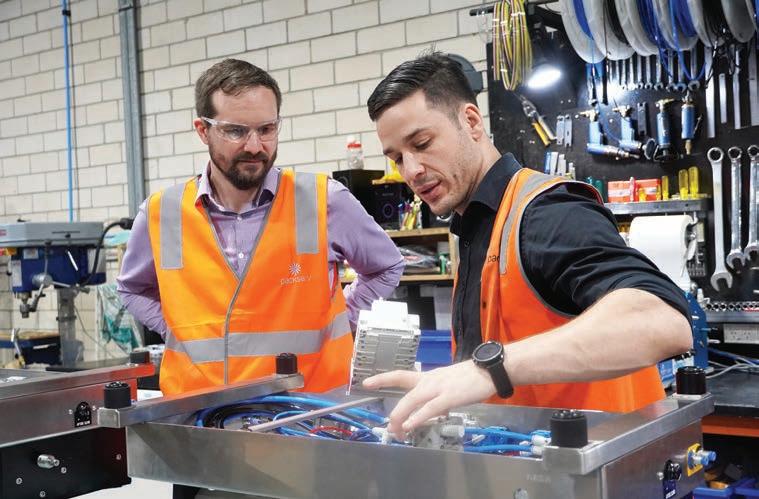
Wardell explained further, “the visit left a positive impression on the Minister who, later the same day, in a speech he made to The Australian Institute, stated, “It’s not just a technology for big business (AI), Packserv, who’ve teamed up with UTS to use AI to reimagine the way they scale up their production lines, crucial to their longer-term viability, staving off competition”.
UTS Centre for Advanced Manufacturing’s Dr Nick Bennett explained, “Packserv have identified that AI can play an important role in their next generation of products and crucially that this is not just a technology for large, multi-nationals”. F
www.foodmag.com.au | November 2022 | Food &Beverage Industry News 33 PROCESSING
Future proofing is another key area of focus for the experts at Packserv.
On top of full production lines, Packserv also provides turnkey solutions.
Goulburn Valley growers benefit from quality irrigation supply
t the heart of Australia’s ‘food bowl,’ Shepparton is home to some of the country’s highest yielding fruit orchards. The nutrient-rich soil of the Goulburn River, along with the area’s climate, offer ideal growing conditions for peaches, cherries, pears, grapes, and apples. According to Stephan Panczel, Melbourne area
at Advanced
Industrial Products (AIP), irrigation and fluid transfer play a major role in keeping the food production industry ticking.
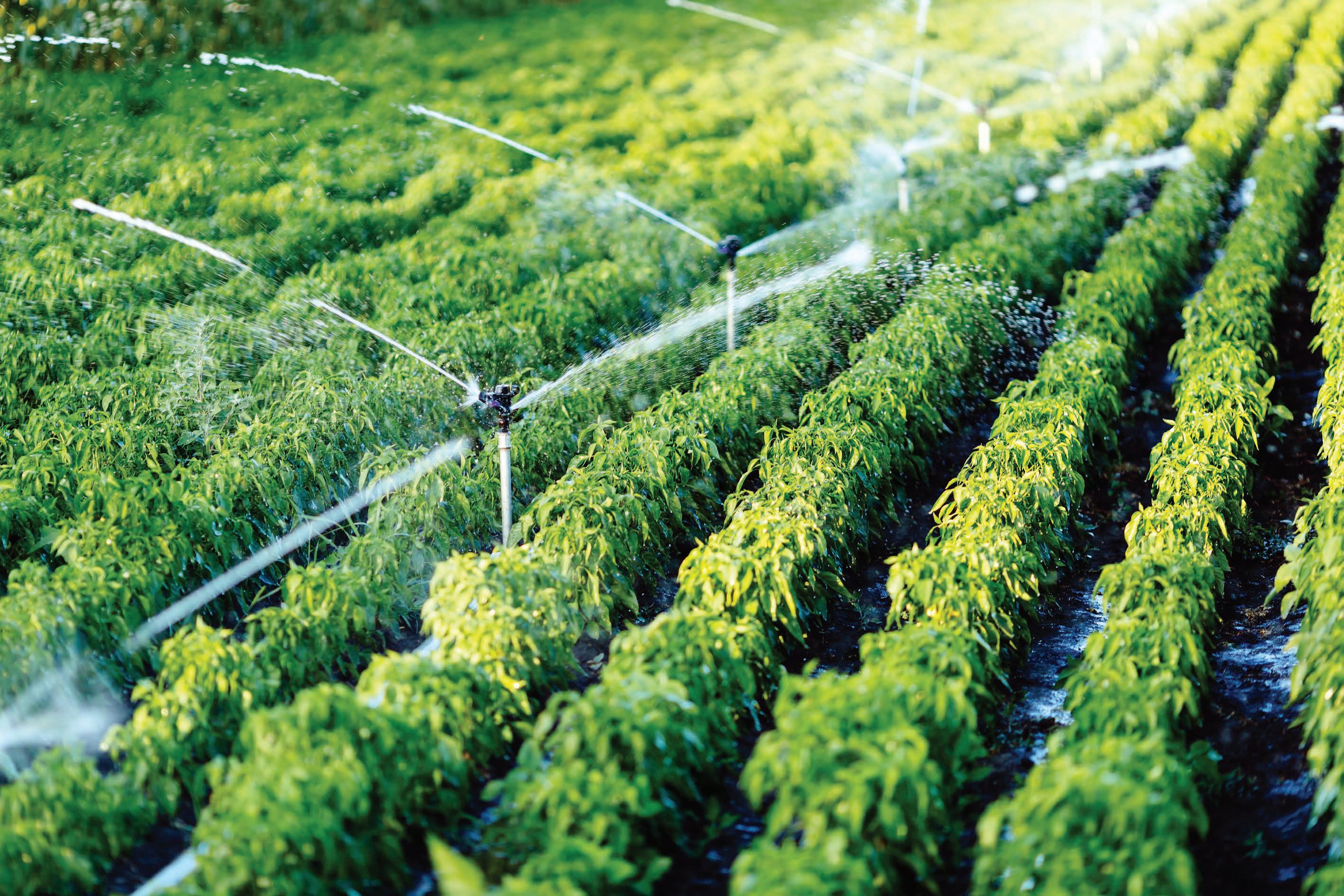
“After working with AIP for about fourteen years, I have seen how crucial a robust irrigation system can be for Australian fruit growers,” he says. “Matching together the right pump, hose, pipe, and fittings will ensure that
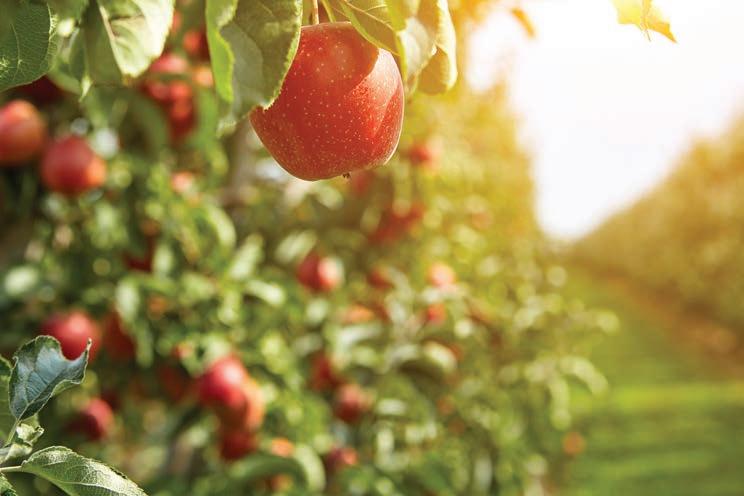
IRRIGATION
manager
Stephan Panczel, Melbourne area manager at Advanced Industrial Products, has seen first hand the importance of robust irrigation systems are for Australian growers. Food & Beverage Industry News reports.
Irrigation and fluid transfer are critical for food production.
the area gets adequate water supply, via an assembly that is designed to last.”
Recently, Stephan has been working alongside a local irrigation and pump supply business to service the region’s broader agricultural market. Offering product, installation and repairs, the customer has benefitted from AIP’s diverse catalogue and collaborative approach to ensuring the best outcome for end-users.
“They source a wide range of equipment from AIP, which is then supplied to several agricultural segments, including the many fruit orchards across Greater Shepparton,” Stephan explains. “Over a productive and longstanding relationship, we have developed an understanding of the business’ needs, and work closely with them to ensure they not only get the best product, but service as well.”
Stocking trusted brands like Powaflex and Wellman, AIP leverages an expert understanding of hose and
pump applications to offer durable and flexible solutions. For orchards, this includes PVC suction and delivery hoses, along with a range of fittings such as valves, nozzles, and reels. The team can also put together rubber hose assemblies, which go directly onto the user without any further modifications required.
and mud while in field service. This requires heavy duty pressure hosing and the correct fittings for pump or air pressure unit, which AIP supplies.
Additionally, Stephan’s local customer is involved in the installation and servicing of more substantial pipe infrastructure. On these types of applications, a burst or damaged
the best quality repair clamps,” he says. “They are about 300mm long, stainless steel with internal rubber lining. If a pipe bursts, it prevents the need to dig up an entire line, simply sealing the section that has been damaged.”
Stephan reflects on the importance of working alongside local business and the food production industry, which accounts for a large portion of the country’s job market and export economy. As rural areas continue recovering from the impacts of Covid-19, he says that fostering close relationships is key to AIP’s ethos of reliability and growth.
In addition to direct transfer of water to the fruit trees, hosing equipment is widely used in washdown procedures for vehicles and machinery.
Whether it’s a truck, bin loader, spraying boom or harvester, large equipment can become covered in dust
pipe can be catastrophic, eventuating in compromised product or costly downtime.
“Many businesses that rely on irrigation networks like to keep emergency solutions on hand, which is why we supply this customer with
“Almost every customer within this area is a small to medium operation, and so we aim to be a one-stop-shop for these types of industrial products,” he resolves. “As part of the Motion Australia group, we have been able to successfully navigate delays on imported product, working with local operations to keep Shepparton on its feet.”

IRRIGATION www.foodmag.com.au | November 2022 | Food&Beverage Industry News 35
F
“After working with AIP for about fourteen years, I have seen how crucial a robust irrigation system can be for Australian fruit growers. Matching together the right pump, hose, pipe, and fittings will ensure that the area gets adequate water supply, via an assembly that is designed to last.”
Advanced Industrial Products stock trusted brands to leverage expert understanding of hose and pump applications.
New energy and line concepts for beer filling
One of the vital issues for any forward-looking brewery is how to save energy throughout the production process, in order to put it on a more sustainable footing.
Steinecker, German experts in processing solutions, developed the Brewnomic to address this exact issue.
This concept developed by the Krones subsidiary enables a brewery to be energy-self-sufficient by smartly using and recovering the residual materials from the brewing and filling processes.
Brewnomic consists of several modules, many of which relate to the brewing process. But systems and lines used in the bottling operation can also contribute to overall sustainability.
The Dynafill, which combines filling and crowning on a single functional unit, fits in neatly here, for a number of reasons which in combination offer a whole series of rewarding benefits.
This new type of filling into a vacuum is the basis for all other spin-offs and advantages.
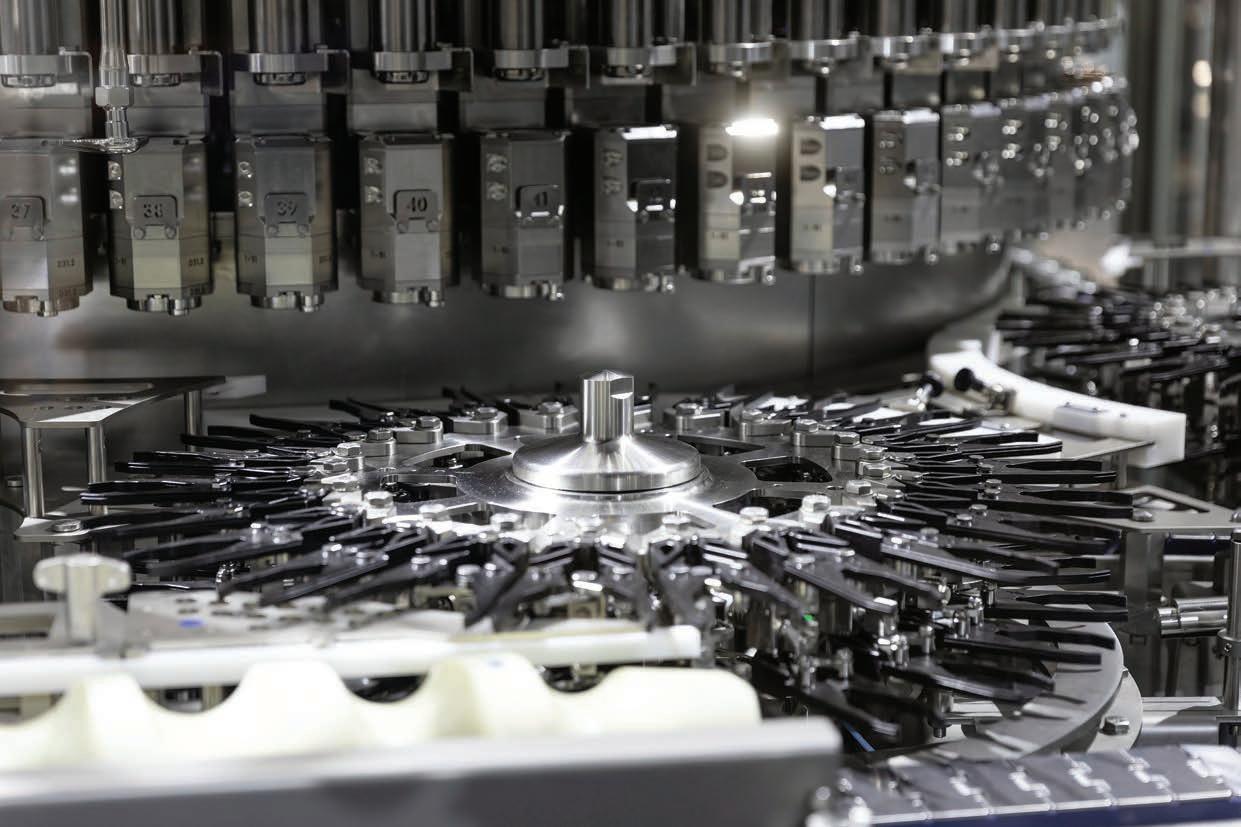
Taking a look at the conventional filling process is well worth the effort because it helps understand the reasons behind the new one. In a conventional filling process, the filling temperature, at around six degrees Celsius, is relatively close to the starting temperature of one degree Celsius, at which most beers are stored. If a brewery were to increase the filling temperature, it would also have to provide for longer treatment times.
As a consequence, conventional fillers would have to be significantly larger for the same output.
Filling into a vacuum, by contrast, which the Dynafill has translated into shopfloor reality, combines a number of advantages: Firstly, the filling process proper is significantly shorter, taking a mere 0.5 seconds. And secondly, filling temperatures of up to 30 degrees Celsius are possible without the need for a larger filler.
Energy savings
So, the smaller footprint is one –admittedly extremely persuasive –benefit. But what advantages does the warm-filling option offer when it comes to upgrading sustainability levels? Quite
a few, as the following examples show:
• L ower water and heat consumption during bottle cleaning: The higher filling temperature shifts the temperature difference between that of the cleaned empty bottle and the filling temperature. This means higher discharge temperatures at the washer are possible, and less energy is consumed in the washing process since the empty bottles do not have to be cooled down so much after washing.
• No warmer required: When the filling temperature is low and the ambient temperature high, a warmer is needed to avoid condensation on the filled bottles. With warm filling in the Dynafill, a warmer can either
SUSTAINABILITY 36 Food &Beverage Industry News | November 2022 | www.foodmag.com.au
The Dynafill combines filling and crowning on a single function unit, making it an ideal solution for breweries looking to save on energy in the production process. Food & Beverage Industry News reports.
The Dynafill can help customers plan entirely new types of machine configurations.
be dispensed with entirely or uses significantly less energy for warming the bottles.
- It is possible to do without a tunnel pasteuriser: Filling and crowning the bottles in a single process step reduces the microbiological risk of contamination in the filled but not yet crowned bottles. A flash pasteuriser in combination with the Dynafill is thus sufficient to ensure an impeccable product quality. Should pasteurisation nevertheless be necessary or desired, significant amounts of energy can be saved here as well because the temperature difference between filling and pasteurisation temperature is substantially smaller, which means less energy is required for pasteurising.
New line concepts conceivable
All of the above factors add up to quite an impressive number of rewarding advantages. However, the principle of warm filling provides much more than “merely” saving valuable energy. Thanks to the Dynafill in combination with a higher filling temperature, customers can for their investment in new kit plan entirely new types of machine configuration – and thus fresh line concepts. They can do this because warmer and tunnel pasteuriser are no longer needed and the Dynafill
takes up significantly less space than a conventional filler plus crowner:
• T he combined machine’s footprint is substantially smaller since transfer sections and a separate crowner are dispensed with.
• I f there is a sudden machine stop, no emptying sections are needed at the conveyors downstream of the filler because only crowned bottles leave the machine.
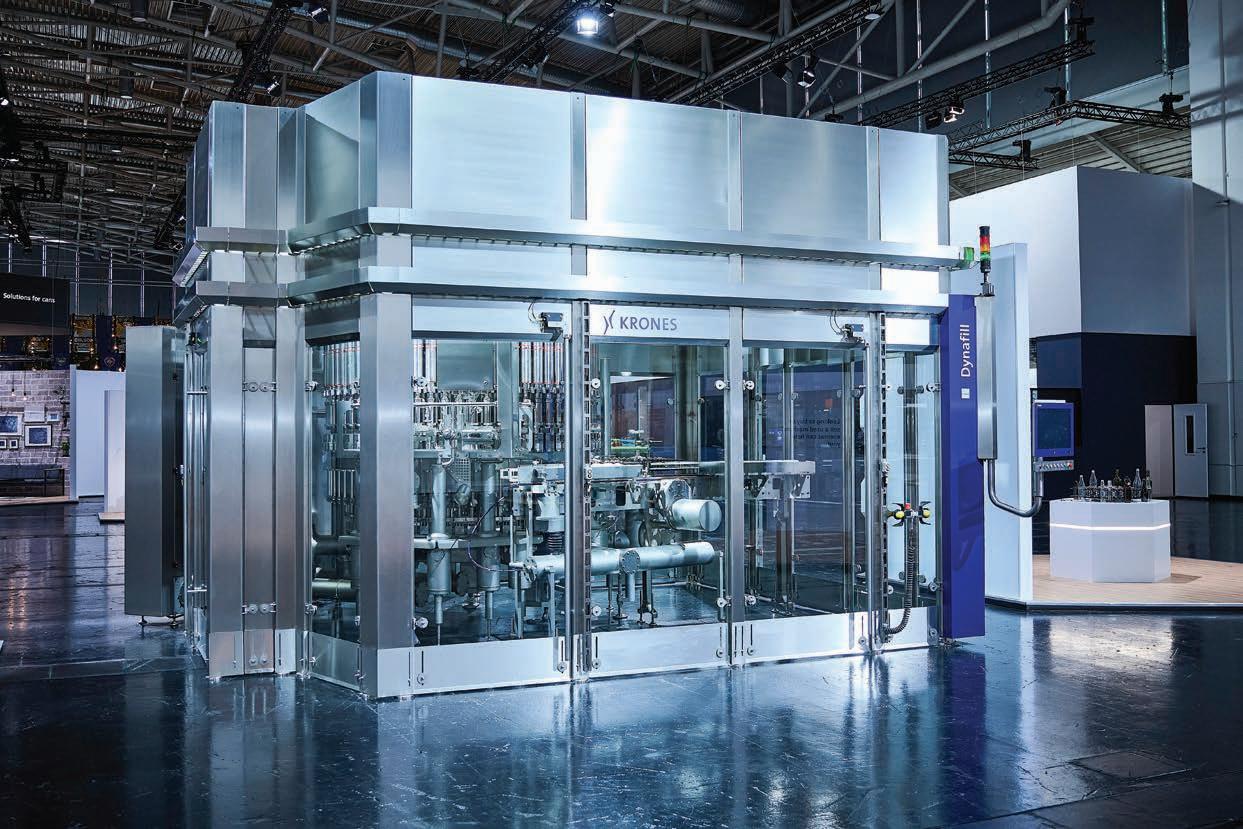
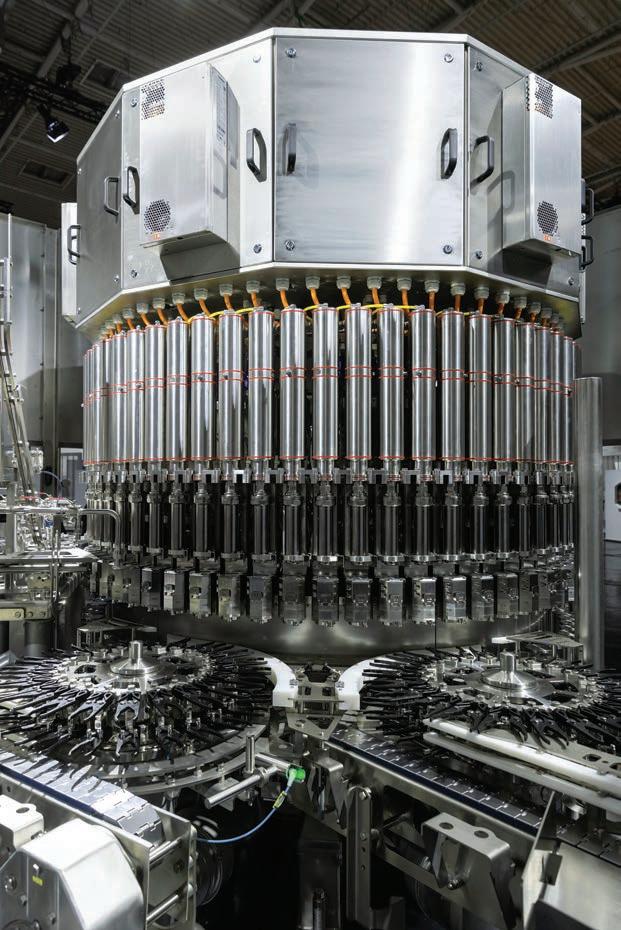
• With the vacuum-filling process, the higher temperature does not affect the filler size or the number of filling valves.
Factoring in all of these spacesaving options opens up a whole new set of design possibilities for greenfield projects. Firstly, the machine’s footprint is significantly smaller, and secondly the same outputs are possible for the agreed reference bottle and for all other container sizes. That means entirely new line and conveyor layouts can be planned.
But any breweries considering the Dynafill as a complement for their existing filling line also benefit from the substantially smaller space requirement. And that’s not all: Thanks to the Dynafill, increases in output that have so far been inconceivable are now possible on the same, small line footprint. To put that in perspective:
A conventional Krones Modulfill
SUSTAINABILITY 37
Customers also benefit from a substantially smaller space requirement for the Dynafill .
Saving energy is of key importance to brewers and Krones can help.
Going green will help SME’s stay in the black
A new ESG report from RSM Australia has concluded that small to medium businesses that fail to prioritise more sustainable practices risk falling behind the rest of the food and beverage industry, especially as government investment and regulatory measures increase.
Small to medium businesses (SMEs) that fail to prioritise sustainability risk losing lucrative contracts from governments and large businesses that are vetting the green credentials of their supply chains, according to a new report examining Australia’s business ‘’greenscape’’.
Pressure on business owners is expected to intensify as governments step up investment and regulatory measures to achieve net zero targets by 2050 and more countries mandate sustainability reporting.
A new report, thinkBig Your guide to sustainability and ESG, by Australian professional services firm RSM Australia has warned that SMEs slow
to move on sustainability risk losing increasingly eco-conscious employees, customers and contracts to more socially and environmentally responsible competitors.
RSM Australia Partner and climate change expert Tim Pittaway said SMEs that had a sustainability roadmap in place showcasing their environmental, social and governance (ESG) goals and progress would have a competitive advantage.
“The combined pressure from consumers and investors and stricter regulations has changed business partnerships. Supply chain management is emerging as a key factor in the sustainable business movement, with larger entities changing the way they

engage with suppliers and distributors,’’ said Pittaway.
“Whether it’s just a few small changes or revolutionising your entire business, those that start now will be well-placed to maintain existing contracts, tender for new ones and be ahead of the impending regulatory curve to manage new requirements that are likely to be placed on businesses in the future.”
RSM Australia Partner and ESG expert Jacob Elkhishin said the challenge for SMEs was to ‘’go green without sliding into the red’’.
“It starts at a strategic level. SMEs need to have a clear understanding of the sustainability opportunities and corresponding risks within their
industry, as well as the expectations of their key external stakeholders such as suppliers, customers, insurers, financiers and investors,’’ Mr Elkhishin said.
“They also need to remain on top of impending government changes and funding incentives that are available to support them in achieving their sustainability goals over the short, medium and long term,’’ he said.
“With strategic flexibility, SMEs are in a strong position to embrace sustainable and ESG-influenced initiatives to take advantage of the opportunities as they continue to evolve and shouldn’t underestimate the value from a competitive advantage perspective, as well as future-proofing
FOOD SAFETY 38 Food &Beverage Industry News | November 2022 | www.foodmag.com.au
business operations over the longerterm.’’
RSM’s thinkBIG report unpacks the drivers behind the global march towards
It also shares the stories of five successful Australian businesses and the practical ways they’ve put sustainability into action:
specialises in honey powder to – promote honey consumption to help save the world’s diminishing bee population
positive impact on carbon, water quality, biodiversity, and the elimination of – plastics
URE Grain – a Queensland company transforming the agricultural supply chain through its digital door-to– door platform which connects grain purchasers with information they need from grain growers, including sustainability metrics ackenzie Marine and Towage – a third-generation harbour towage and pilot boat service in Western Australia that has achieved Climate Active certification.
Elkhishin said RSM’s latest thinkBIG report was intended to provide a range of practical insights that may support SME’s strategic considerations around sustainable opportunities for their business, as well as associated risks.
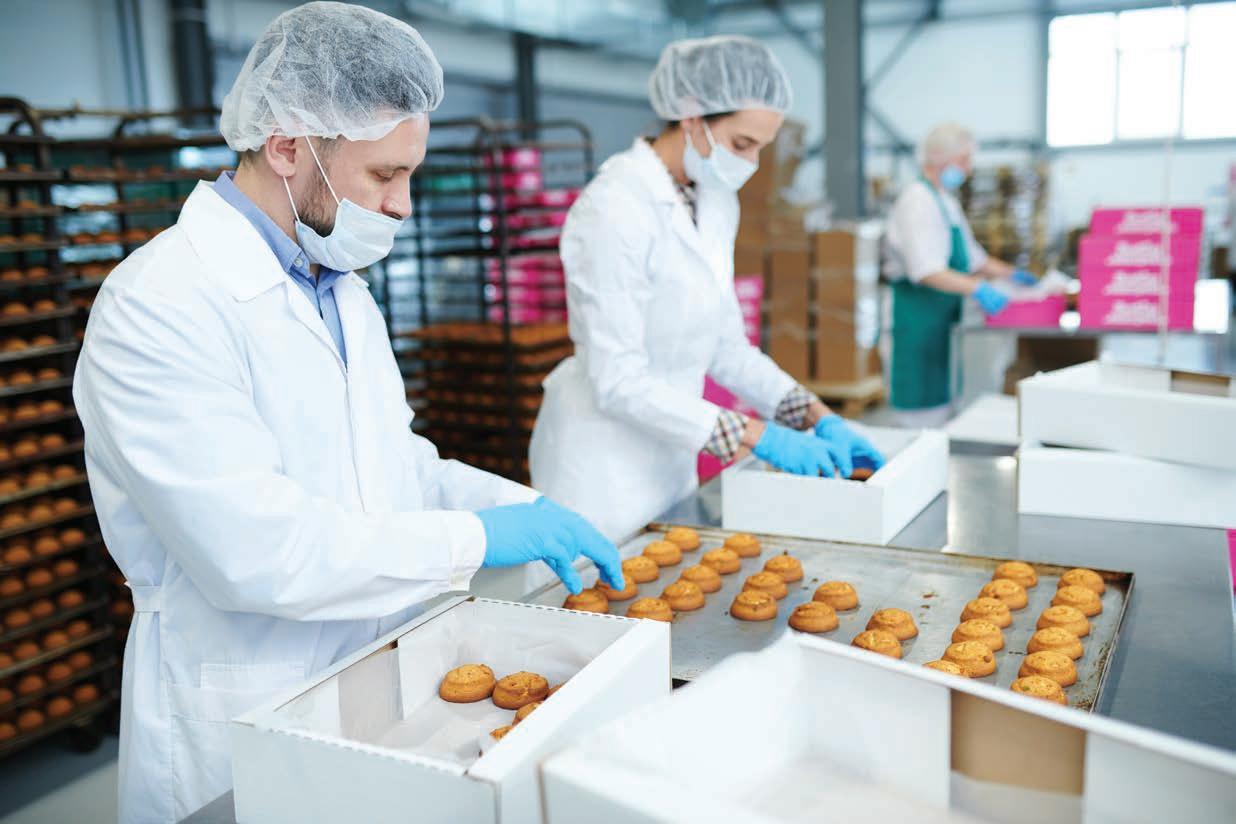

“SMEs don’t have to go through the sustainability journey alone. RSM Australia has a wide range of professionals in different fields linked to sustainability and ESG, and you can leverage our expertise to create a clear path forward,’’ he said. F

FOOD SAFETY www.foodmag.com.au | November 2022 | Food &Beverage Industry News 39
The ESG report encourages SMEs to act on sustainability now.
RSM’s thinkBIG report breaks down the key drivers behind more sustainable practices.
thinkBIG was developed to provide valuable insights to the industry.
Prof. Pienaar recognised with Packaging Hall of Fame Award
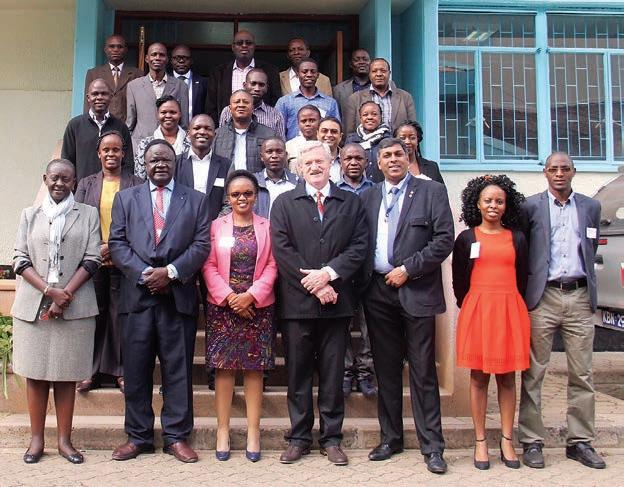
The Australian Institute of Packaging (AIP) are pleased to advise that Prof. Pierre Pienaar FAIP, CPP, Education Director for the Institute and President for the World Packaging Organisation (WPO) has been recognised by the PMMI in the United States with a Packaging & Processing Hall of Fame award.
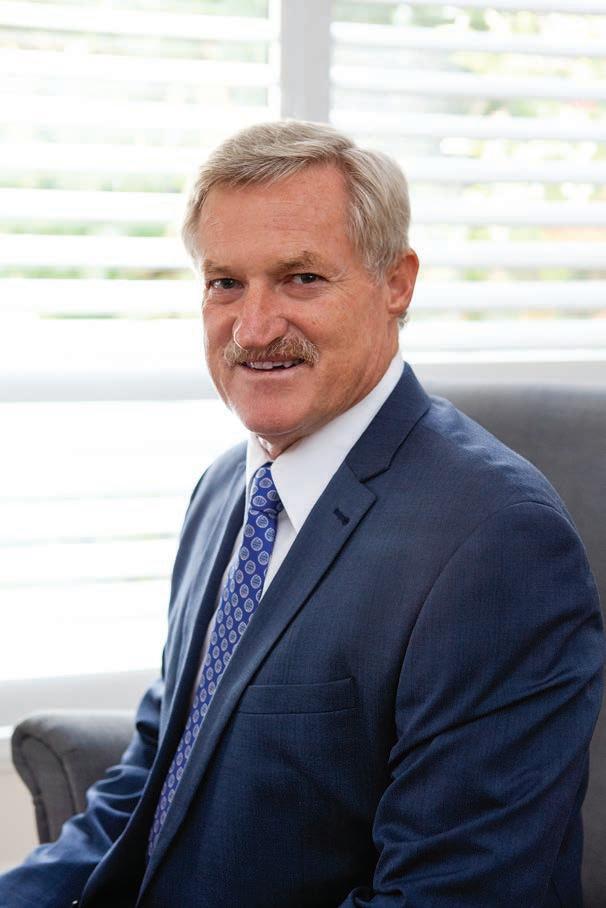
The Packaging & Processing Hall of Fame recognises career packaging and processing professionals for their significant contributions to the industry and education. The honour, which PMMI coordinates, has been awarded since 1971.
Past inductees are packaging leaders who have dedicated themselves to the industry through expanding knowledge and volunteer leadership and have personally advanced the field of packaging.
Pierre Pienaar’s interest in packaging started in 1984 after having studied pharmacy. Soon after joining a large pharmaceutical company, Pierre became concerned about a number of packagingrelated issues in the pharmaceutical world. This combined field has taken him to the far corners of the world, always involving one or other aspects of research in packaging.
Pierre took over from the late Emeritus Prof. Harry Lovell OAM, FAIP as the AIP Education Director 14 years ago and is responsible for the Education Team who manage the Diploma in Packaging Technology, the Certificate in Packaging, the
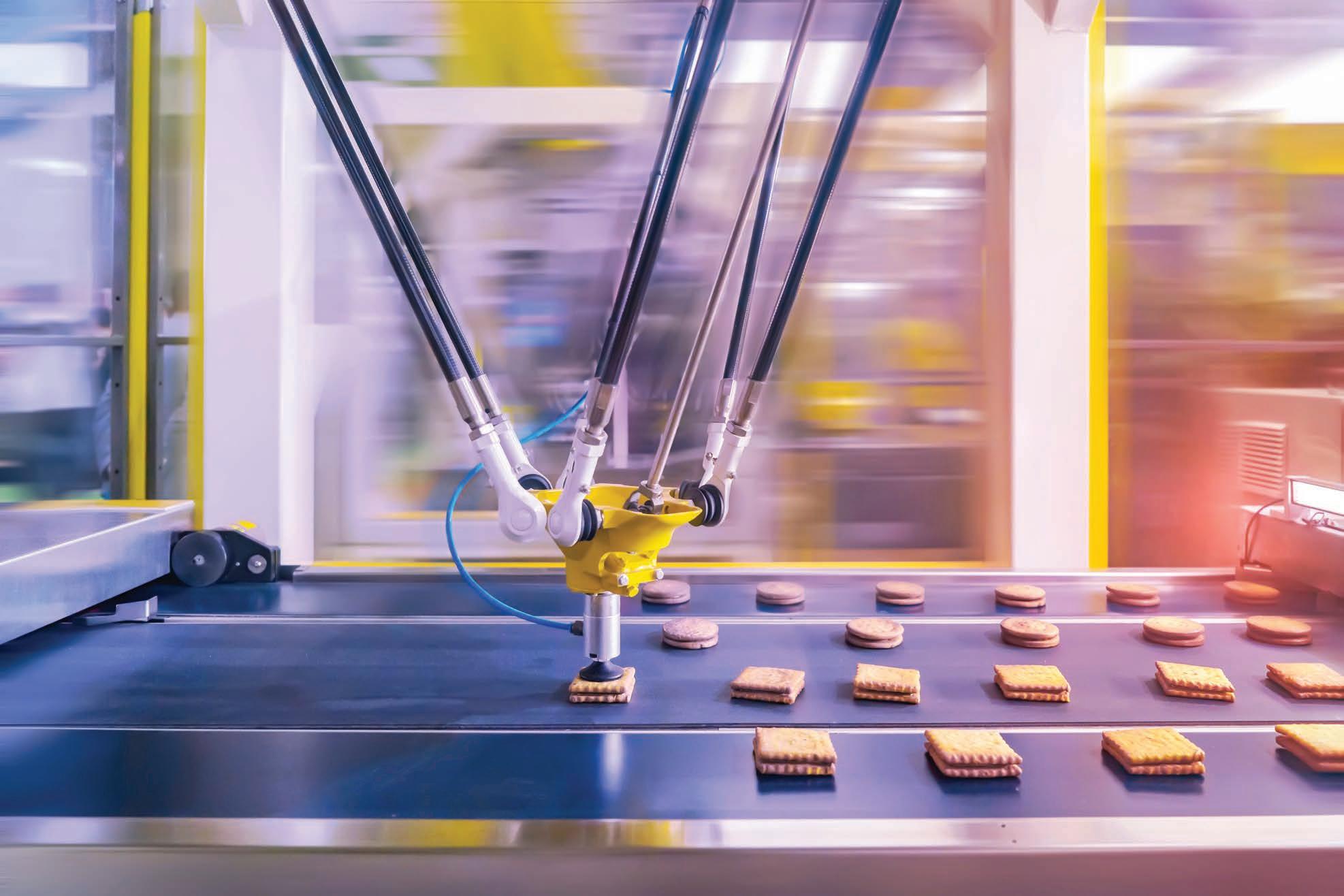
Fundamentals in Packaging Technology, the Certified Packaging Professional program, the Master of Food & Packaging Innovation, the extensive portfolio of training courses and all of the student programs across the multiple Universities that the Institute works with.
Outside of his role with the AIP, Pierre also lectures in the technology and science of packaging at 11 universities and institutions around the world. Pierre has a Master of Science Degree (Packaging Engineering/ Technology) from Brunel University, UK. He also has a Master of Manufacturing and Production Degree from University of Hertfordshire, UK. He is a registered Certified Packaging Professional, a Past President of the AIP and a Founders Award winner in the Australasian Region.
When asked how he felt about being recognised for his significant contributions to the industry and education he said “It is a humbling. But this is also a proud moment to be honoured by one’s international peers. What I value most from this accolade is that it gives me more opportunities to persuade the global packaging industry
that we must become more sustainable, as there is no Plan B,”
prior to assuming my current AIP role, where the late Prof Harry Lovell was so intentional, and education focussed, I soon realised that we shared the same passion about ensuring more were educated in packaging technology. I would say that Harry saw in me someone who would be equally passionate, and so began the friendship and years of understudy prior to 2008 when he resigned from his AIP role, and I was appointed to replace him. It meant an enormous amount to me that I could live out my desire in a role that could make a difference,” Prof. Pienaar said.
“Whatever packaging course you follow, Packaging education is where
40 Food &Beverage Industry News | November 2022 | www.foodmag.com.au
Author Nerida Kelton MAIP, Executive Director – AIP, Vice President – Sustainability & Save Food
Prof. Pienaar also lectures about packaging at 11 universities across the world.


Food & Beverage Industry News is distributed nationally to more than 5000 subscribers, while the website has more than 40,000 unique views every month. It is the food and beverage industry’s one-stop-shop when it comes to the latest products, services and technologies in this space. Visit our website and subscribe to get your print and digital editions in additon to our free daily newsletters today! foodmag.com.au To book contact Stephanie Suzuki now stephanie.suzuki@primecreative.com.au 0422 046 711 PLUS: Temperature Control | Plant and Machinery | Automation Australian Vintage celebrates our best regions
Is transporting salad harder than flying jets?
Members of the Australian Food Cold Chain Council (AFCCC) heading for a world exposition on cold chain transport in Hannover, Germany in mid-September, were handed their own case study of poor food safety on a plate, after they were all struck down with severe food poisoning immediately after stepping off their international flights from Australia.
The AFCCC chairman, Mark Mitchell, and three of his fellow members suspect non-compliant handling of salad, chicken, and fish at airline catering points to be the most probable cause of their illness.
‘Aggressive symptoms developed within hours of stepping off flights,’ Mr Mitchell said.
While the team has alerted the appropriate carriers of possible breaches of food handling processes, they believe the episode brings sharply home that despite the availability of excellent refrigeration and
temperature monitoring systems, some sections of the travel catering industry have difficulty transporting uncontaminated fresh produce at constant temperature from one point to another at staggering frequency to cities around the world.
Any food poisoning event is bad enough in itself, but the second tragedy, in the case of airlines, is that any suspected breakdown in food handling is unreportable.
‘An appropriate reaction to any report of a food safety issue in any environment would be an instant response, especially from a restaurant. In the case of air travel, proper live communication with passengers is required, which should result in a reaction that includes investigation and corrective action. The fact that the plane is a restaurant with wings should not make it immune from basic food safety rules and guidelines.
‘But regrettably, it has become impossible to report anything in
today’s airline environment, because everything is done behind web portals and case numbers. The robotic answers that have now become commonplace, regardless of the complaint, can only result in denial of fault or any need for further action,’ Mr Mitchell said.
‘In some major airports, especially those in hot-weather countries, I suspect that a cold chain audit would reveal fundamental failures in food safety processes, with food handling being done by people who have never been trained as cold chain practitioners.
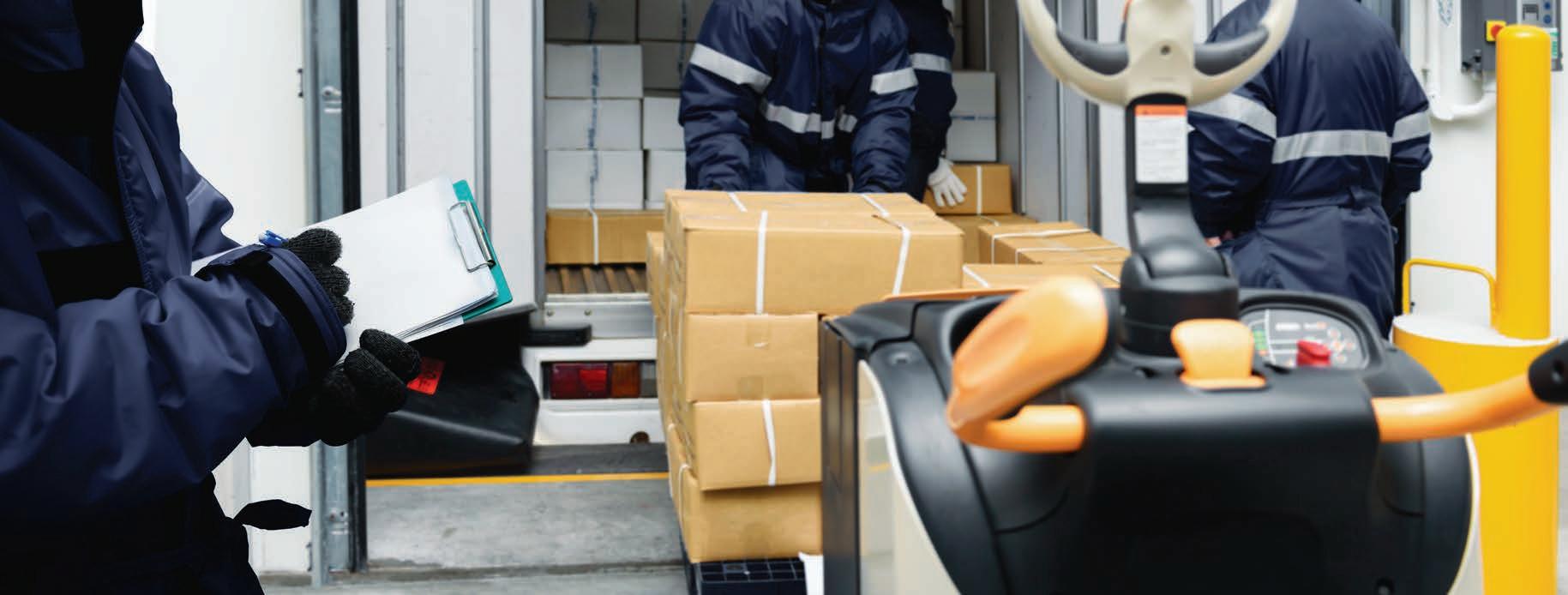
‘A cold chain reaches a crisis zone when the quality process written into it is not followed, or if it doesn’t have a process at all. The critical control points in these processes are where most systems fail. In some international airports, food is loaded in searing heat through several vehicles and distribution points, over long distances, before the food ever reaches the refrigerators in the plane.
‘AFCCC has a role to play to help
airlines and airport managements to conduct thorough audits before something more serious occurs, other than four people who are all experts in cold chain food safety, being violently ill for three or four days. For vulnerable travellers, the life-threatening aspects are terrifying to contemplate,’ Mr Mitchell added.
He said audits must begin at the chopping boards and knives in food preparation areas, followed by water and air contaminant exposure levels, and a thorough examination of the temperature map of all cold chain journeys. Only through a professional audit can temperature abuse be exposed and fixed.
‘Sometimes it takes a lightning strike event like this to remind us of our own effectiveness and if what we are doing is worthwhile and meaningful. Food poisoning would have to be the most significant of all such events for anyone working in the field of cold chain compliance,’ he added. F
42 Food &Beverage Industry News | November 2022 | www.foodmag.com.au AFCCC
Severe food poisoning on an international flight has prompted AFCCC chairman Mark Mitchell to put a focus on food temperature monitoring.
Food safety continues to create added focus on the cold chain.
Deal activity maintains momentum

Corporate activity in the food and beverage industry remained high in the months of September and October 2022. Eleven transactions were announced over the two-month period to mid-October 2022.
SupplyAus Holdings acquired the Brisbane-based roast and ground coffee business, Aromas Coffee Roasters. SupplyAus Holdings also owns the Dhuwa Coffee brand which is distributed to about 900 Woolworths stores nationally.
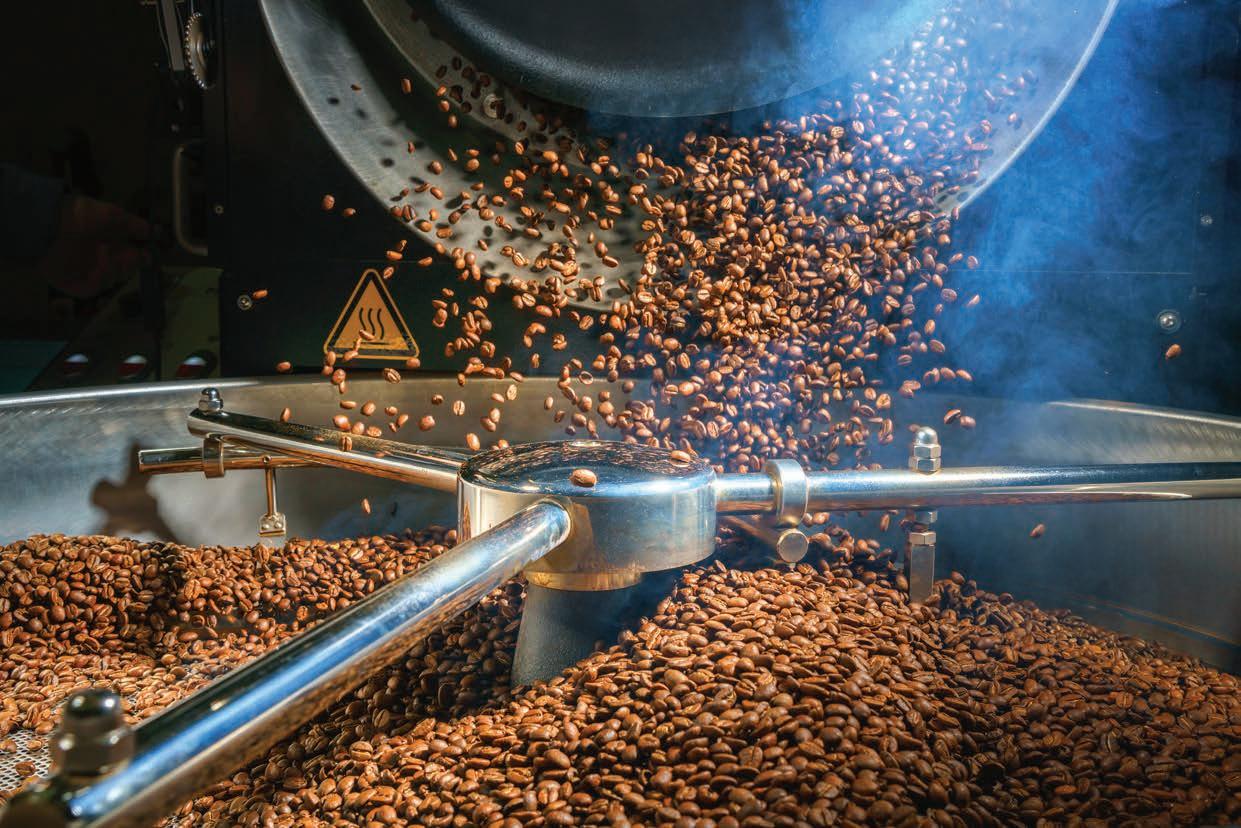
Goulburn Valley Creamery acquired the St David Dairy business from Maggie Beer Holdings. The sale of St David Dairy is in line with Maggie Beer Holdings’ strategic plan to focus on its core growth assets.
Perfection Fresh acquired a controlling interest in Tess Fresh. Tess Fresh is a processor and packer of fresh fruit and vegetables and operates from a facility in Homebush NSW, close to Sydney’s fresh produce market.
Hong Kong based private equity fund PAG, acquired pie-manufacturer Patties Foods from Pacific Equity Partners for $350 million. PAG also acquired meal manufacturer Vesco Foods, from Catalyst Investment Managers for a consideration of $200 million.
N ZX listed company Scales Corporation, acquired 50 per cent of the Australian operations of Fayman International. Fayman International is an exporter of animal proteins with exports to Asia and Europe. Scales

also subscribed for a 33% interest in a newly established petfood processing operation to be based in Melbourne.
through the issue of shares and options in NZ Coastal Seafoods.
ASX listed Fiji Kava acquired the Leilo RTD beverage brand. Leilo is the leading RTD kava brand in the USA. The acquisition will be settled through the issue of shares in Fiji Kava.
ASX listed New Zealand Coastal
Privately-owned beverage manufacturer, Tru Blue Beverages, has been acquired by Dutch beverage solutions provider Refresco Group N.V. The acquisition provides Refresco with an entry into the Australian market. Refresco is one of the largest Aromas Coffee
MARKETWATCH
Ben van der Westhuizen and David Baveystock are directors of Comet Line Consulting, an advisory business that specialises in acquisitions and divestments within the Australian food & beverage industry. For more information visit www.cometlineconsulting.com.au. Date Target Name Acquirer Sector 26 Aug 2022Aromas coffee brand Supply Aus Holdings Roast & ground coffee 1 Sep 2022 St David’s Dairy Goulburn Valley Creamery Dairy 5 Sep 2022 Tess Fresh Perfection Fresh Fresh produce 15 Sep 2022 Vesco Foods PAG Prepared meals 15 Sep 2022 Patties Foods PAG Baked goods 27 Sep 2022 50% of Fayman International Australia Scales Corporation Petfood 3 Oct 2022 Leilo RTD brand Fiji Kava Beverages 4 Oct 2022StrangeLove Asahi Beverages Beverages 5 Oct 2022Nine Ocean Group NZ Coastal SeafoodsSeafood 12 Oct 2022 Fruitwise Carman’s KitchenHealthy snacking 14 Oct 2022Tru Blu Beverages Refresco Beverages
Roasters was acquired by SupplyAus Holdings.
ICP Australia releases new 2U Rackmount
ICP Australia is proud to introduce iEi’s PUZZLE-IN005, a 2U rackmount higher core counts network appliance, designed with two 3rd Gen. Intel® Xeon® Scalable processor platforms in 10nm technology to offer unlimited computing performance and well throughput.

PUZZLE-IN005 features an extremely high-speed experience with the latest PCIe Gen4 to provide up to 200GbE data transmission speed, and Intel® QuickAssist Technology (Intel® QAT) to boost encryption and compression performance and maximize CPU utilization. Based on these brilliant features, PUZZLE-IN005 perfectly meets the demand for Cybersecurity, Telecom, 5G MEC, and AI.
The PUZZLE-IN005 has smart fan operation which uses 4+1 hotswappable fans to provide strong cooling convection and high reliability for uninterrupted service. Moreover, users can manage the fan system and noise production by defining the fan trigger settings. The PUZZLE-IN005 is designed with eight network module expansion slots to add on different functions, bandwidths, or even SSD for more storage needs. In addition, it has one PCIe x8 slot to adopt AI-accelerating cards or add-on cards for improving performance and efficiency.
KEY FEATURES:
• Dual Intel® Ice Lake Xeon® Scalable Processors (up to 185W)
• 20 x DDR4 R-DIMM / LR-DIMM Memory
• 8 PulM Modules with PCIe Gen4 x8 Signal
• Intel® Quick-Assist Technology
• 4 x U.2(PCIe x4) 2.5″ SSD Compatible with SATA
• 1+1 1200W CRPS Redundant Power Supply
• 4+Hot-Swappable System Fans
ICP Electronics Australia (02) 9457 6011 www.icp-australia.com.au
New particle and gas measurement module from ICP Australia
ICP Australia is proud to introduce ICP DAS’s DL-1038, which is a particle and gas measurement module that can measure the concentration of aerosols in the air, such as PM2.5, PM1, PM10 and the number of particles (0.3μm, 0.5μm, 1μm, 2.5μm, 5μm, 10μm). In addition, various fume concentrations related to human health can also be measured. For example, CO/CO2/HCHO/NH3/H2S/TVOC DL-1000 can record data and send an alarm when the concentration is too high.
Furthermore, DL-1038 can be used to record PM1/2.5/10, CO, CO2, HCHO, TVOC, NH3, H2S, Temperature, Humidity and Dew Point information, including date and time stamps, and are able to store up to 180,000 downloadable records. Real-time data can be accessed from the DL-1000 series Data Logger from anywhere and at any time using the free Windows software, the iOS App or the Android App, as long as they are connected to the same local network as the Data Logger. Support is provided for popular industrial protocols such as DCON, Modbus RTU, and Modbus TCP, as well as the emerging machine-to-machine (M2M)/IoT (Internet of Things) connectivity protocol-MQTT.
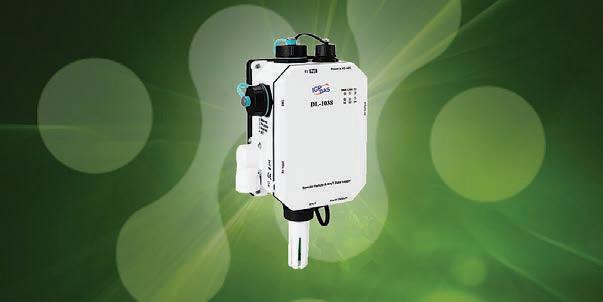
The DL-1000 series Data Logger can be connected via widely used communication interfaces including RS-485, Ethernet and PoE, meaning that the device can be easily integrated into existing HMI or SCADA systems, and is easy to be maintained in a distributed control system. The DL-1000 series is designed for industrial applications in harsh environments that provide IP43-grade protection approval. The rugged RJ-45 ensures tight, robust connections, and guarantees reliable operation, even for applications that are subject to high vibration and shock.
KEY FEATURES:
• Able to record PM1/2.5/10, CO, CO2, TVOC, Temperature, Humidity, and Dew Point Measurements
•
•
•
•
•
•
•
•
•
ICP Electronics Australia (02) 9457 6011 www.icp-australia.com.au
NEW PRODUCTS 44 Food &Beverage Industry News | November 2022 | www.foodmag.com.au
Electrochemical Sensor
Up to 180,000 Records with Date and Time Stamps
Web-Based Configuration Interface
Simple and Powerful Software Utility, iOS APP and Android App Included
Supports the
and
Protocols
DCON, Modbus RTU/TCP,
MQTT
Includes
Communication Interfaces
RS-485/Ethernet/PoE
Relay
for
or
Device Control
Output
Audible/Visual Alarm
IAQ
Includes
Power Inputs:
Redundant
PoE (IEEE 802.3af, Class 1) and DC Input
IP 43 Protection Approval
The small controller with integrated multi-function I/Os
The CX7000 Embedded PC series opens up the TwinCAT 3 software environment to compact controllers. Equipped with an ARM Cortex™-M7 processor (32 bit, 480 MHz), the CX70xx makes higher processing power available in the compact controller segment. Furthermore, all the advantages of the TwinCAT 3 software generation can be utilized. The extremely compact design with dimensions of just 49 mm x 100 mm x 72 mm ensures optimum scalability of PC-based control for small controller applications that typically require minimum footprint.
The CX70xx offers directly integrated multi-functional I/O channels:
• 8 digital inputs, 24 V DC, filter 3 ms, type 3
• 4 digital outputs, 24 V DC, 0.5 A, 1-wire technology
• These integrated multi-functional I/Os can be configured for other operating modes via TwinCAT 3, enabling the option to use fast counting or processing of analog values:
• counter mode: 1 x 100 kHz digital counter input, 1 x digital input as up/down counter, 2 x digital counter outputs
• incremental encoder mode: 2 x digital inputs for 250 kHz encoder signal, 2 x digital encoder outputs
• analog signal mode: 2 x digital inputs configured as analog inputs 0 to 10 V, 12 bit
• PWM signal mode: 2 x digital outputs configured for PWM signal
If additional electrical signal types need to be processed, the CX70xx can be expanded very easily on demand by adding EtherCAT Terminals or Bus Terminals to the integrated I/Os. Additional I/O terminals will be directly attached to the CX7000.
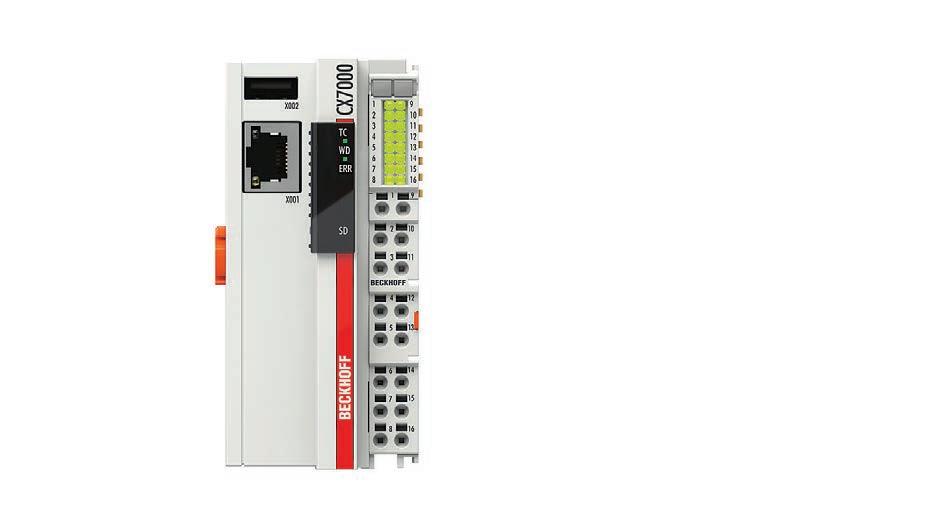
The Embedded PC is equipped with 512 MB microSD flash memory (with the option to upgrade to 1, 2, 4 or 8 GB). An Ethernet interface (10/100 Mbit/s, RJ45) serves as the programming interface. This means that the space-saving CX70xx is ideal for use as a costeffective, stand-alone compact controller. In the CX7080 version, peripheral devices such as displays, scanners or weighing systems can be connected via an additional serial interface (RS232/RS485). The extended operating temperature range between -25 and +60 °C enables application in climatically demanding situations.
Beckhoff (03) 9912 5430 www.beckhoff.com
An easy-to-use backup and restore program
The Beckhoff Service Tool (BST) is an easy-to-use, graphical backup and restore program for Windows operating systems. It can be used to create complete backups of the system data and associated configurations. If anything goes wrong with the system, the data can be restored quickly and easily from the backups. Downtimes and costly recovery work can thus be significantly reduced.

Bootable USB stick (SLC)
The Beckhoff Service Tool is a bootable USB stick. When the BST stick is inserted in an Industrial or Embedded PC, the BST boot process is automatically initiated when the system starts up. Based on Windows PE, the BST is independent of the actual Windows operating system and can therefore access the operating system data without any restrictions.
As a data backup device, the USB stick must be able to store the data reliably and long-term. In contrast to USB sticks with MLC or TLC flash memory, the high-quality SLC flash memory of the BST ensures long-term data integrity.
Software update with the ApplyBST tool
The ApplyBST tool can be used to update the BST stick or change the version. The latest BST versions are available for download.
Remote access with TightVNC
The TightVNC program allows remote access to the BST. TightVNC can be downloaded free of charge. Remote access is helpful if no input and output devices are available for configuring the BST on an Industrial PC.
Beckhoff (03) 9912 5430 www.beckhoff.com
NEW PRODUCTS www.foodmag.com.au | November 2022 | Food &Beverage Industry News 45
The new Beamex POC8 Pressure Controller
Improve the efficiency of your pressure calibrations. The Beamex POC8 is an automatic pressure controller making pressure calibrations very efficient and easy to perform.
A variety of pressure ranges are available, from vacuum up to 210 bar (3045 psi).
A POC8 can be equipped with 1 or 2 accurate internal pressure measurement ranges and a barometric module.
You can use the POC8 as a stand-alone pressure controller or as part of the Beamex integrated calibration solution.
Using the POC8 together with the Beamex MC6 family calibrators and Beamex CMX calibration management software enables a fully automated and integrated solution for performing, documenting and managing calibrations easily, efficiently and accurately.
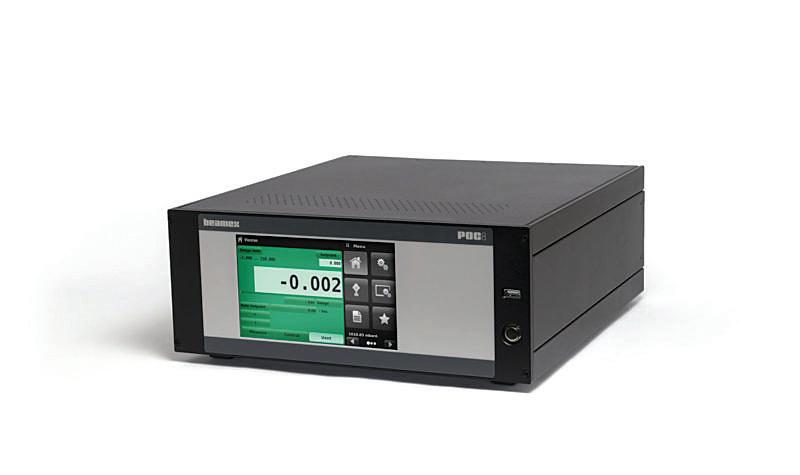
The POC8 can be used as a desktop model, managed through it’s multilingual color touchscreen user interface.
With the panel mounting kit, the POC8 can be installed in the Beamex CENTRiCAL calibration bench for a professional workshop solution.
AMS Instrumentation & Calibration
(02) 8197 2825 www.ams-ic.com.au Company
Fluke’s ST240+ RCD Socket Tester with Beeper

The Fluke ST240+ RCD Socket Tester with Beeper checks that each wire in the outlet is properly connected to the building’s electrical system. Via the bright LEDs and included chart, you can quickly and easily verify the wiring of an outlet. Able to identify several common wiring errors, including reversed live and neutral wires and an earth fault, the ST240+ will give you confidence on your next job.
Audible
alert helps you work faster, safer
The ST240+ also gives you a unique audible alert anytime voltage is detected. Save time when trying to identify which circuit breaker is connect to which outlet. Just plug the socket tester in, walk to the circuit breaker panel, and listen for the beeper to turn off – or on – as you flip the breakers. Once it does, you’ve found the correct breaker. Time – and trips – saved.
When switched on, the integrated beeper can also alert you to hazardous voltage at the outlet, even if the wiring is incorrect. Working in an office, hospital or other location where you don’t want to interrupt others? No problem – the beeper can be switched off.
One-button RCD tests
The included RCD test button on the ST240+ Socket Tester with Beeper allows you to also test the operation of RCD outlets. With a single push, the ST240+ can verify the operation of your RCD equipped outlet. If the RCD trips as expected, perfect, you can move on. If not, it’s time to take a closer look.
Fast visual identification of all 6 wiring conditions
The ST240+ has three bright, easy-to-see LED indictors. This lets you see, at a glance, one of six wiring scenarios:
• Correct installation
• Earth fault
• Neutral fault
• Live fault
• Live/neutral reversed
• Live/earth reversed
Fluke Australia (02) 8850 3333 www.fluke.com
NEW PRODUCTS 46 Food &Beverage Industry News | November 2022 | www.foodmag.com.au
The Nuvo-7168GC series offers improved system longevity
Nuvo-7168GC series is a ruggedized AI inference platform supporting NVIDIA RTX A2000 GPU which offers better longevity for industrial AI inference applications, such as machine vision inspection, machine automation, and intelligent video analytics.
Operating with NVIDIA RTX A2000, Nuvo-7168GC delivers 8 TFLOPS in FP32 GPU computing power for real-time AI inference.
Nuvo-7168GC inherits the market-proven passive cooling design for motherboard components; Neousys’ patented Cassette module to segregate electrical and heat interferences; the innovative “tunneled” ventilation design for add-on cards that can efficiently dissipate the heat generated by RTX A2000, and together, they sustain optimum performance for both the CPU and GPU in high-temperature environments.
Nuvo-7168GC series offers an abundance of cutting-edge I/O connections. It has six GbE ports and eight USB3.1 ports for connecting to industrial cameras or IP cameras. An M.2 2280 NVMe interface is provided internally for fast storage access supporting over 2000 MB/s read/ write speeds.


Moreover, Nuvo-7168GC supports Neousys’ proprietary MezIO interface for further I/O expansions such as isolated DIO, COM ports, or more GbE ports. By supporting RTX A2000, Nuvo-7168GC series provides a great cost/ performance ratio for AI inference computing and superior system longevity. (02) 9457 6400 www.backplane.com.au
A cost-saving and multi-talented flow meter
The FTMg energy consumption flow meter measures gas flow and temperature as well as the process pressure, making it a cost-saving multi-talent. With high measurement dynamics and low-pressure loss, it measures non-corrosive gases with extreme efficiency. The contrastrich colour display enables easy operation of the FTMg and allows for representation of several measured values as a process diagram. Internal data logging over seven days and integrated static evaluation help detect even the smallest leaks in a pneumatic system. PoE also enables simple web-based connection to a PC or a cloud to make energy consumption more transparent. All measurement data can be transmitted via IO-Link or with switching and analogue signals.
Your Benefits
• Transparent compressed air consumption measurement according to DIN EN 50001
• Complete overview of the flow, pressure and temperature of gases increases system reliability
• IO-Link or Ethernet interfaces (communication with OPC UA) for simple system integration and data availability
• Cost savings thanks to reduced energy consumption and increase in production efficiency
• Intuitive configuration with large, contrast-rich OLED display saves time and money during commissioning
• Only one installation and commissioning process for the collection of flow, pressure and temperature data
SICK Australia (03) 9457 0600 www.sick.com
NEW PRODUCTS www.foodmag.com.au | November 2022 | Food &Beverage Industry News 47
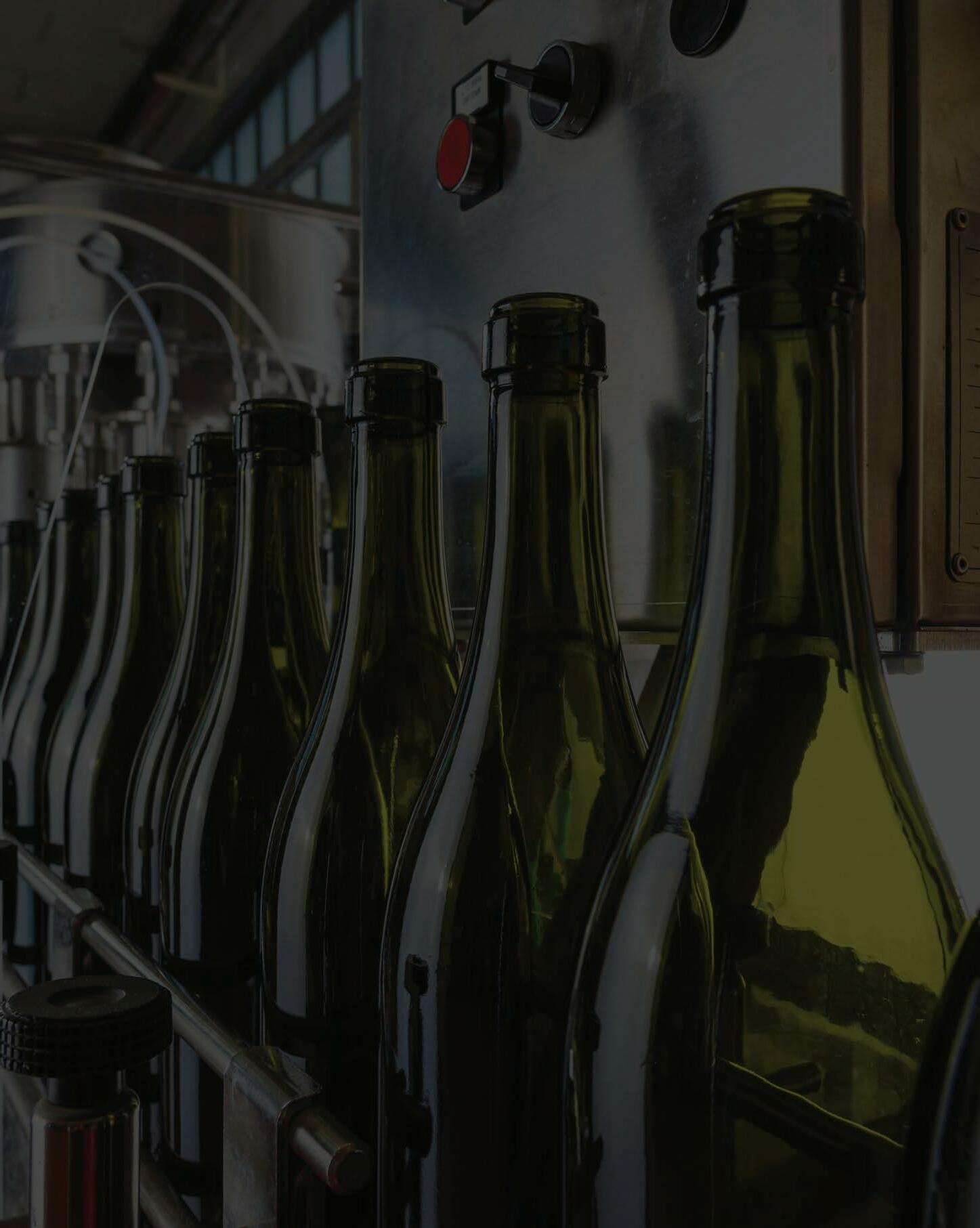



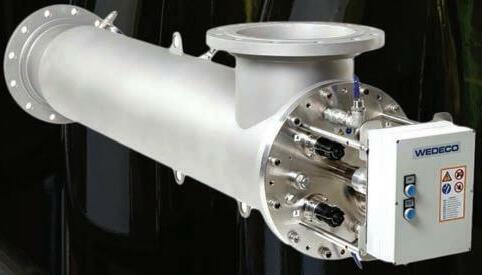
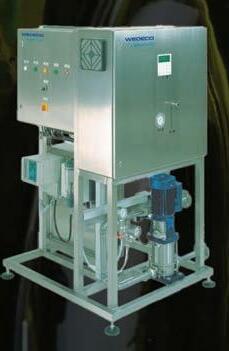





13 19 14 | xylem.com/au | solve@xylem.com
WE SOLVE YOUR WATER CHALLENGES Xylem WEDECO disinfection products brings German reliability and expertise to your manufacturing process. Offering a range of efficient UV disinfection systems validated to European and US Standards ensuring bacteria free process water and modular Ozone systems for instantaneous disinfection of tanks, bottling lines and other process steps. These disinfection products complete our extensive portfolio of pumps, mixers and instrumentation for your food and beverage needs. PROCESS AND PRODUCT WATER DISINFECTION SOLUTIONS WITH XYLEM UV & OZONE SALES - SERVICE - SUPPORT
@xylemanz





 Editor: Adam McCleery
Editor: Adam McCleery














































































































